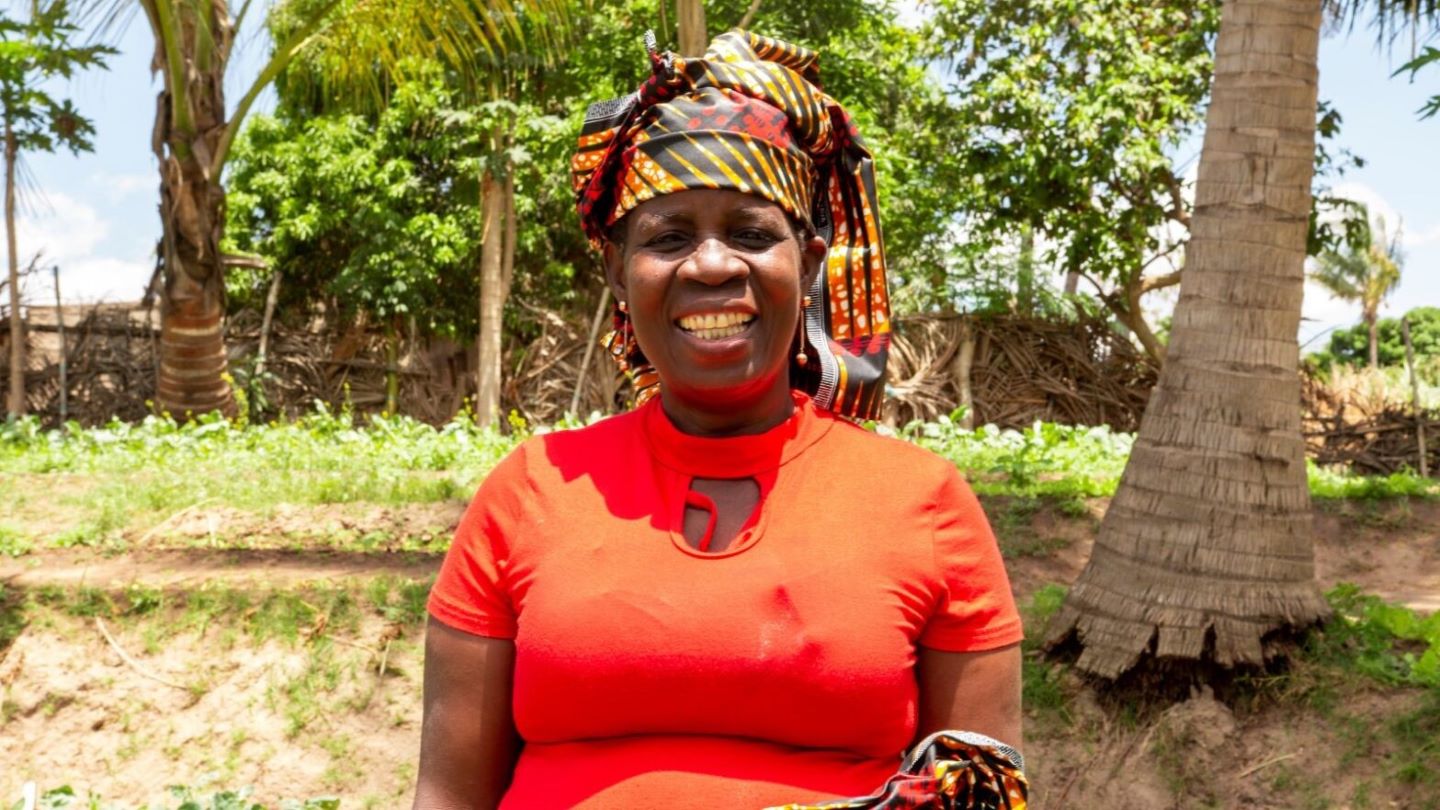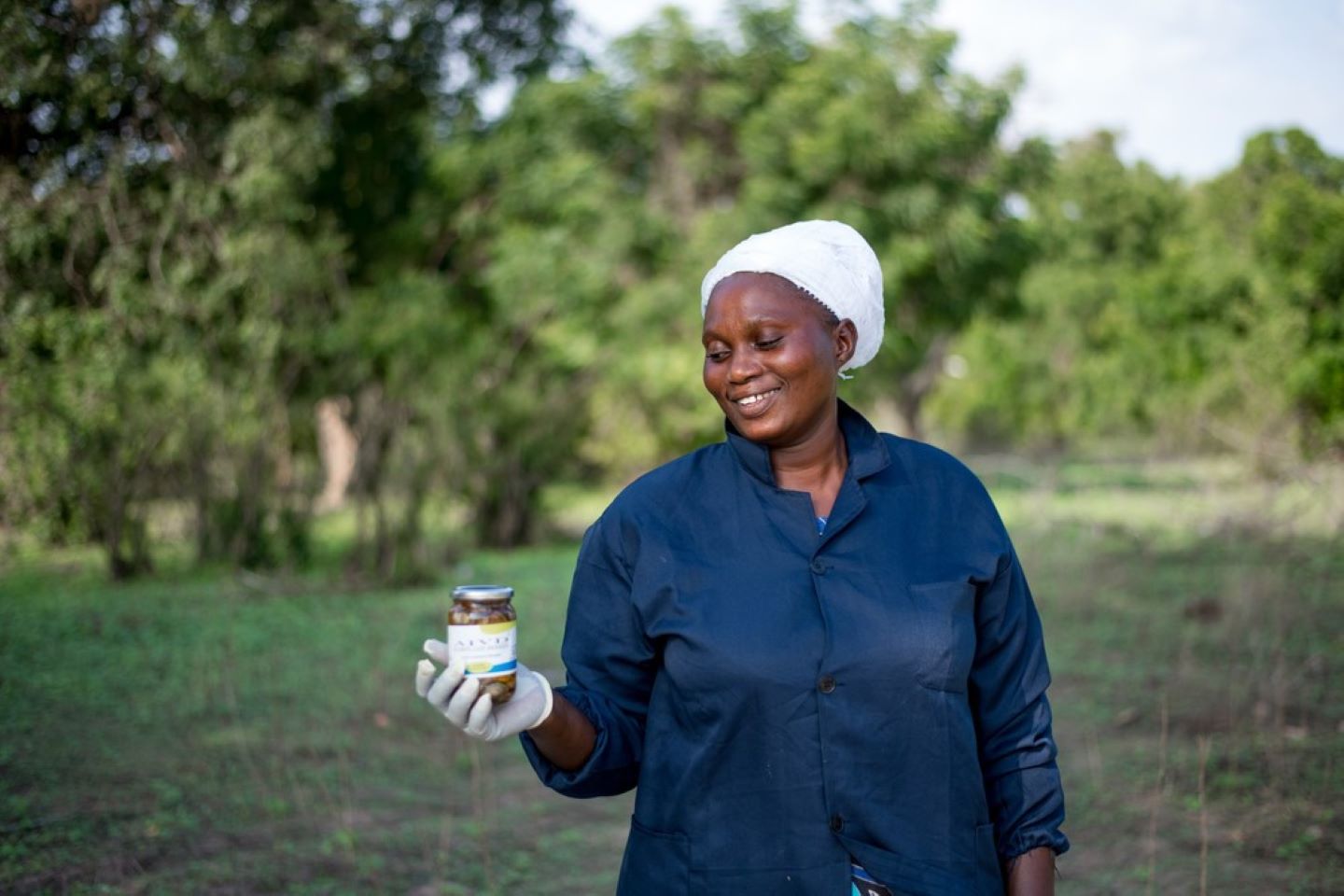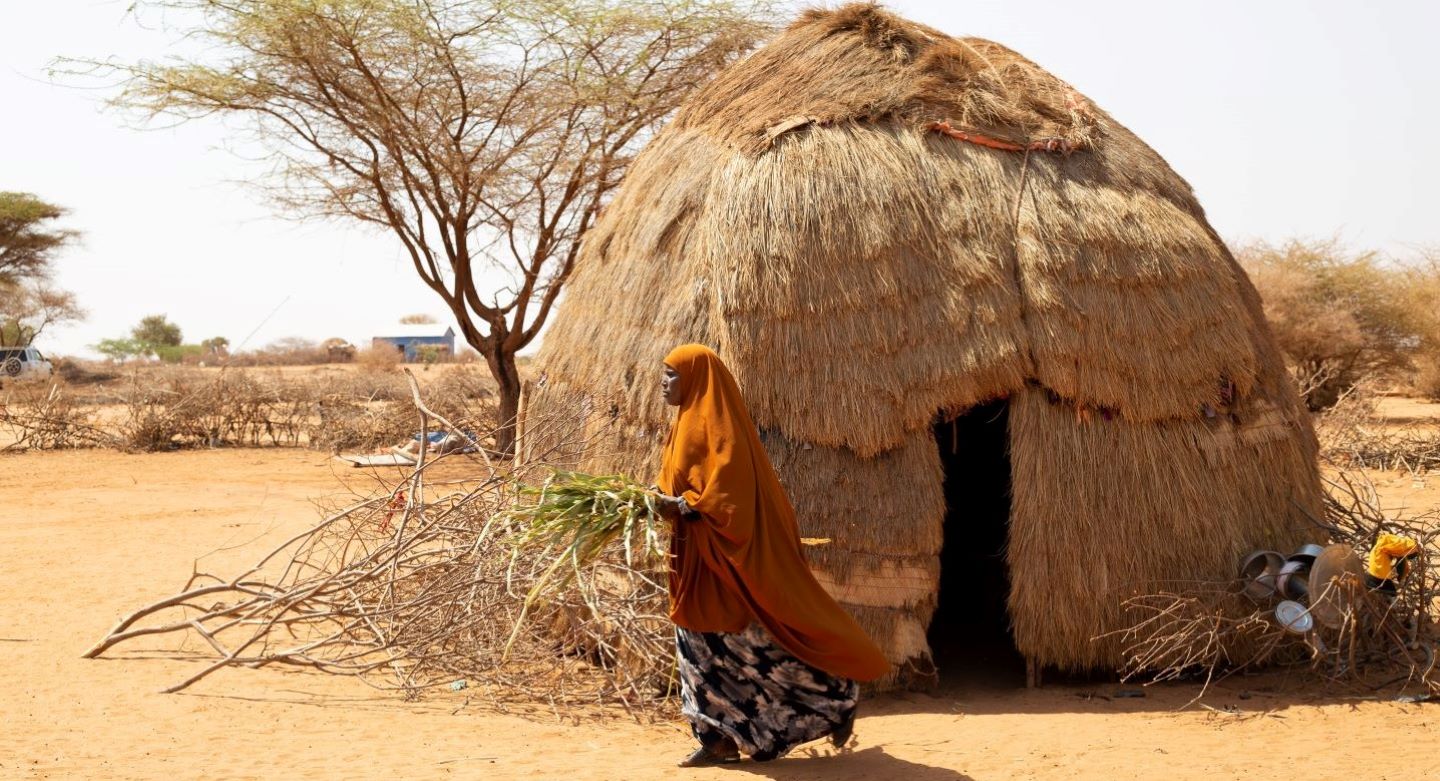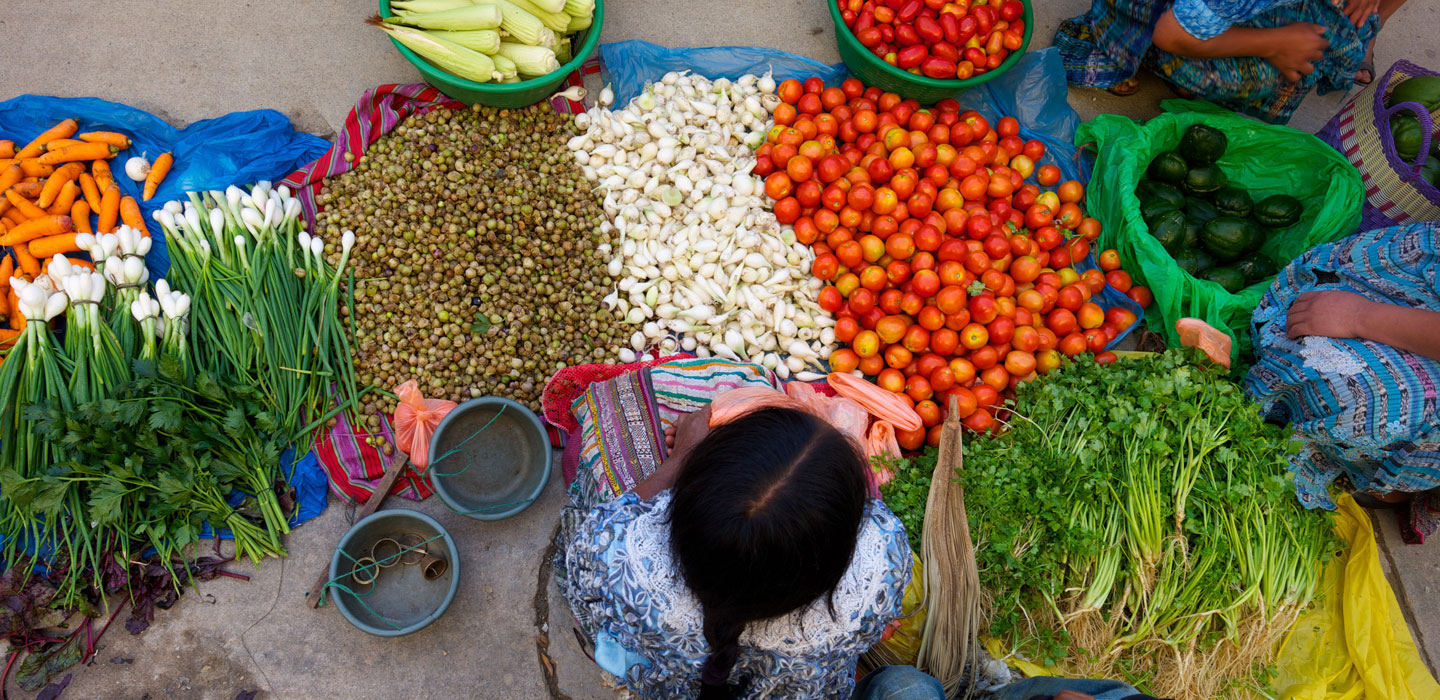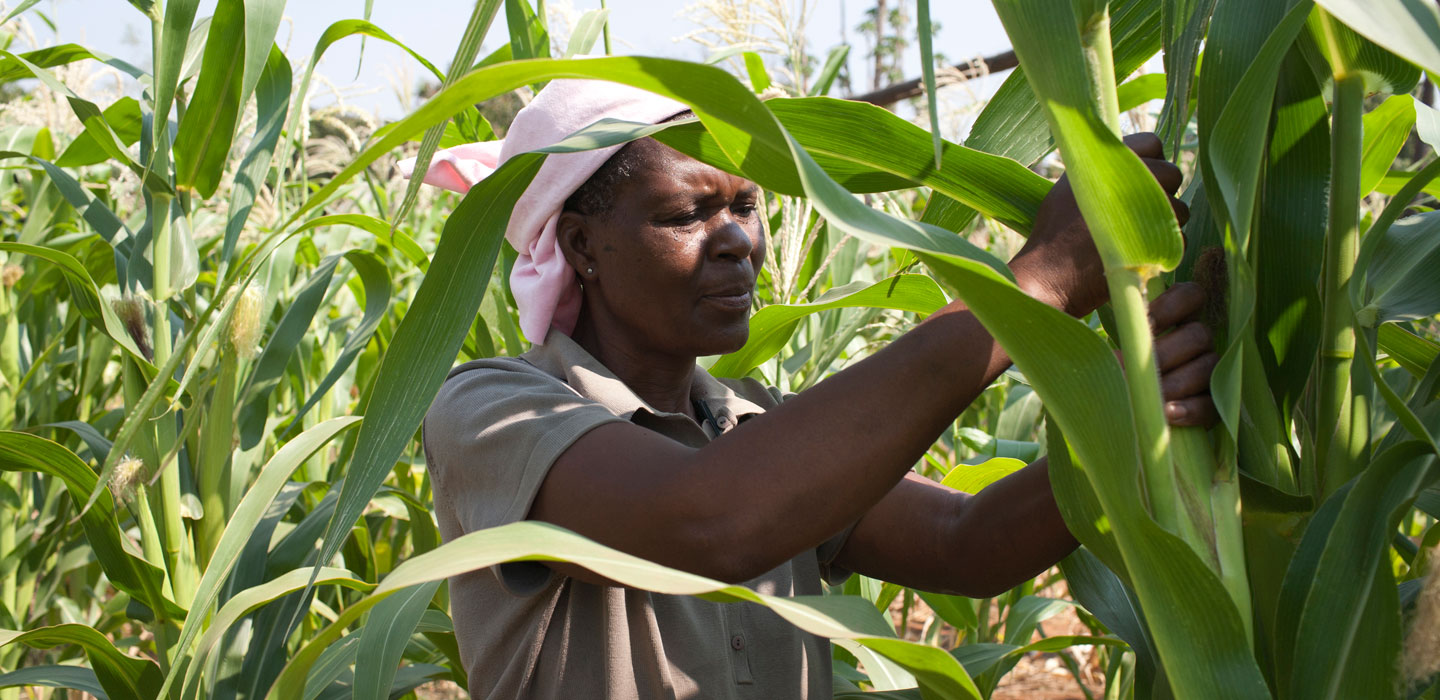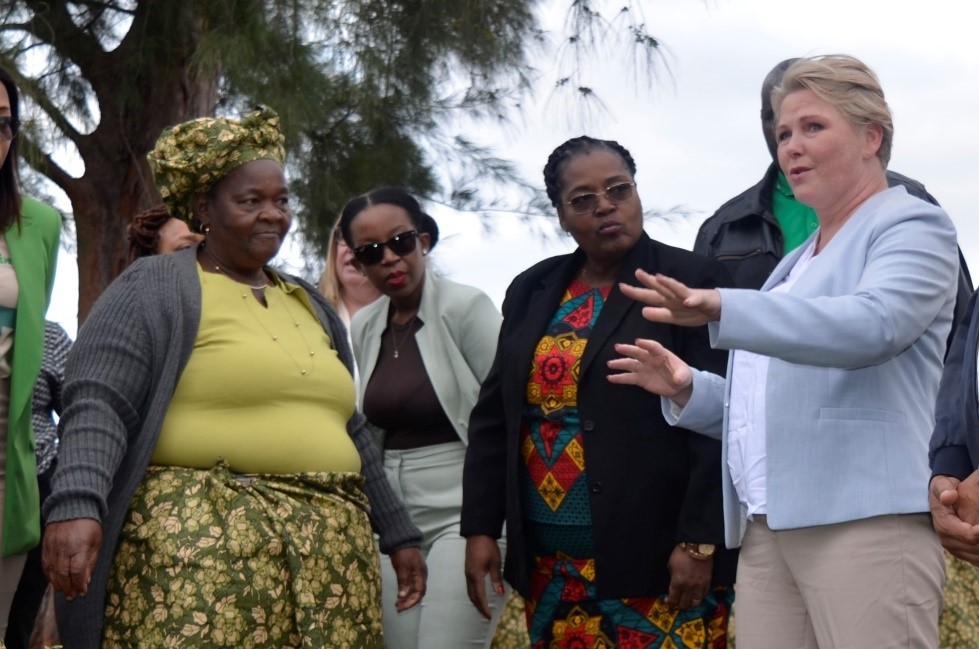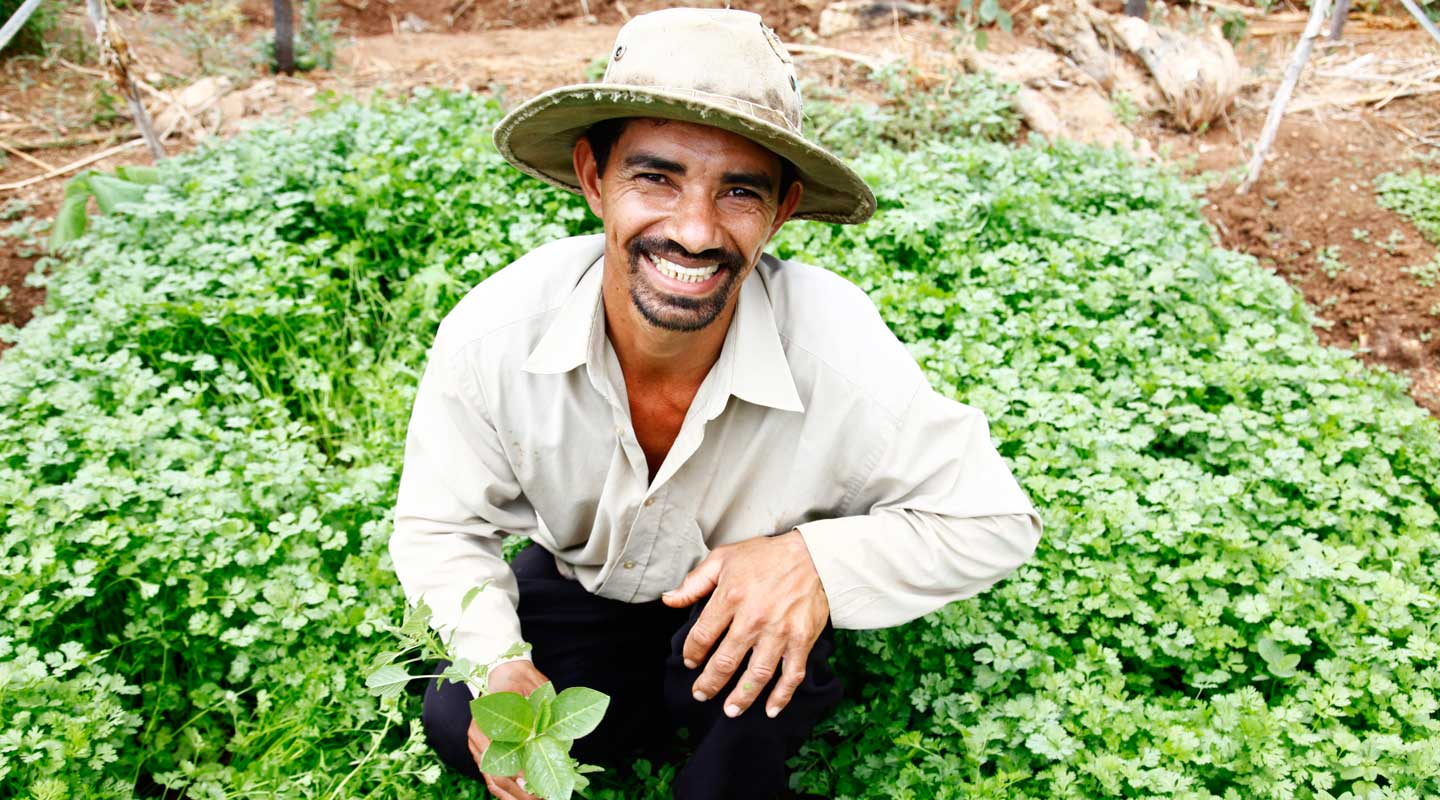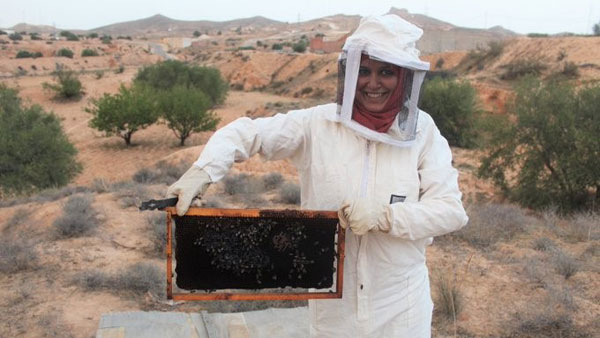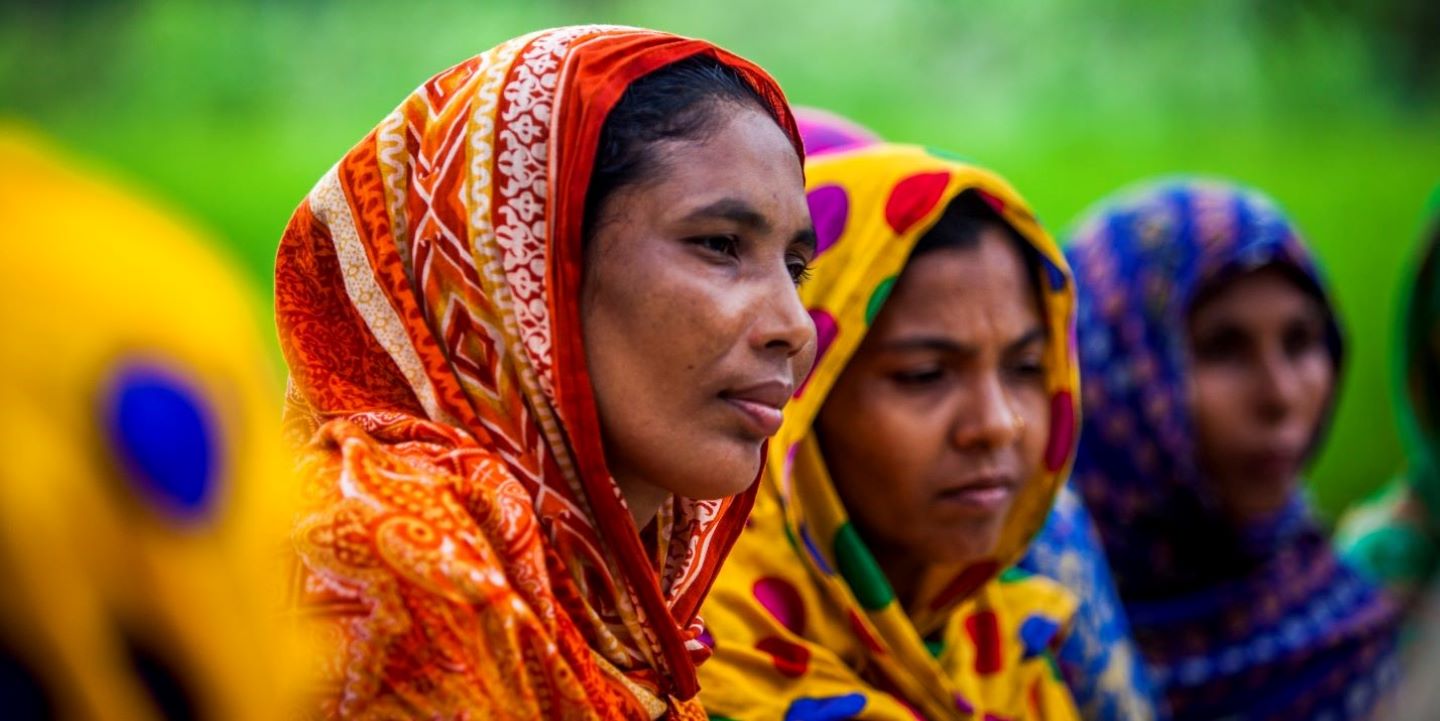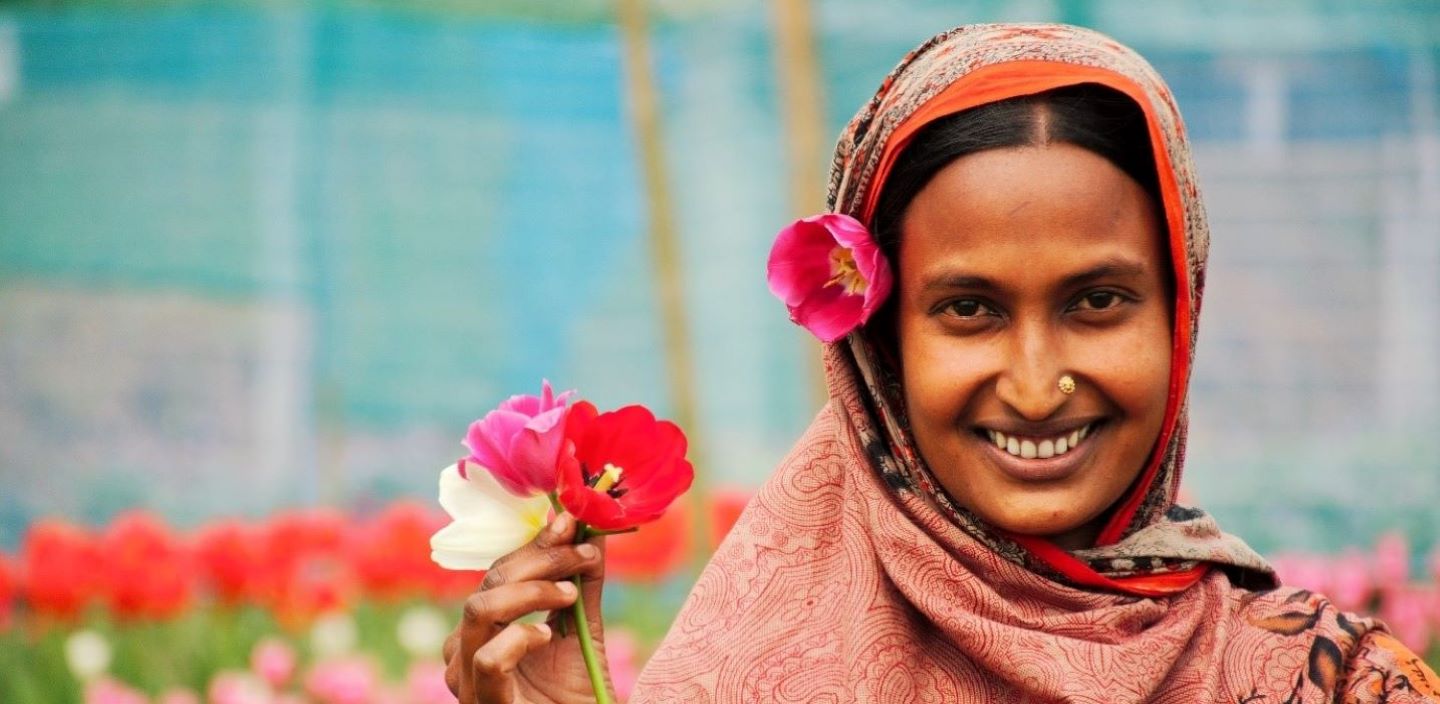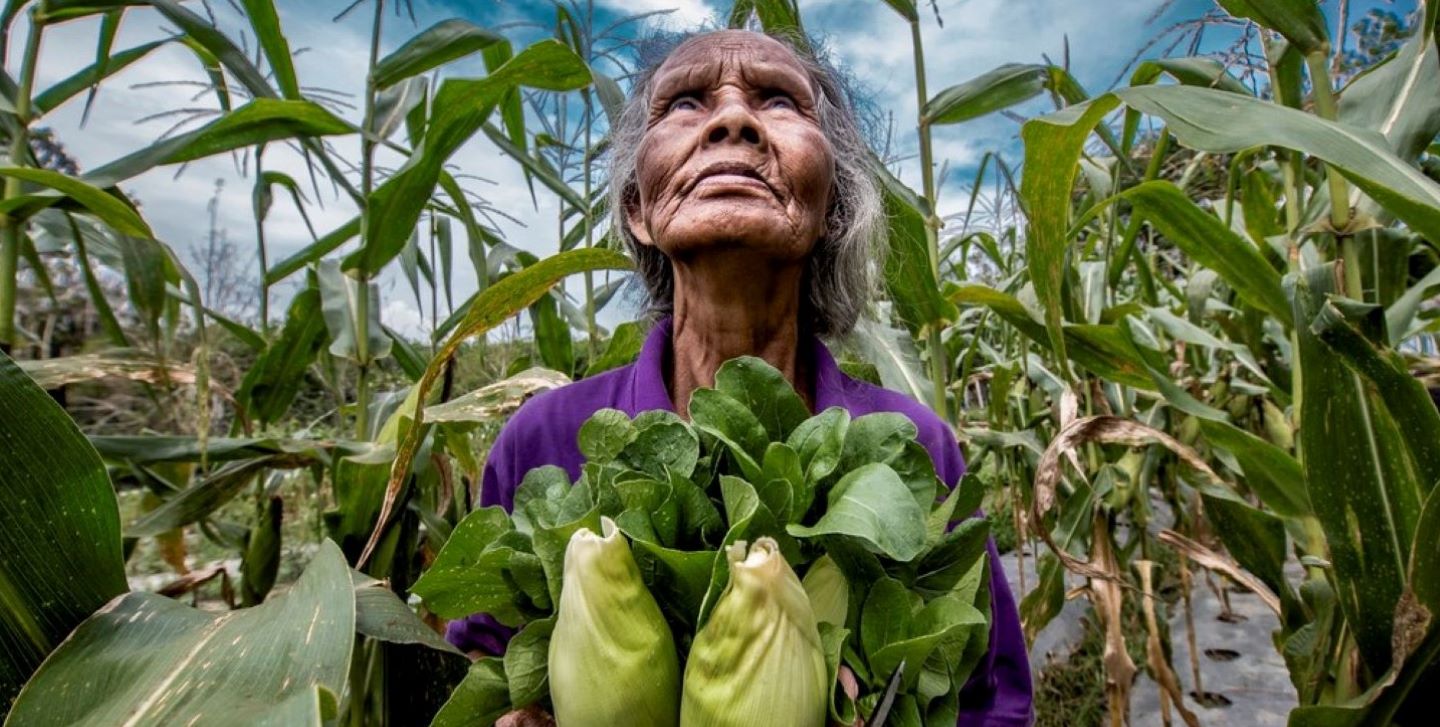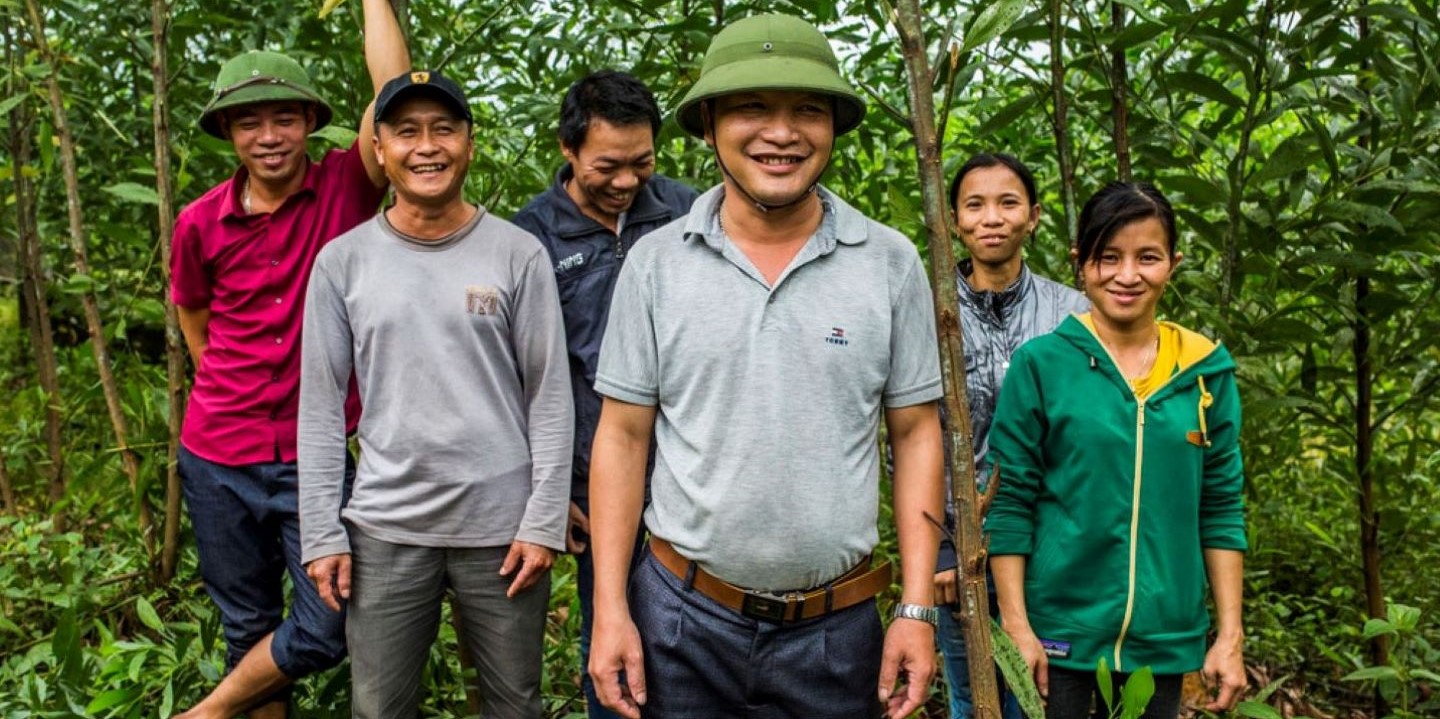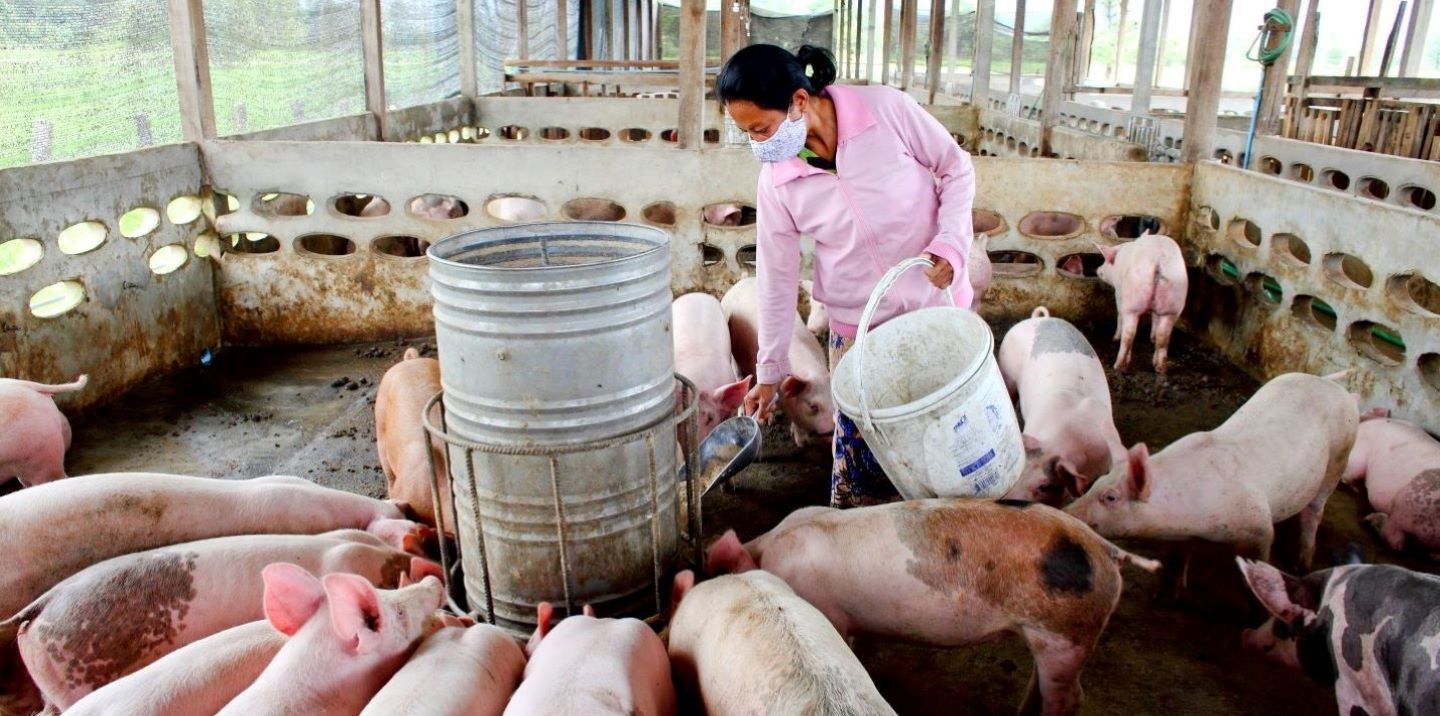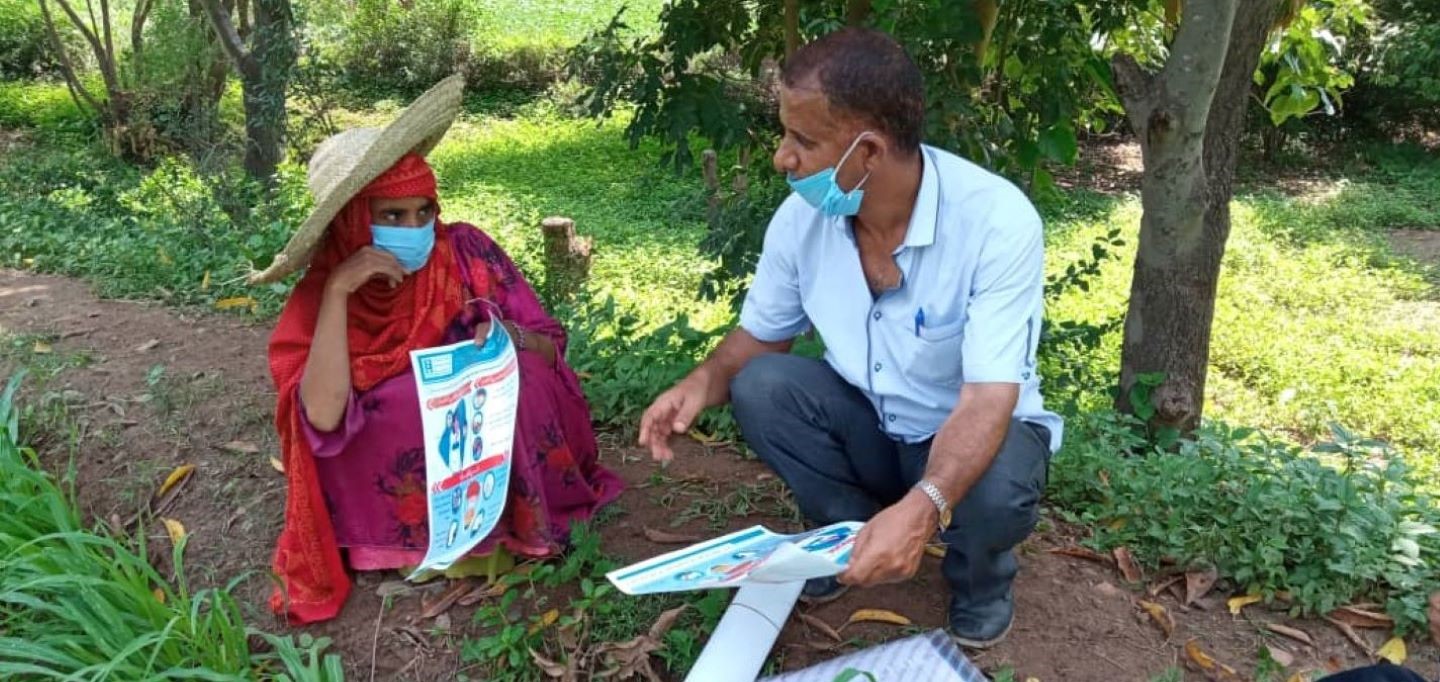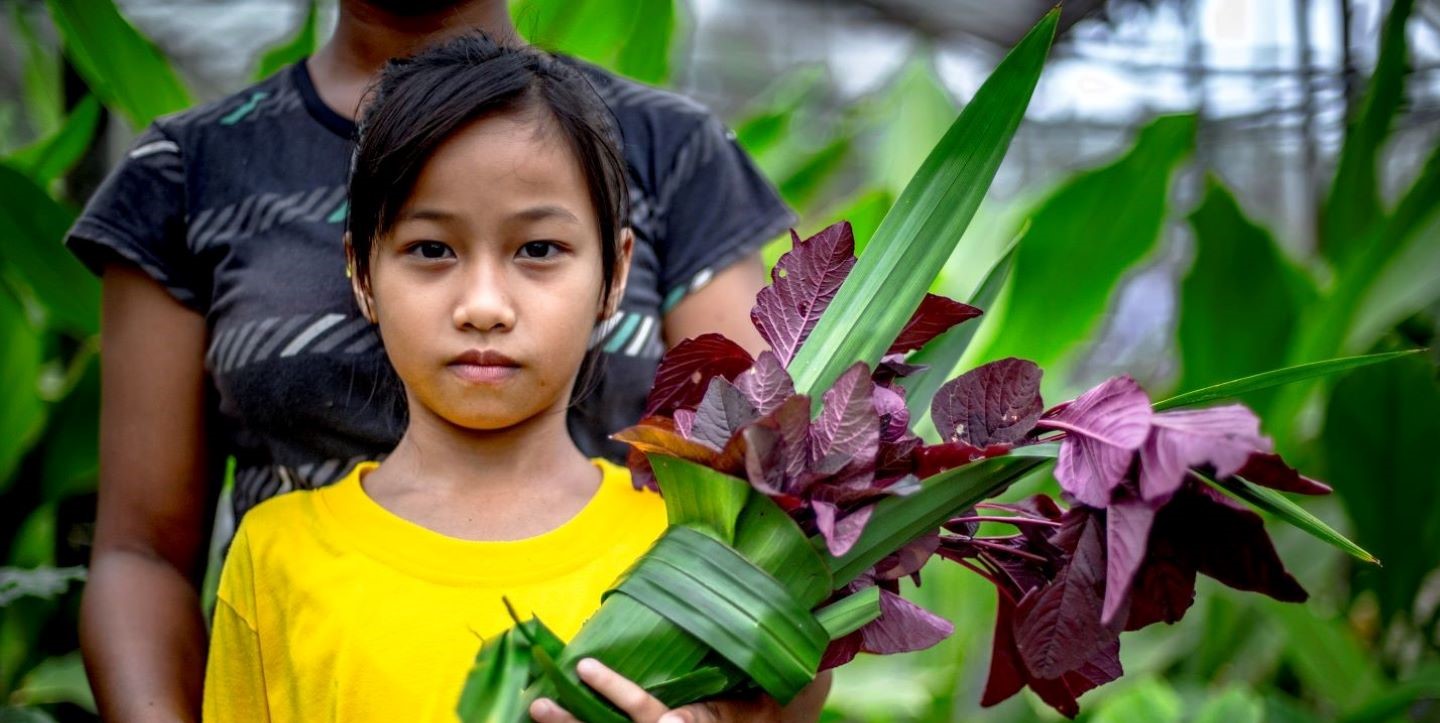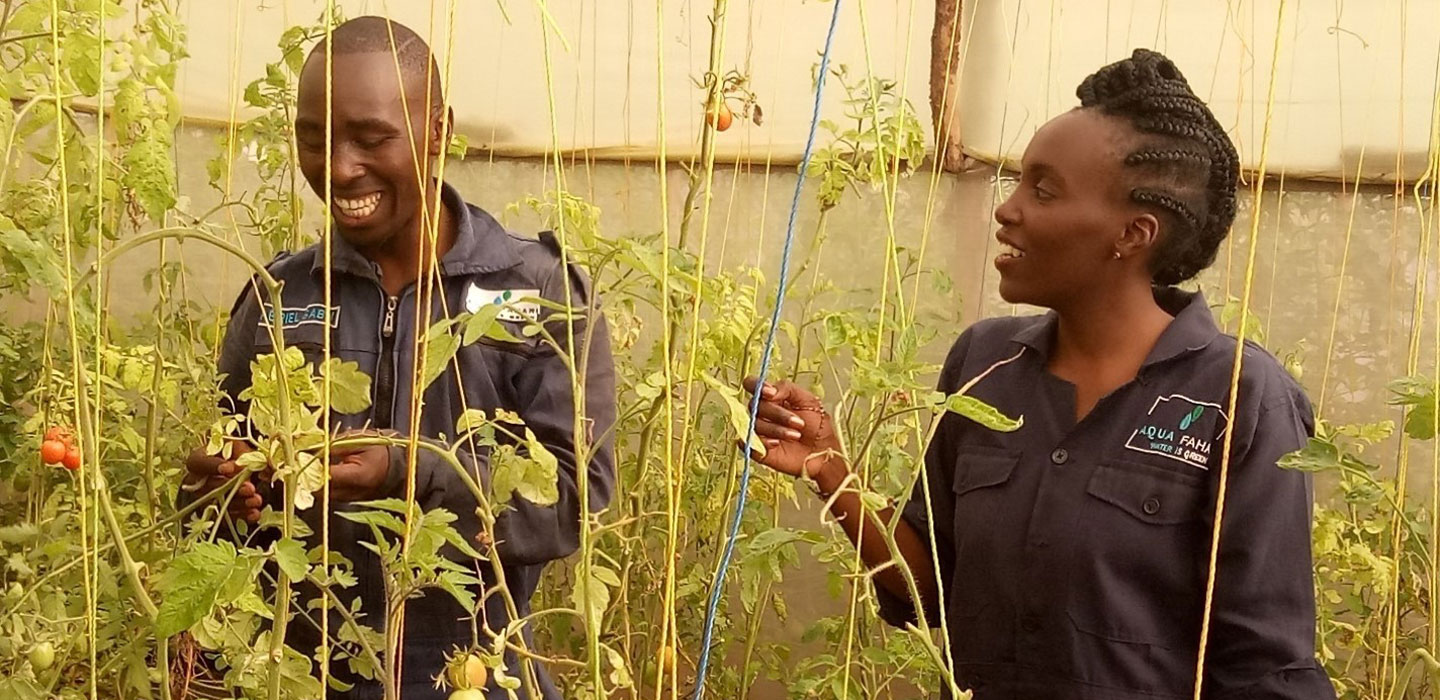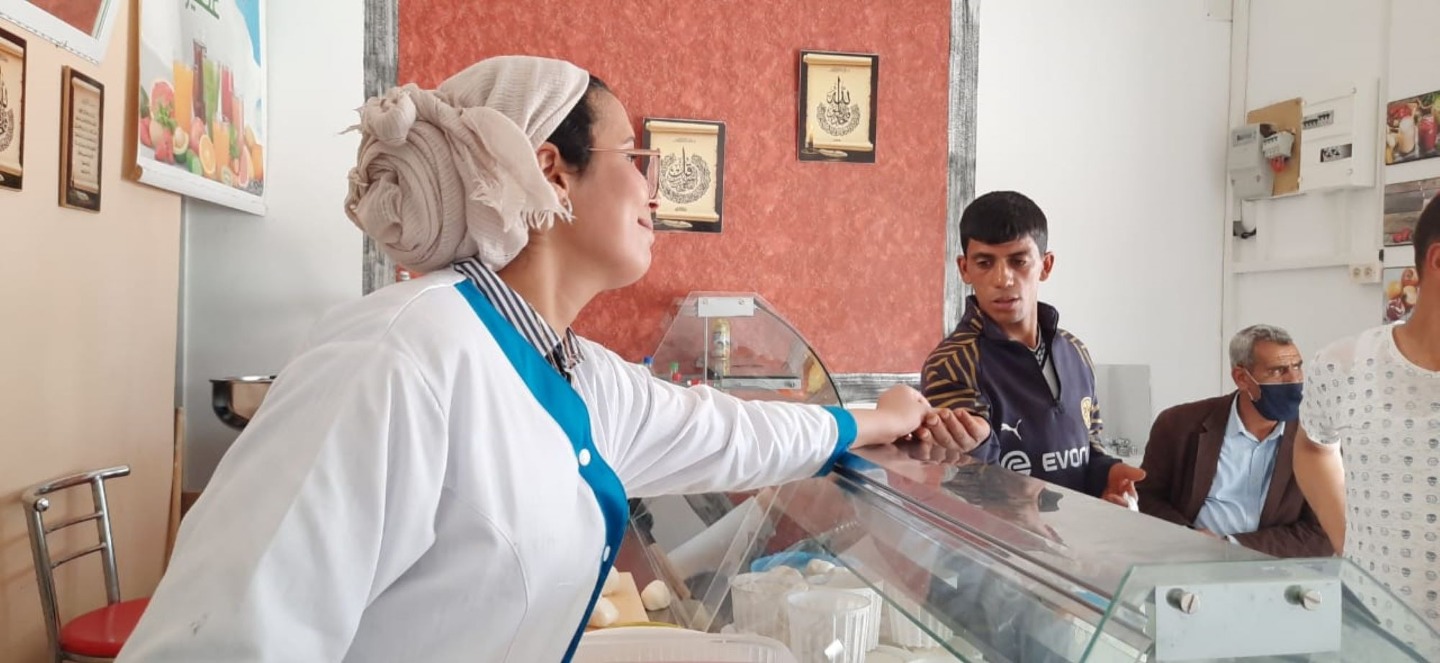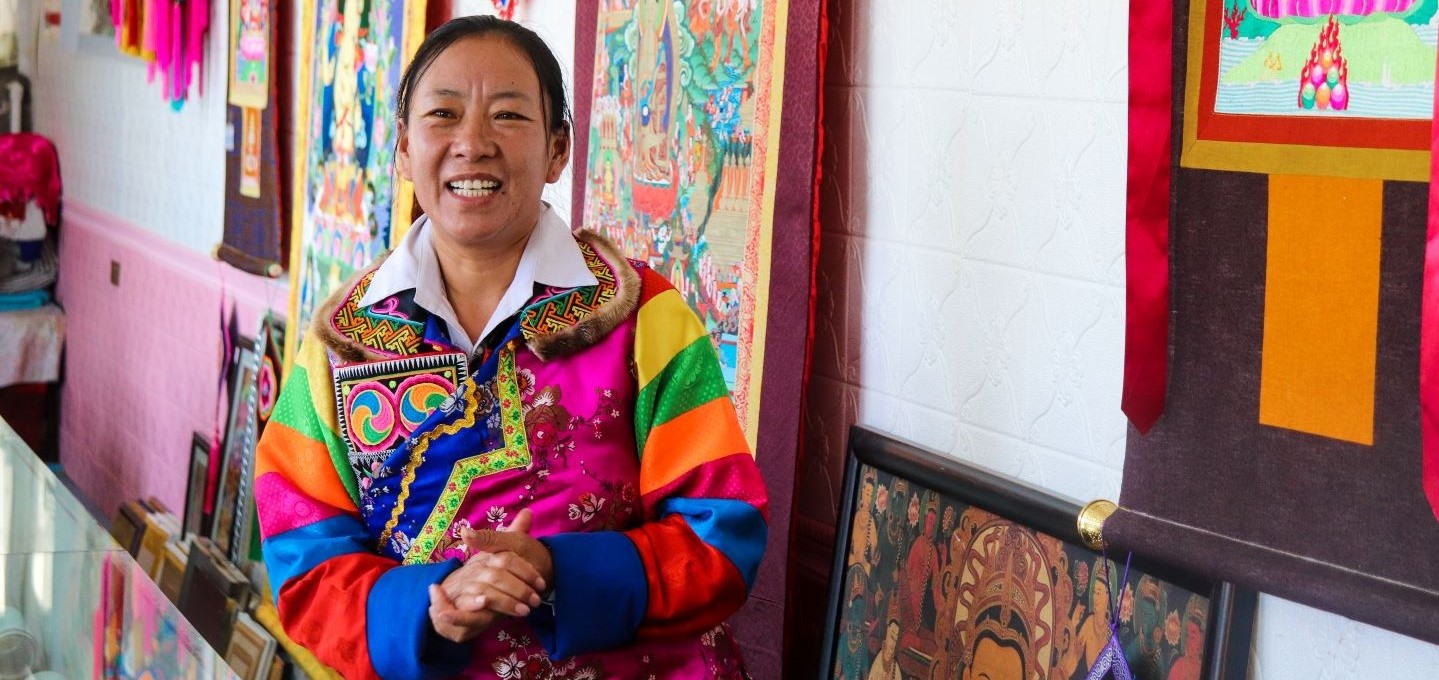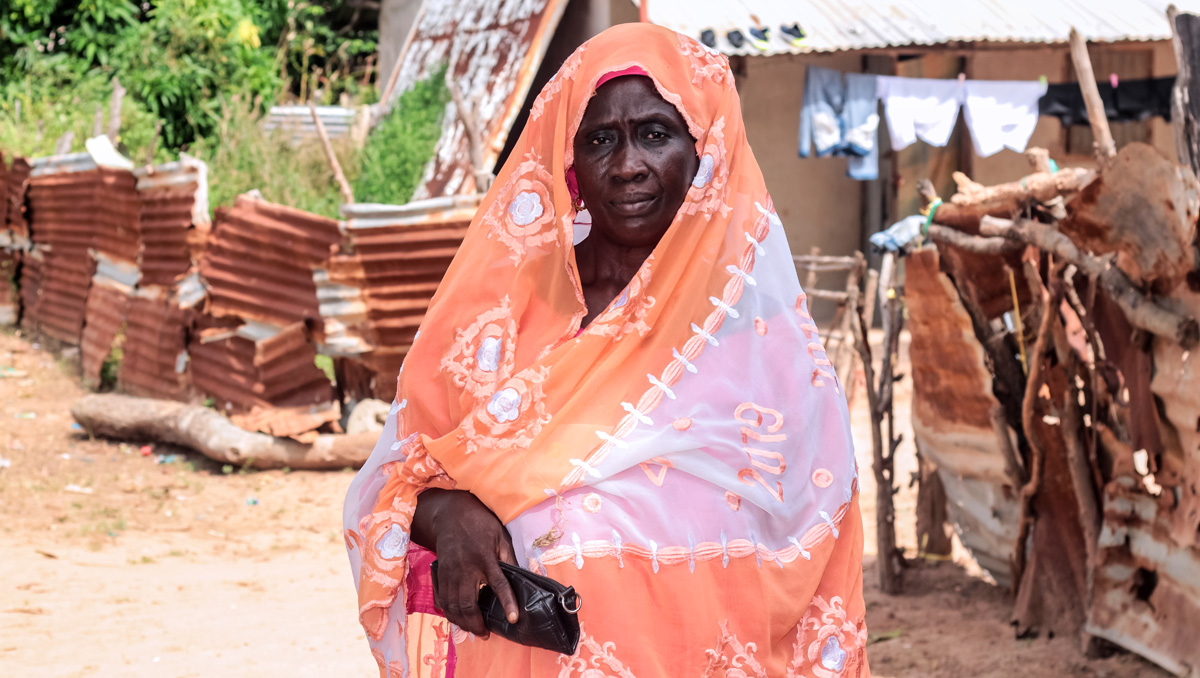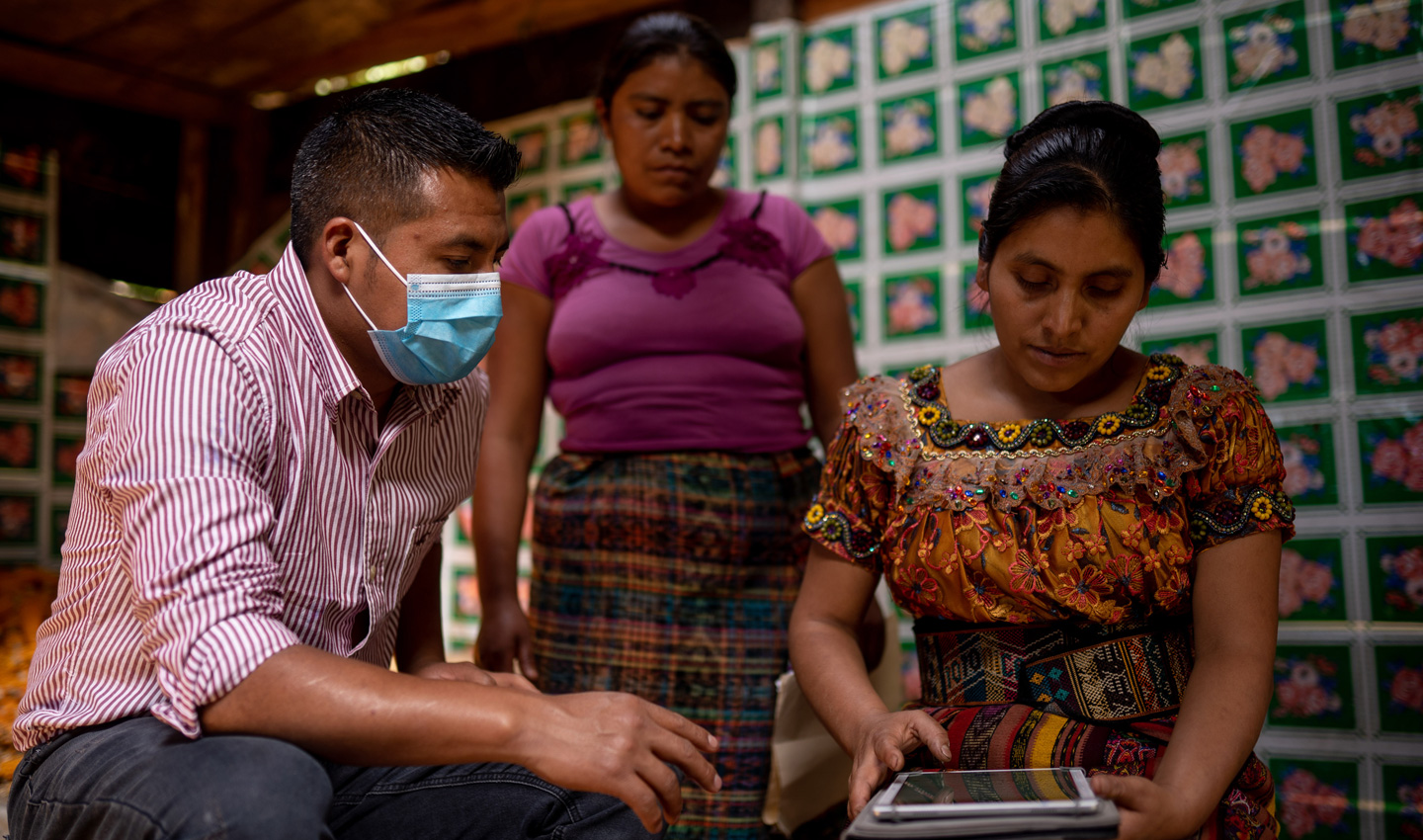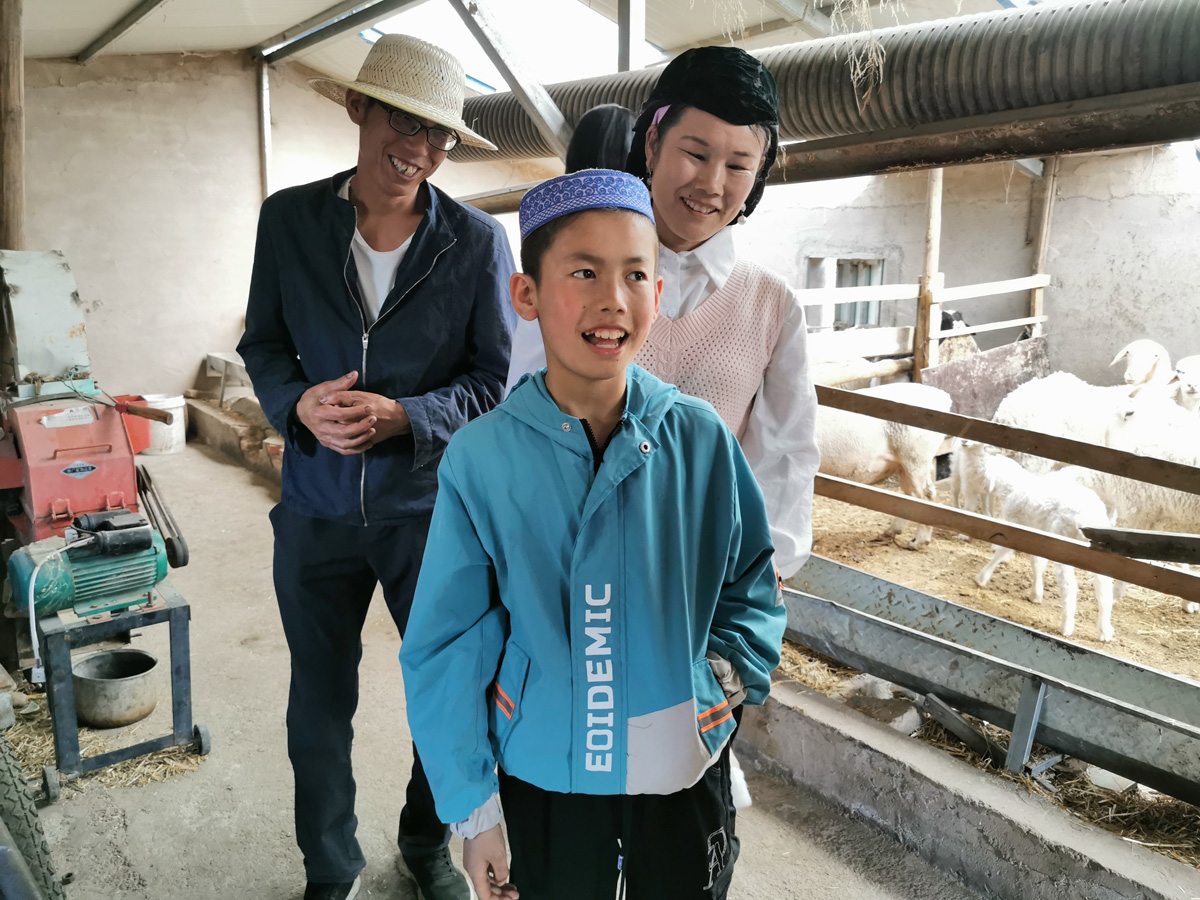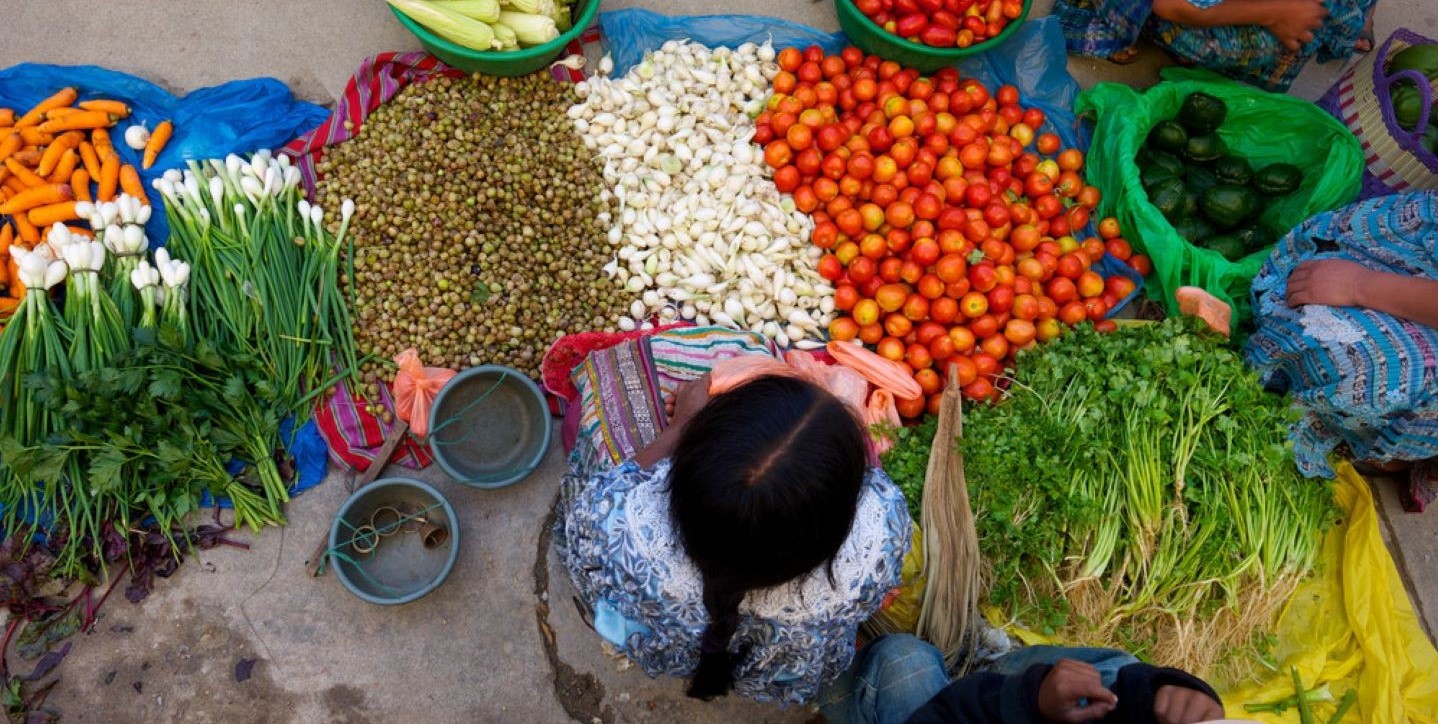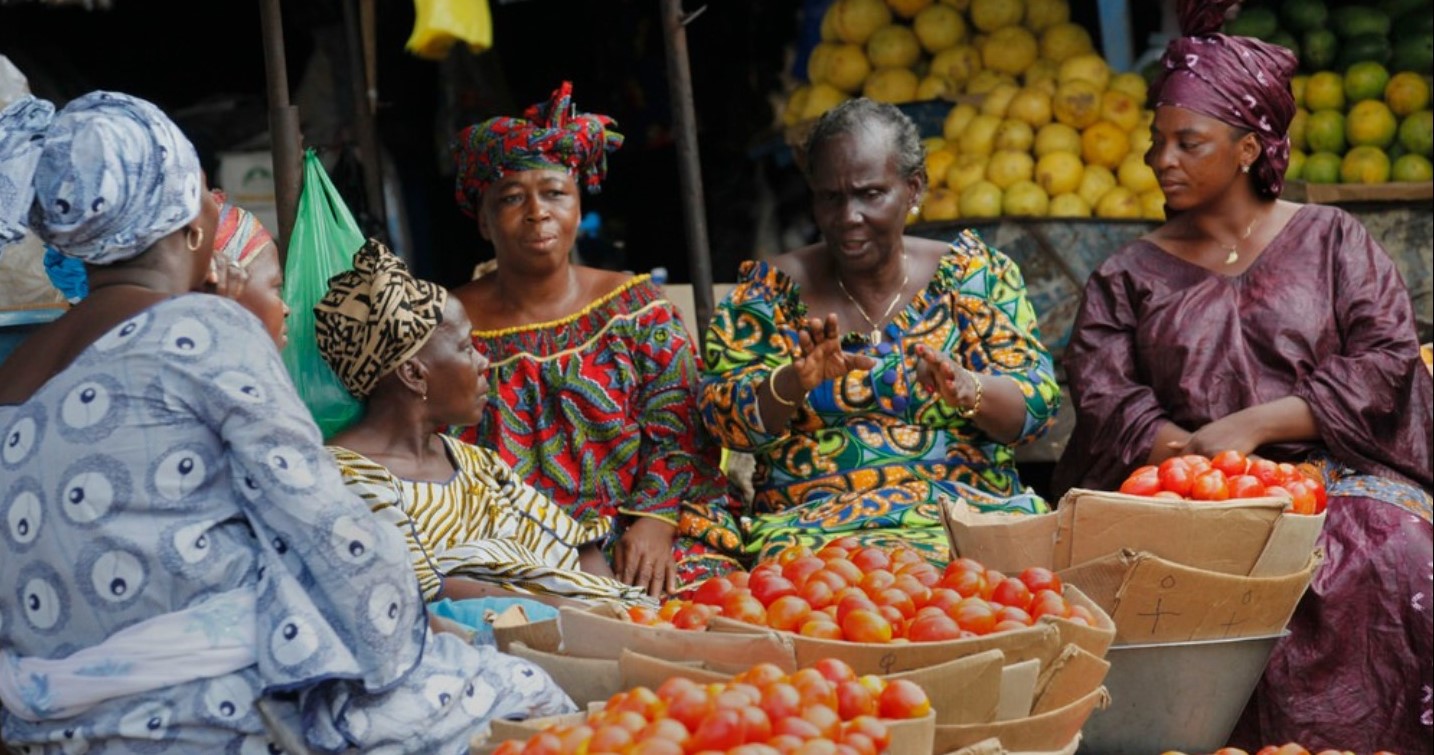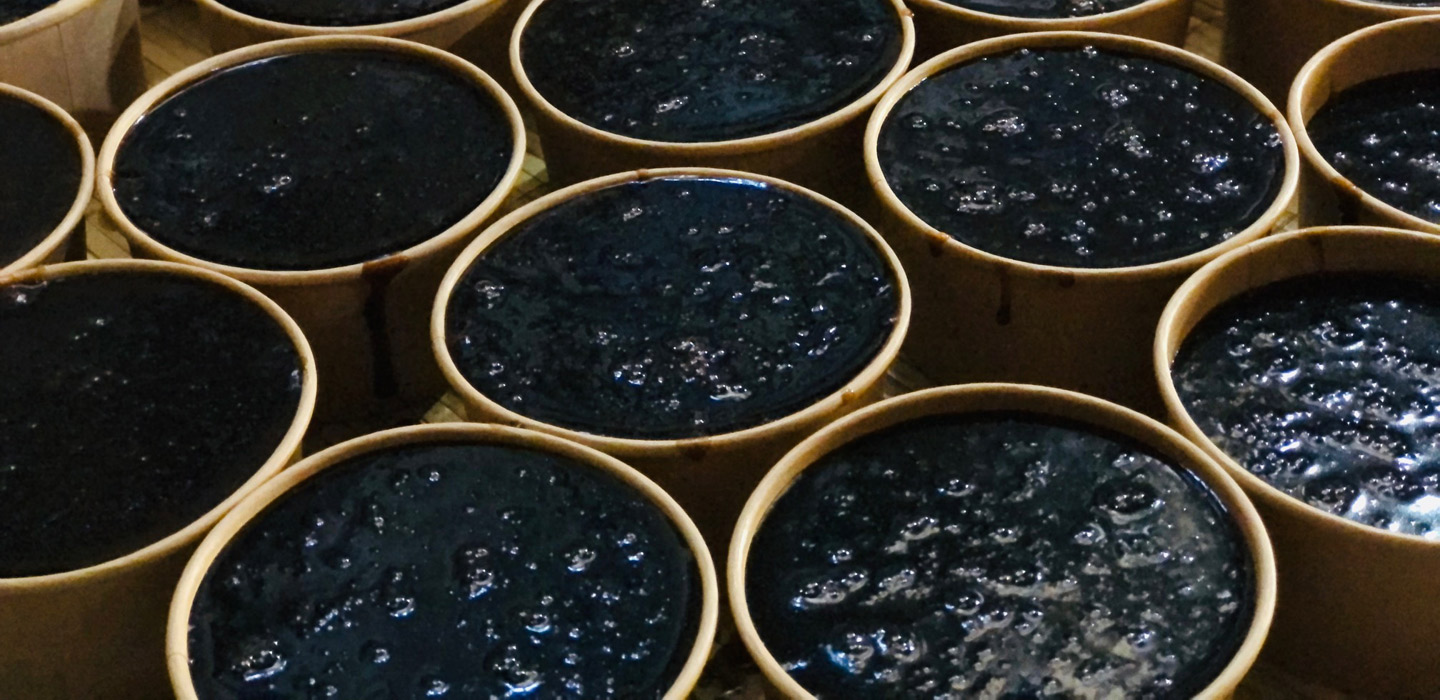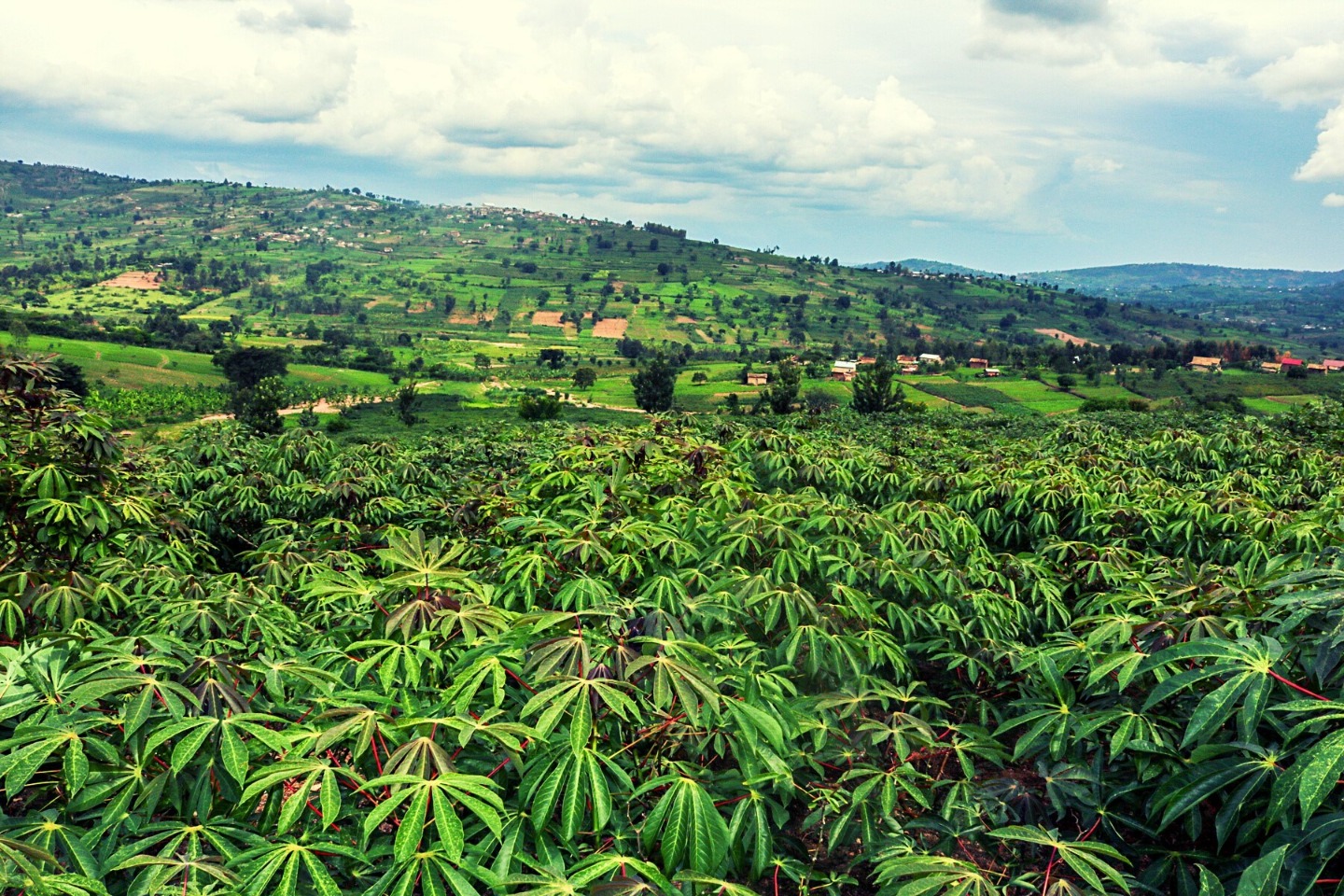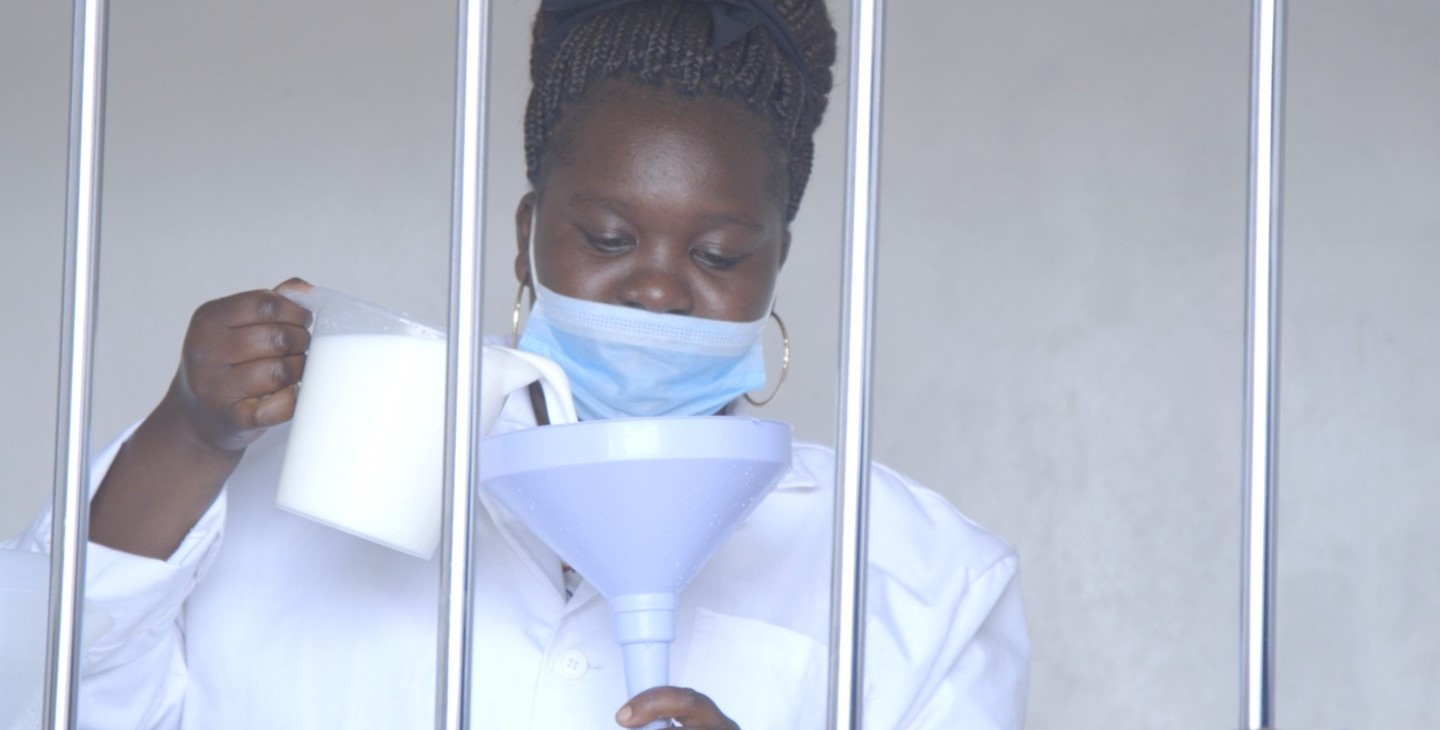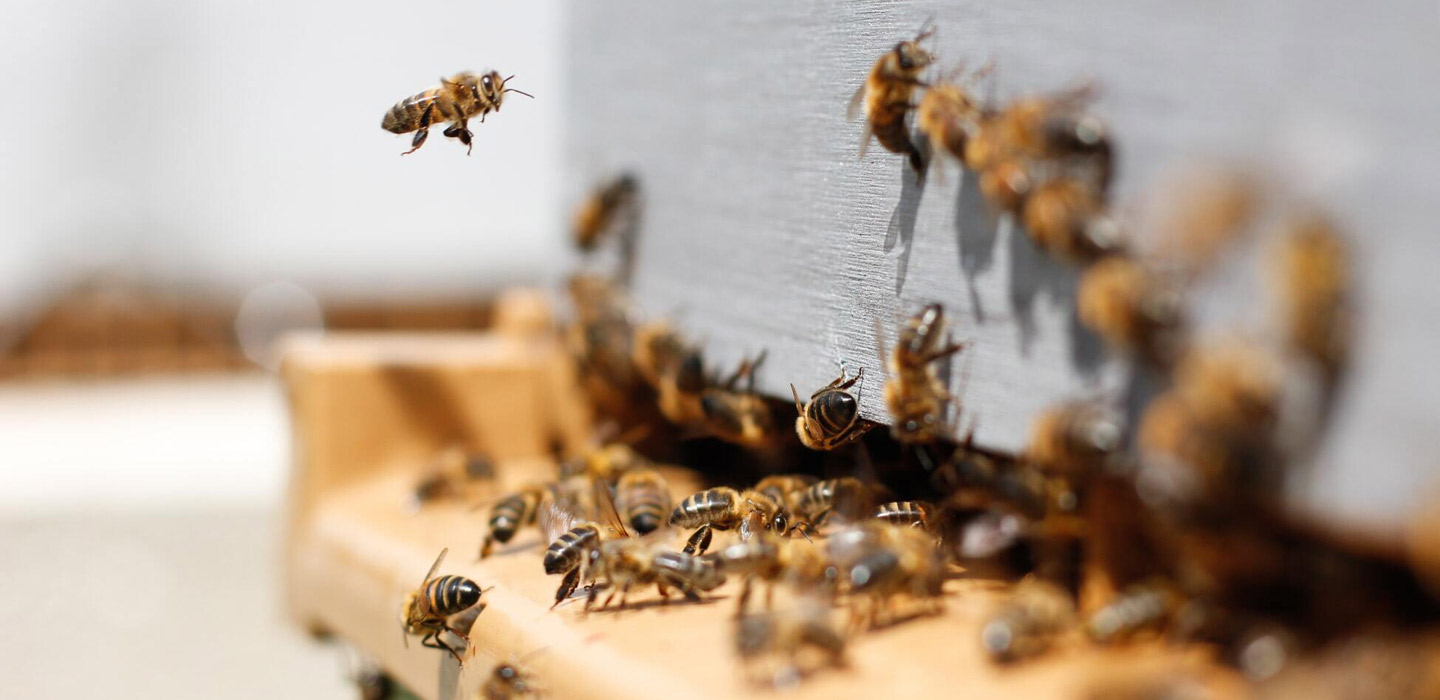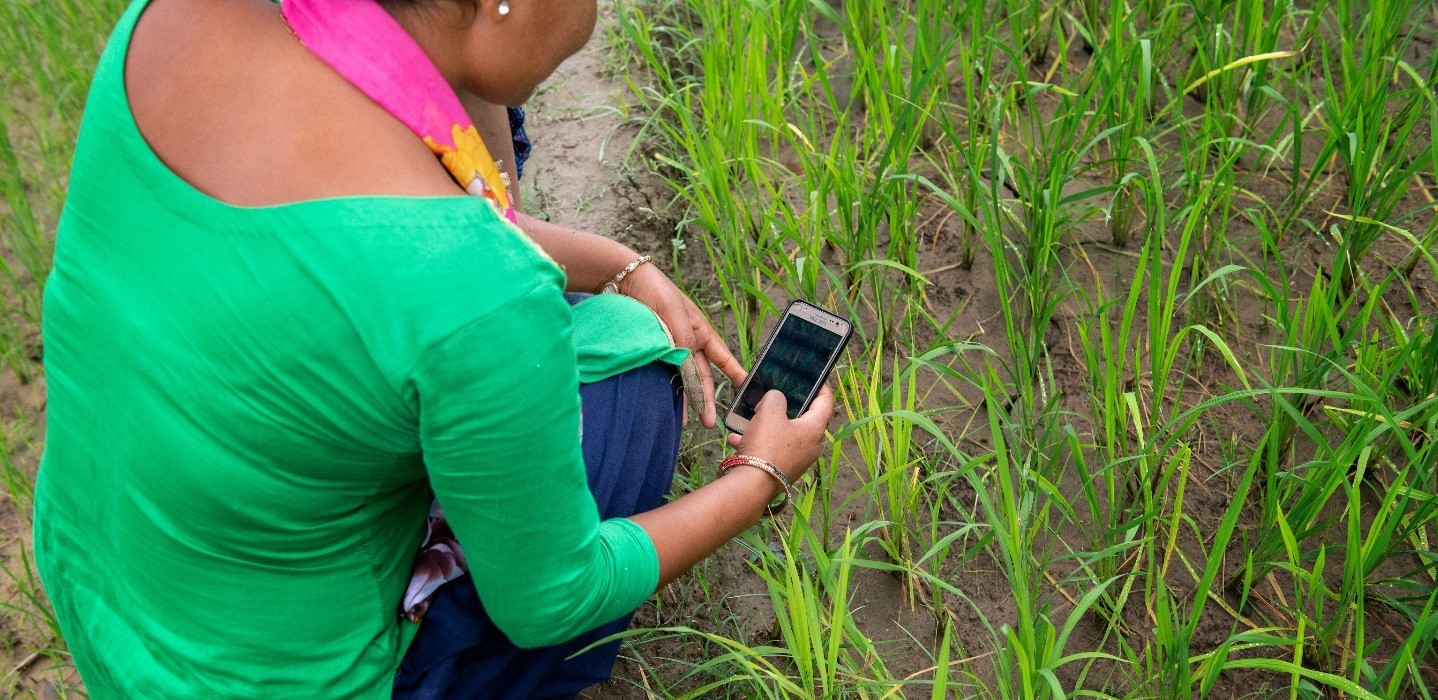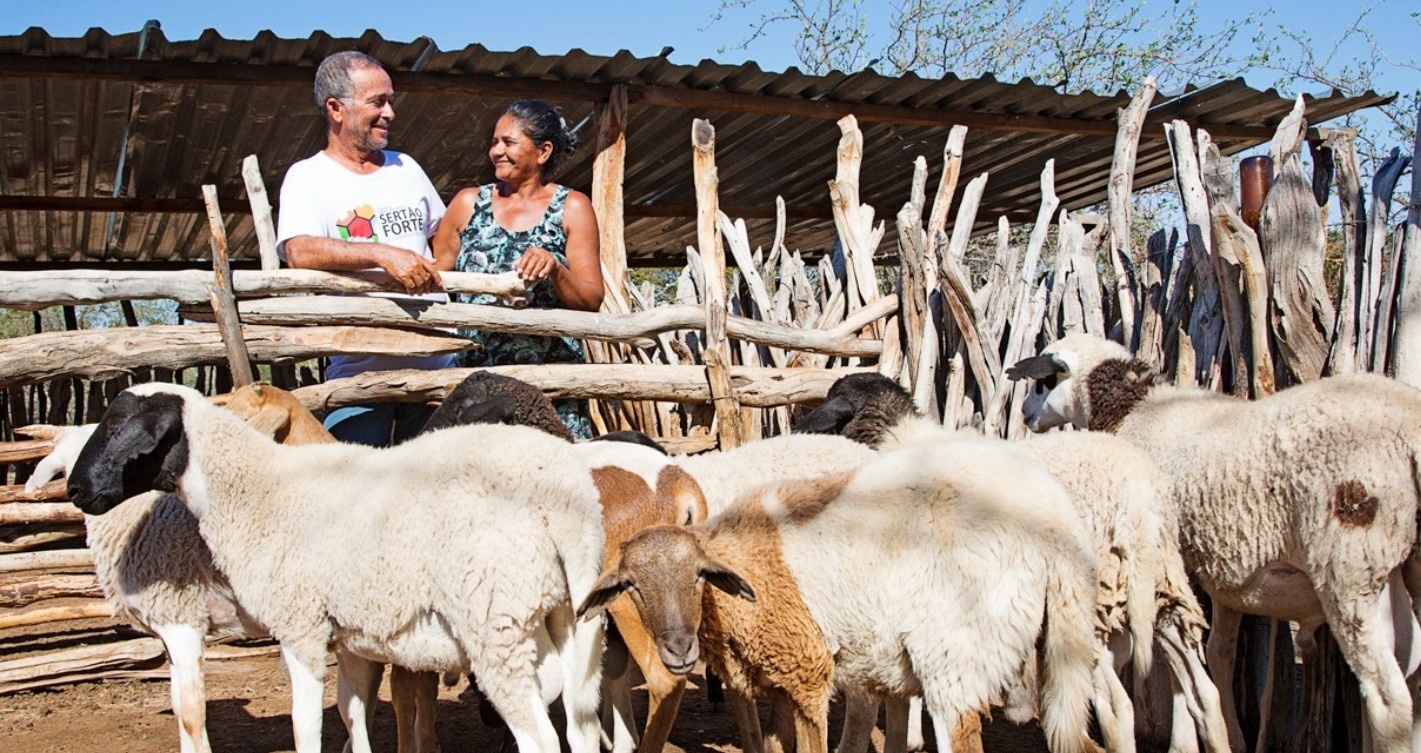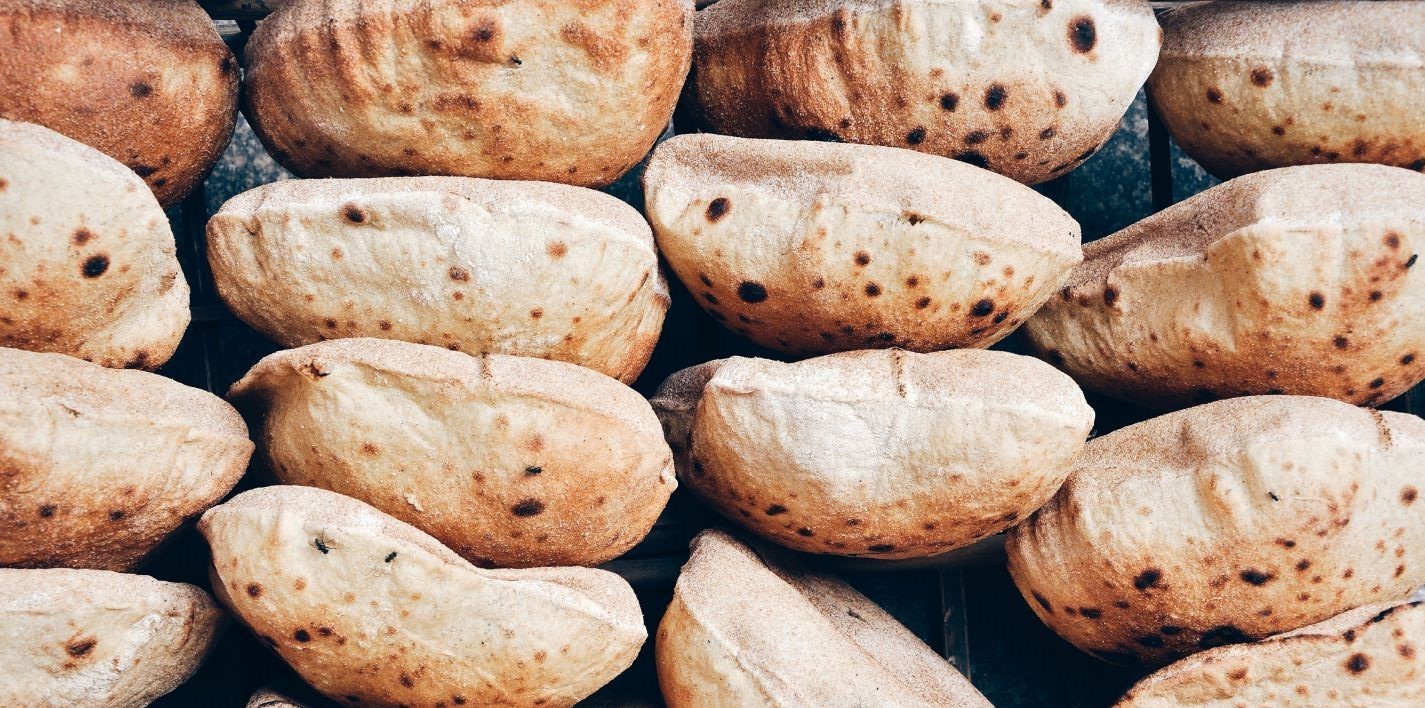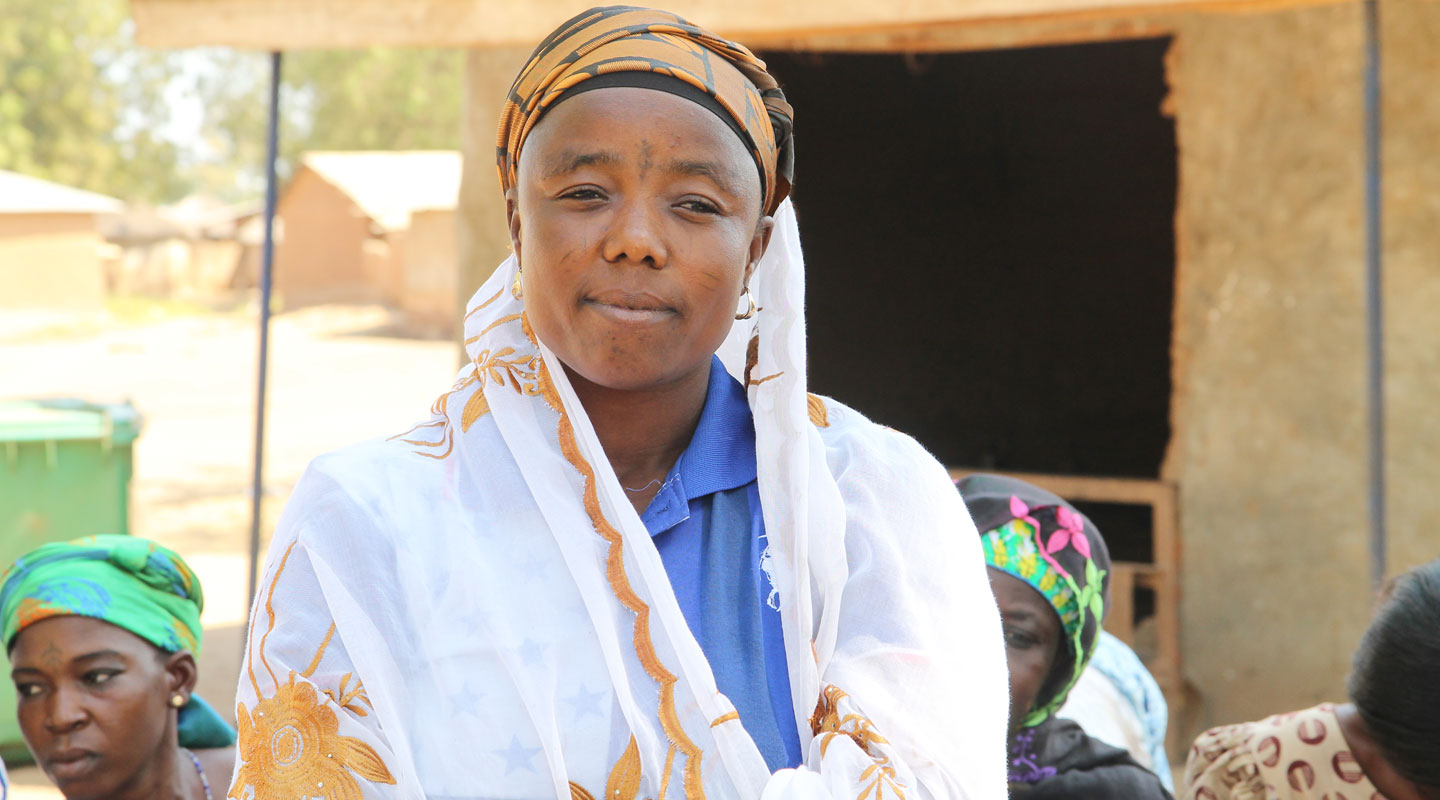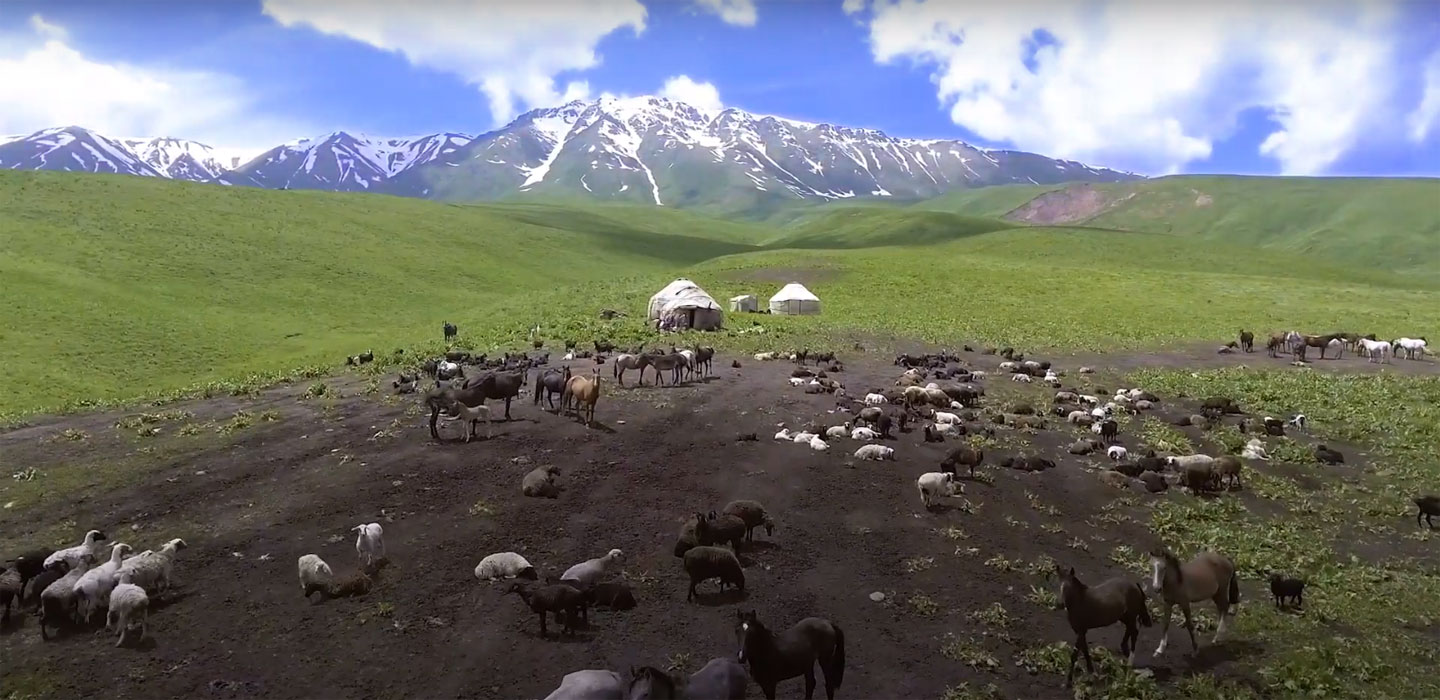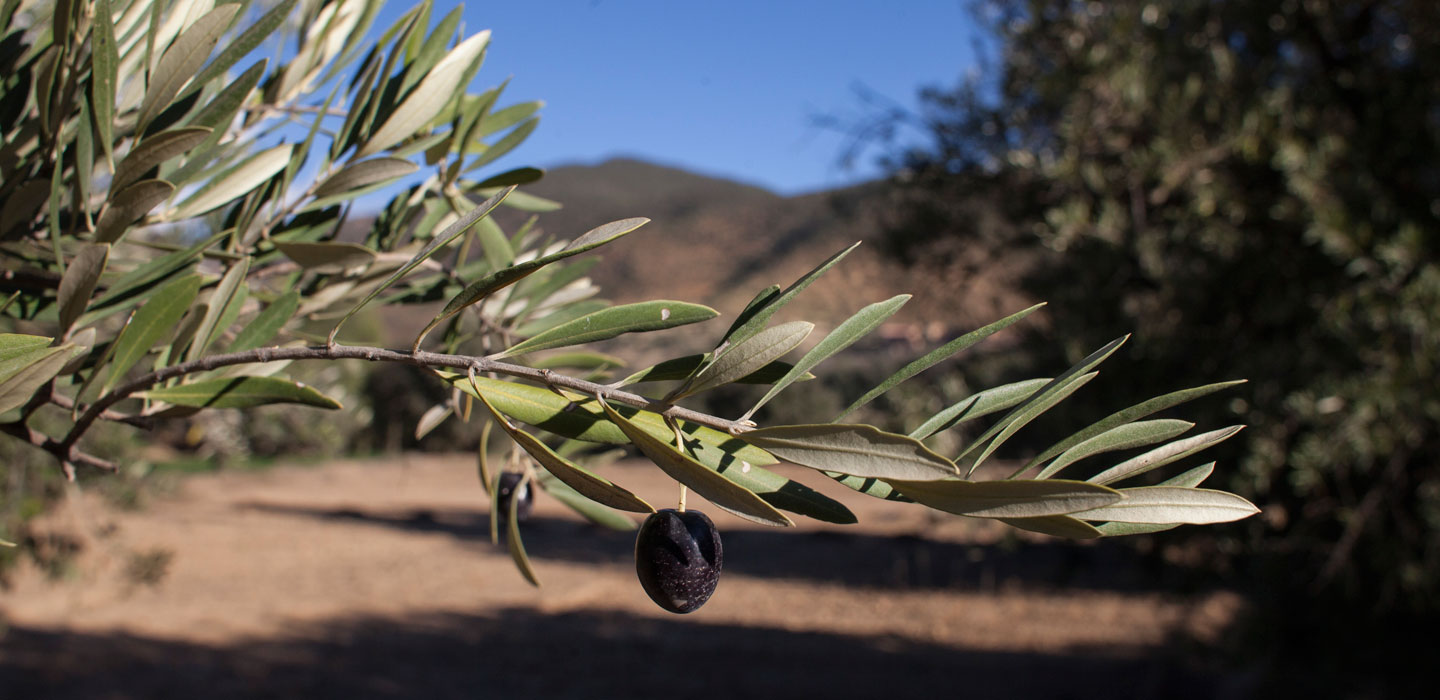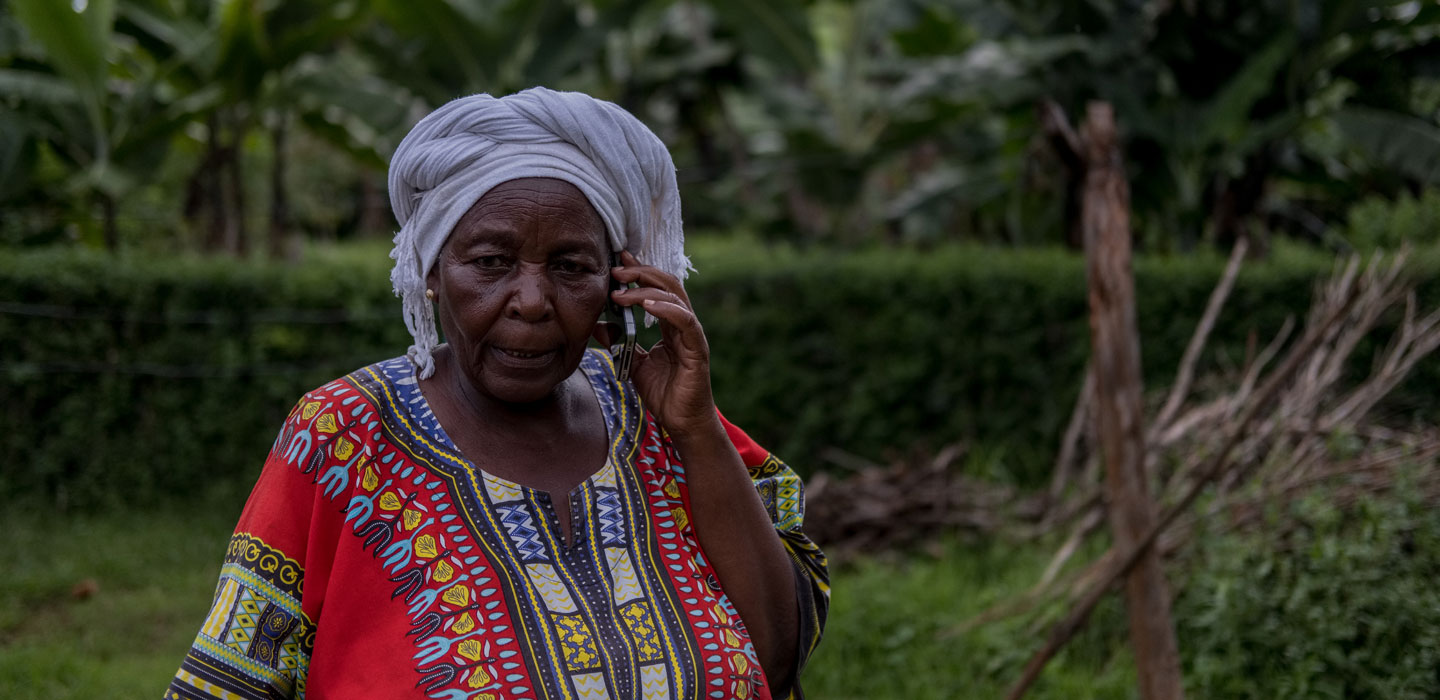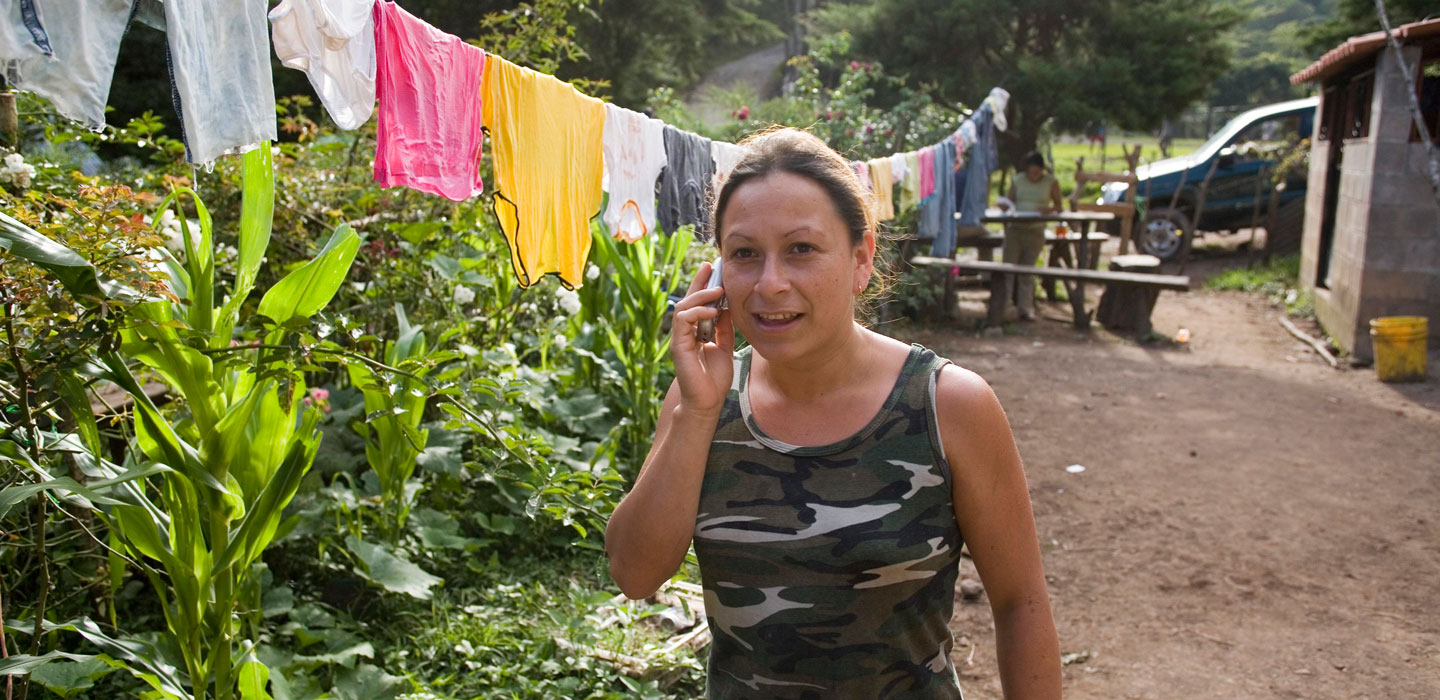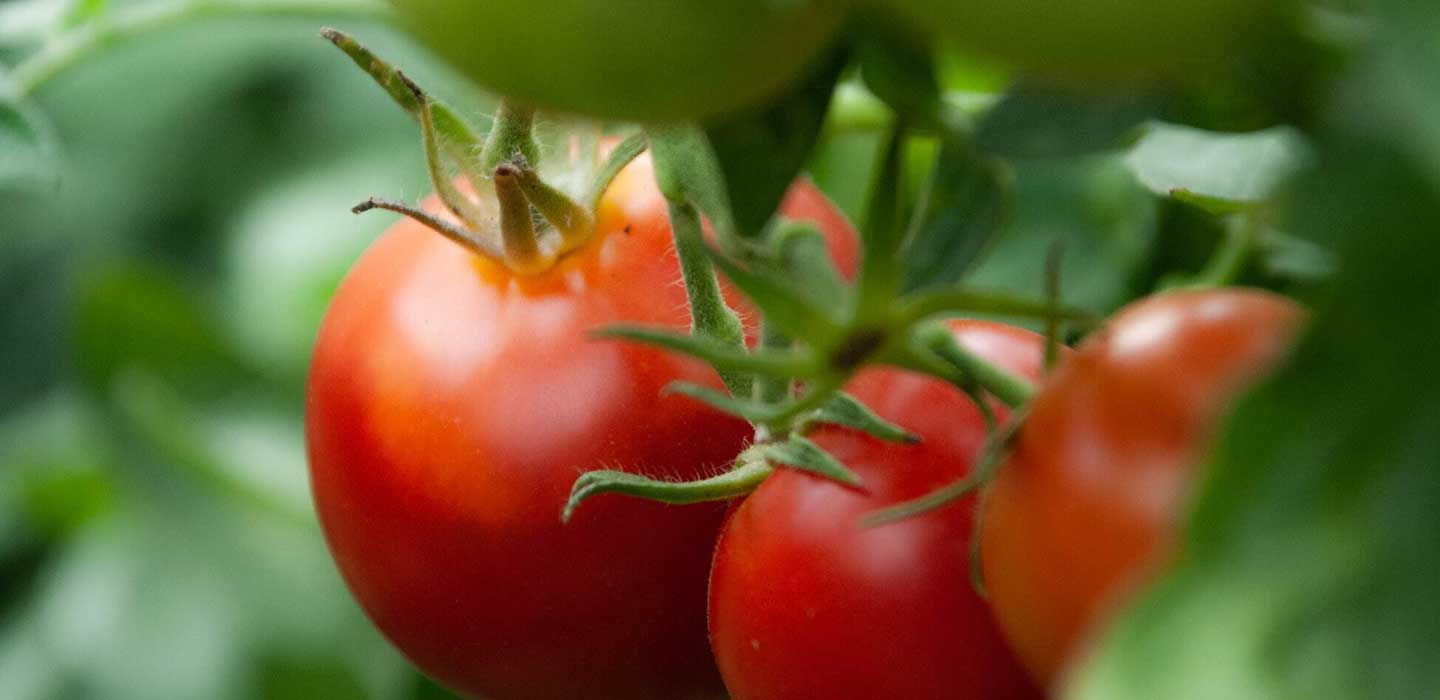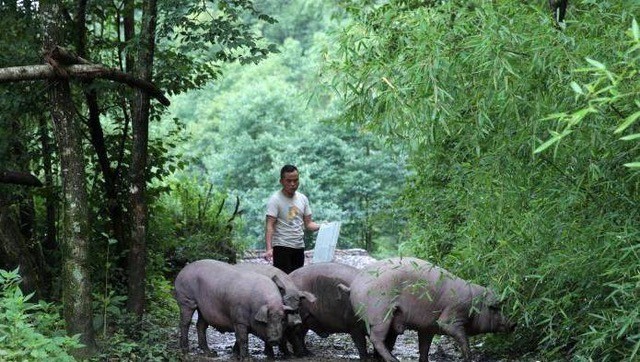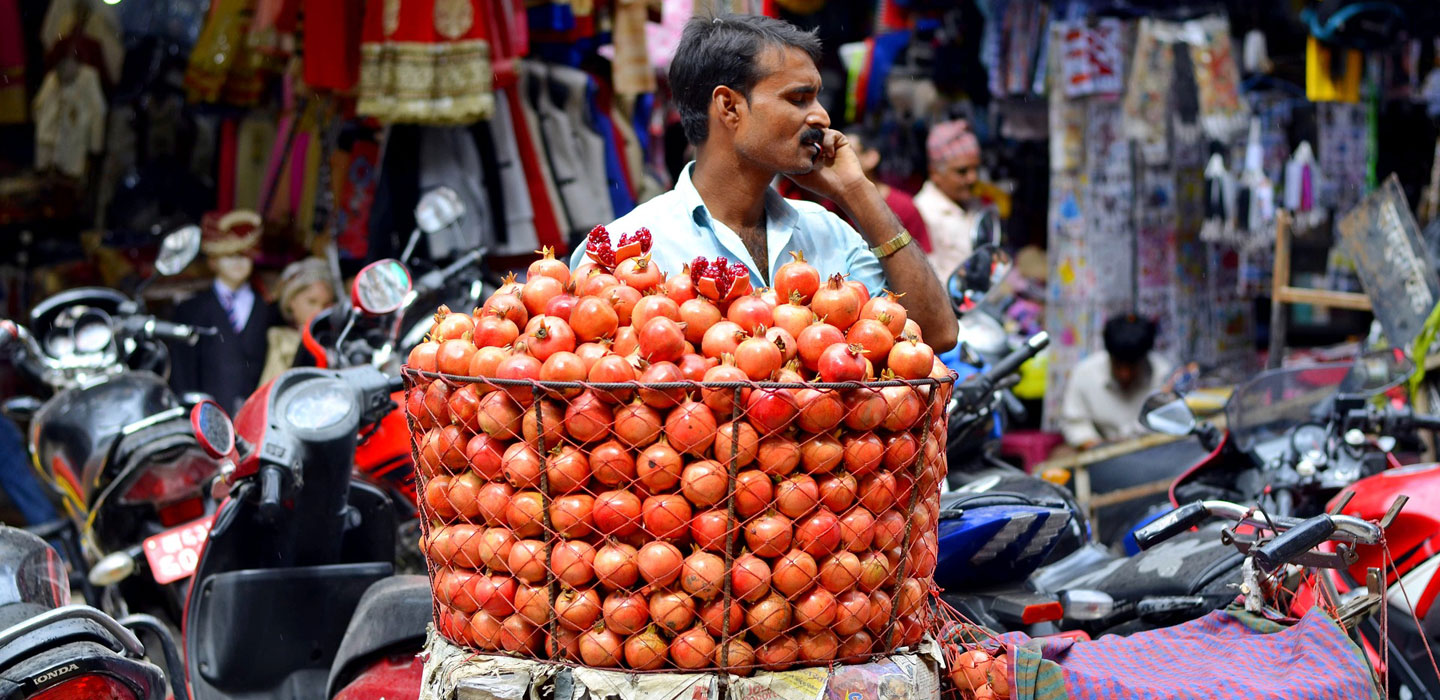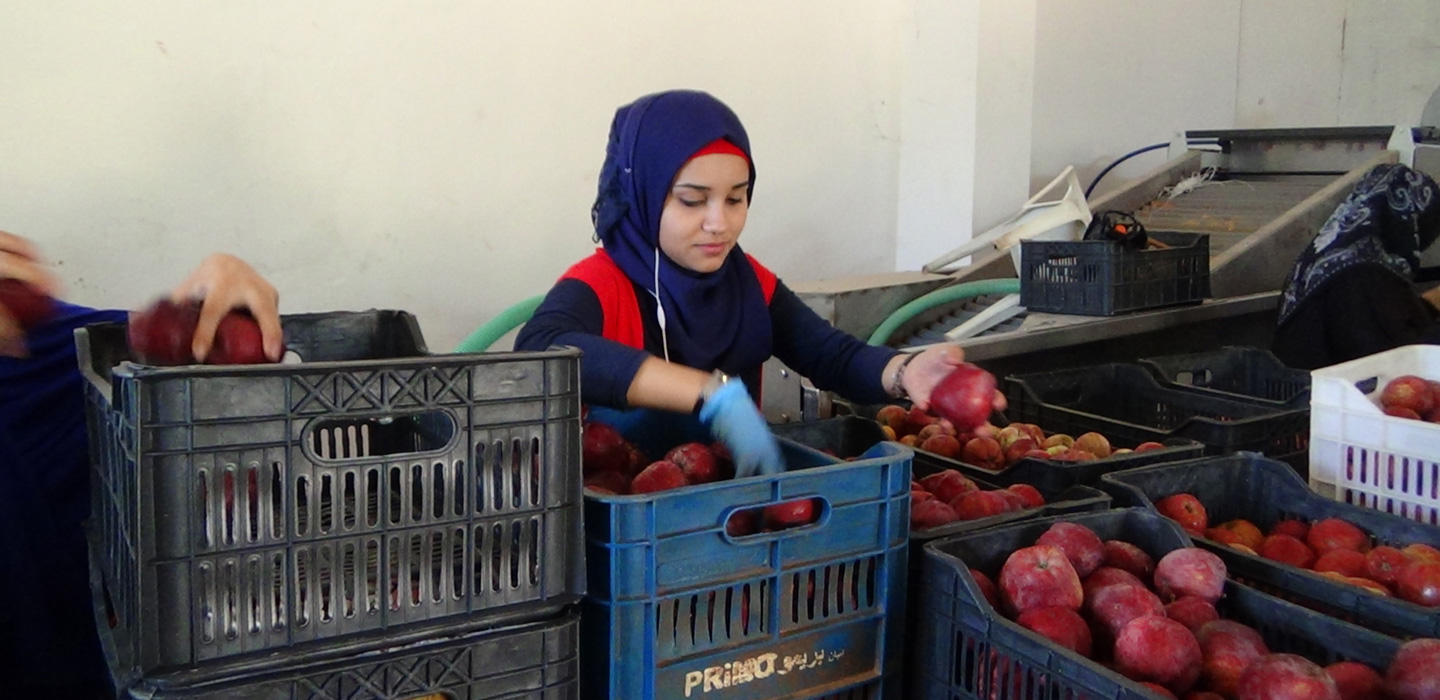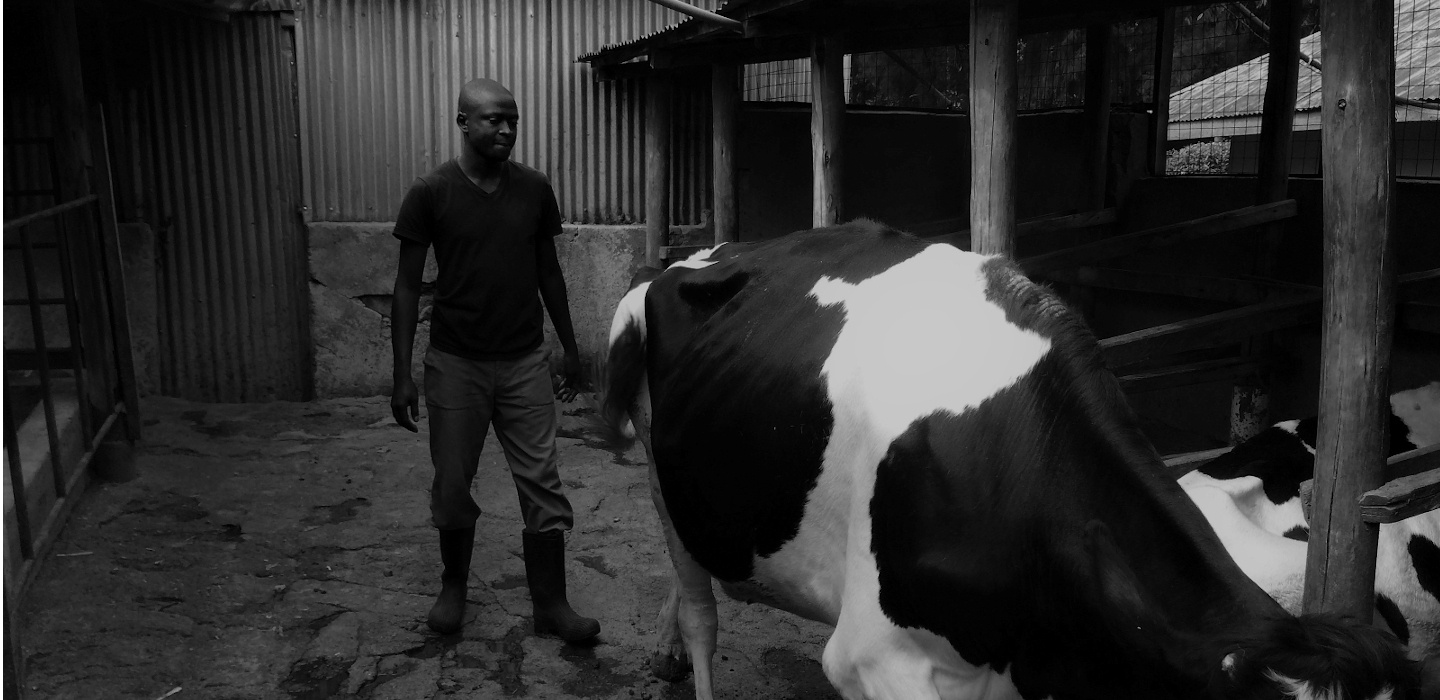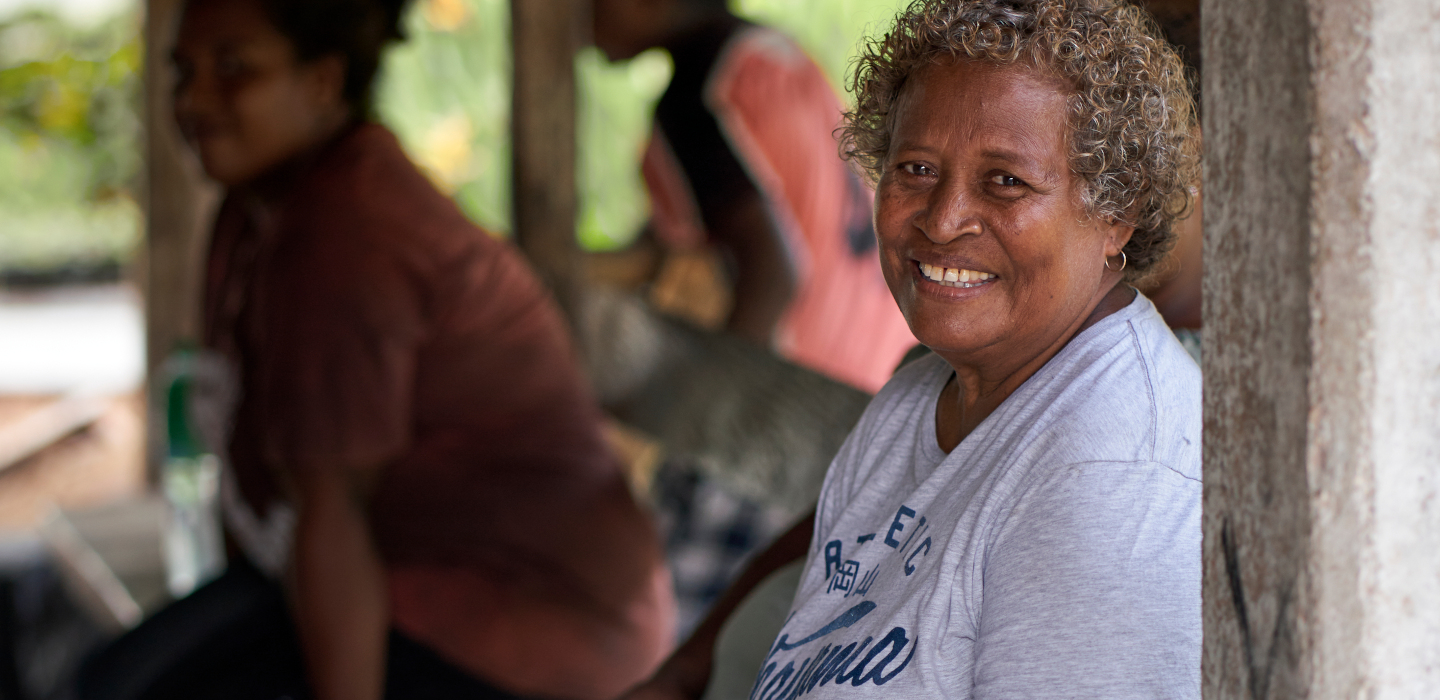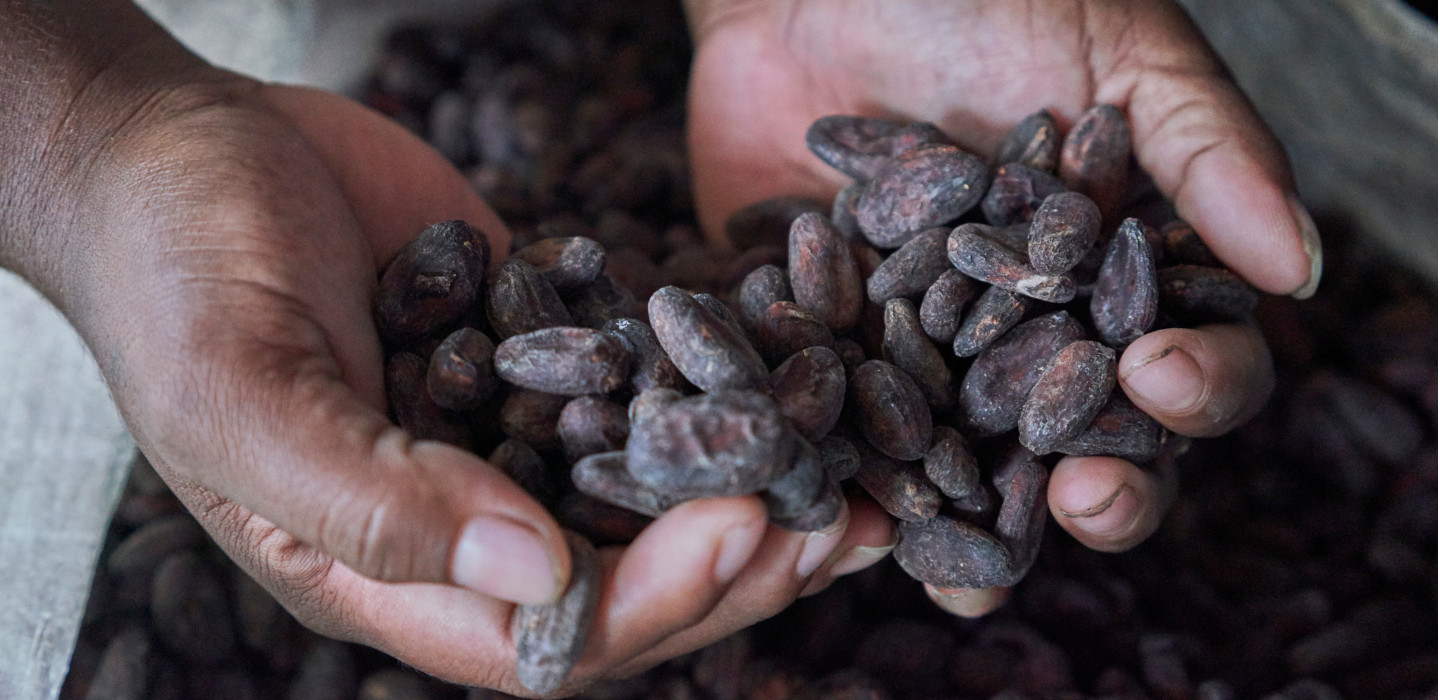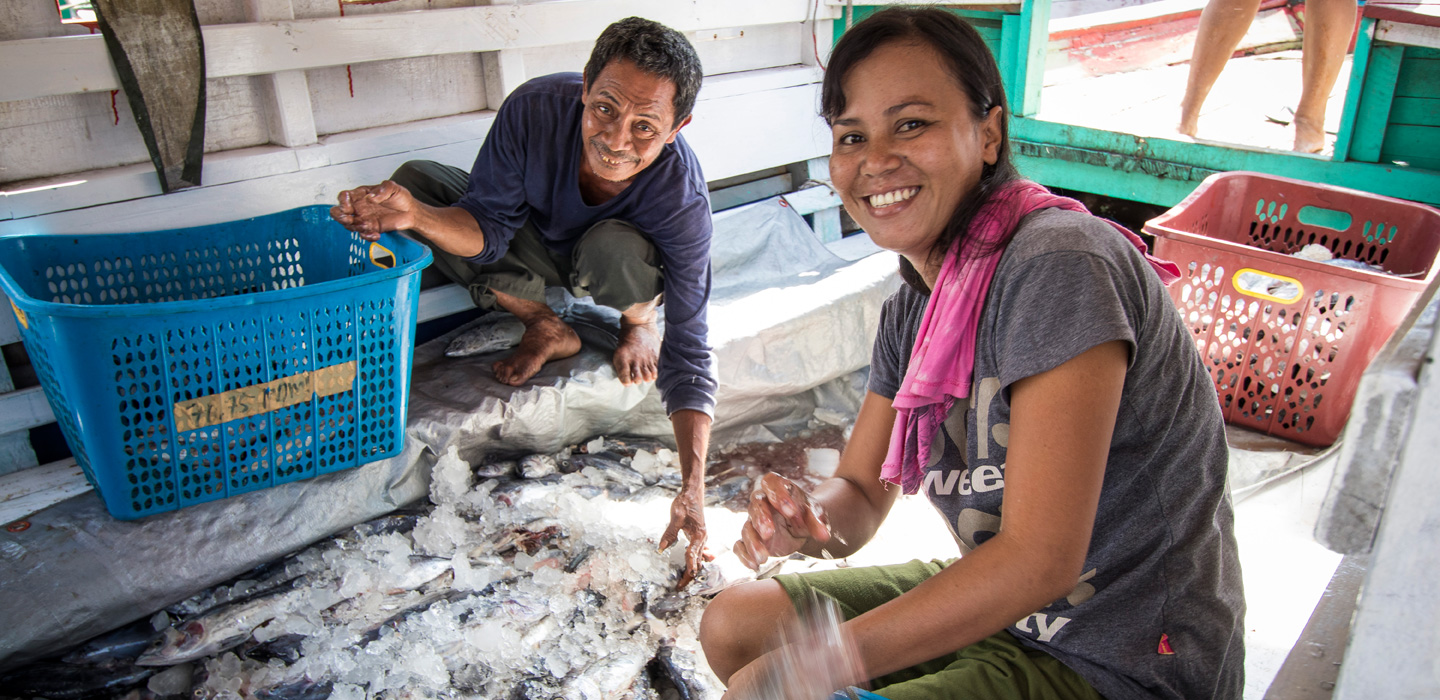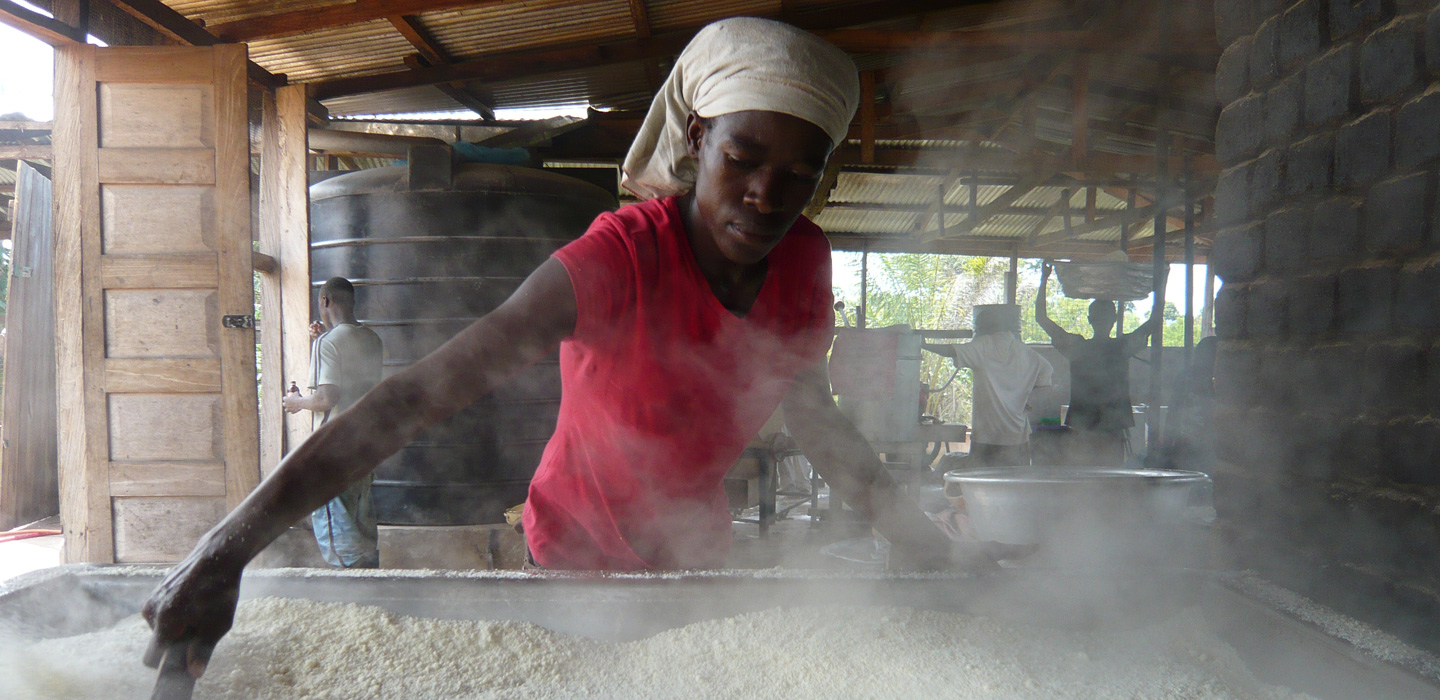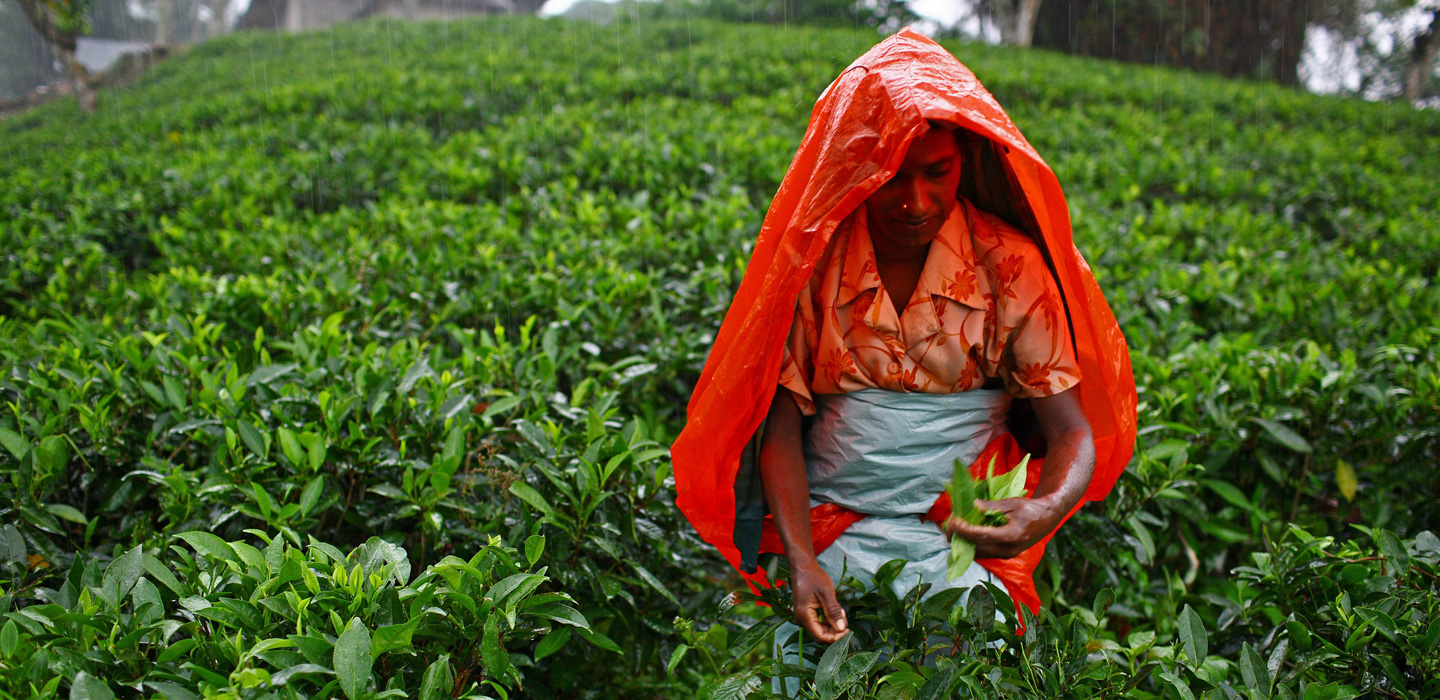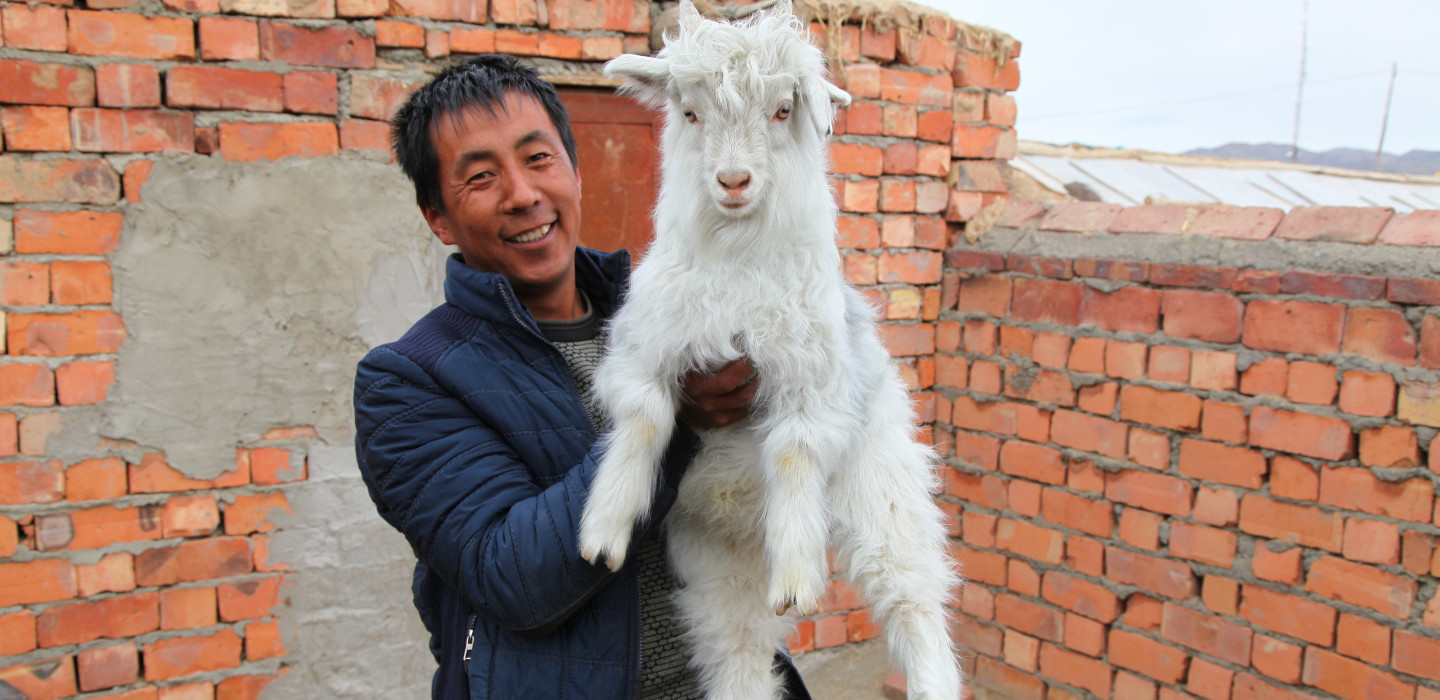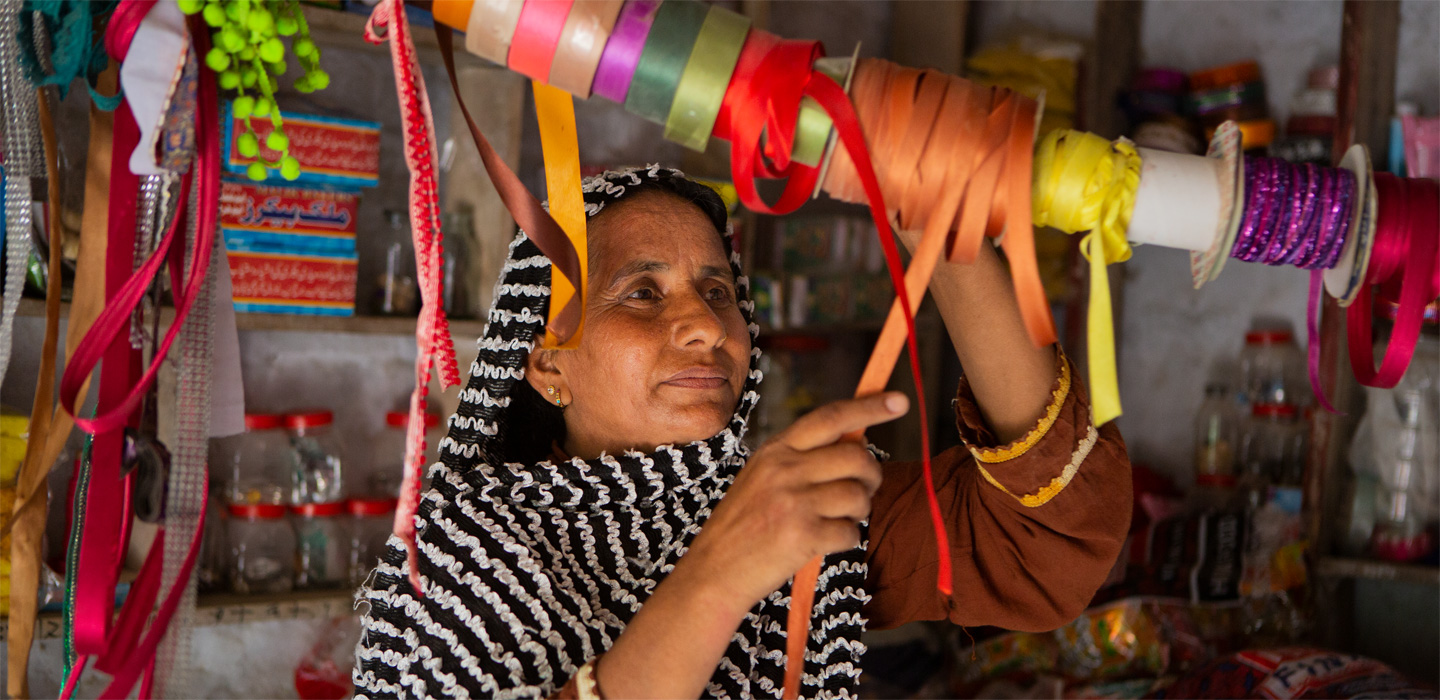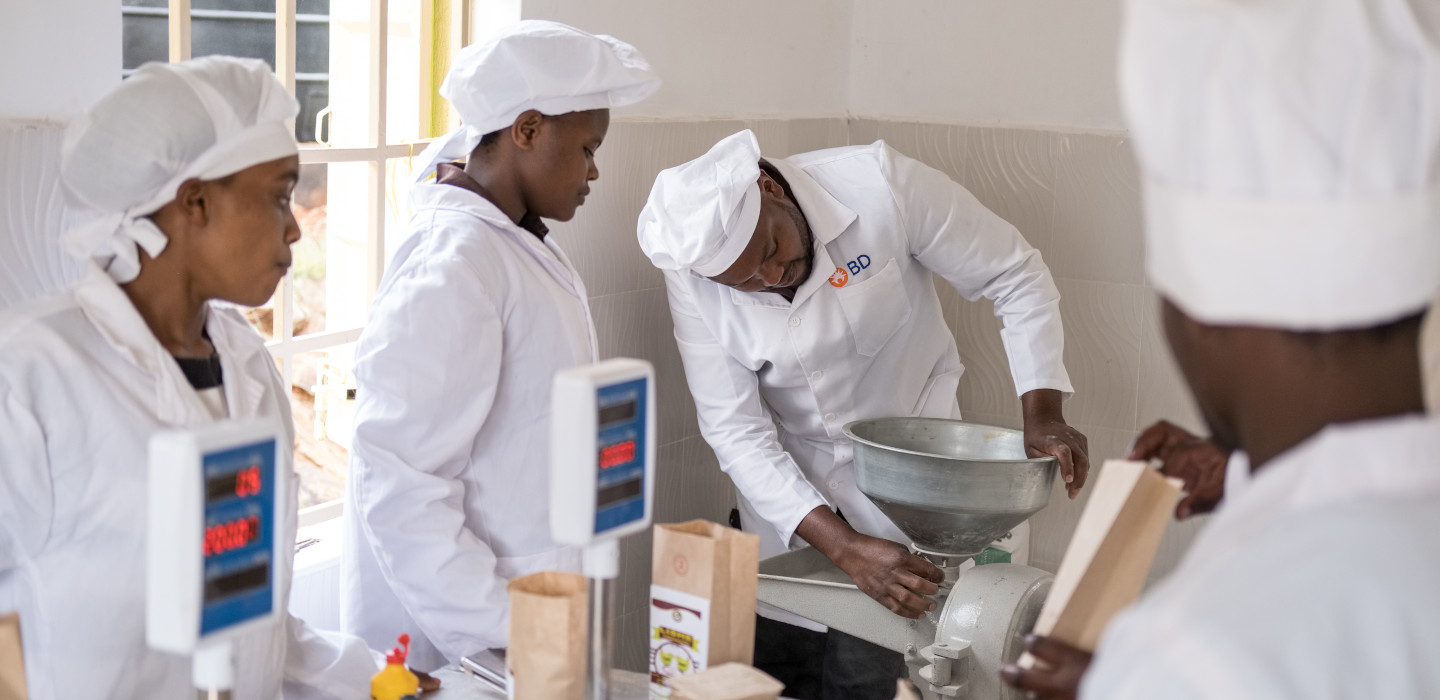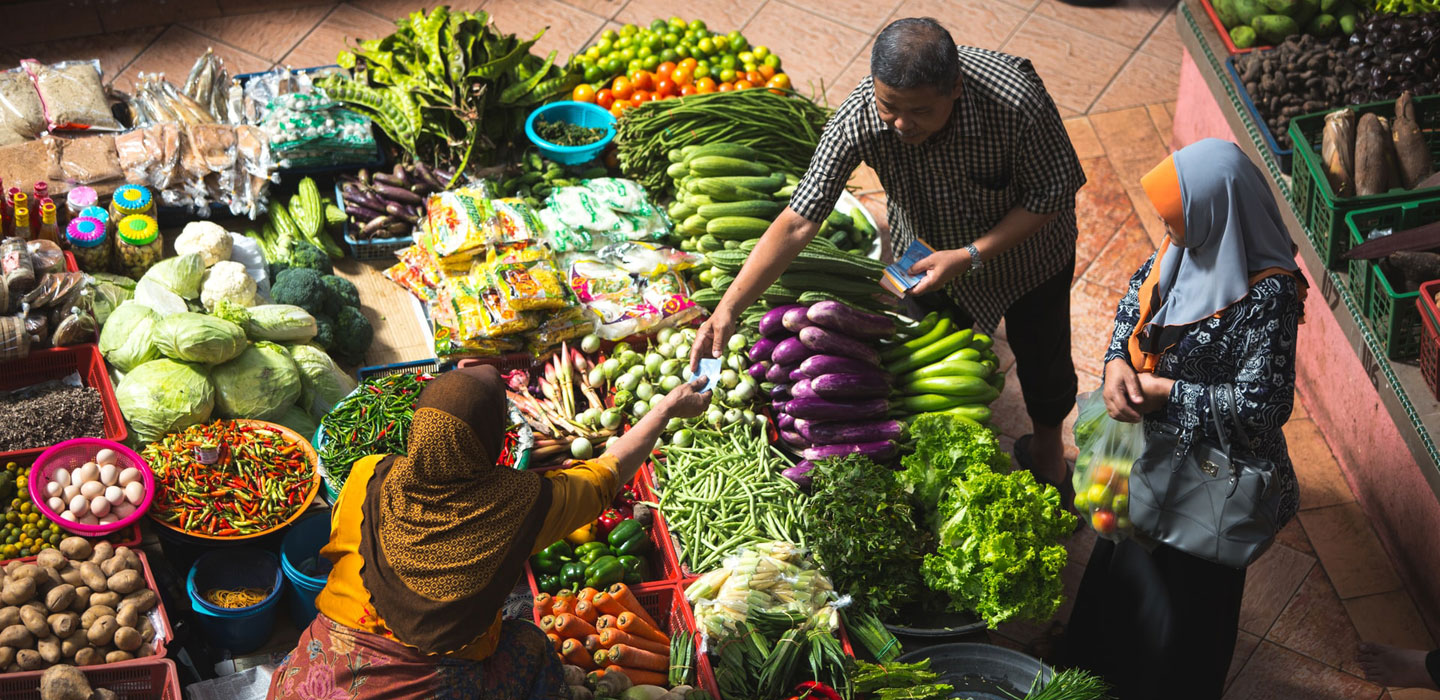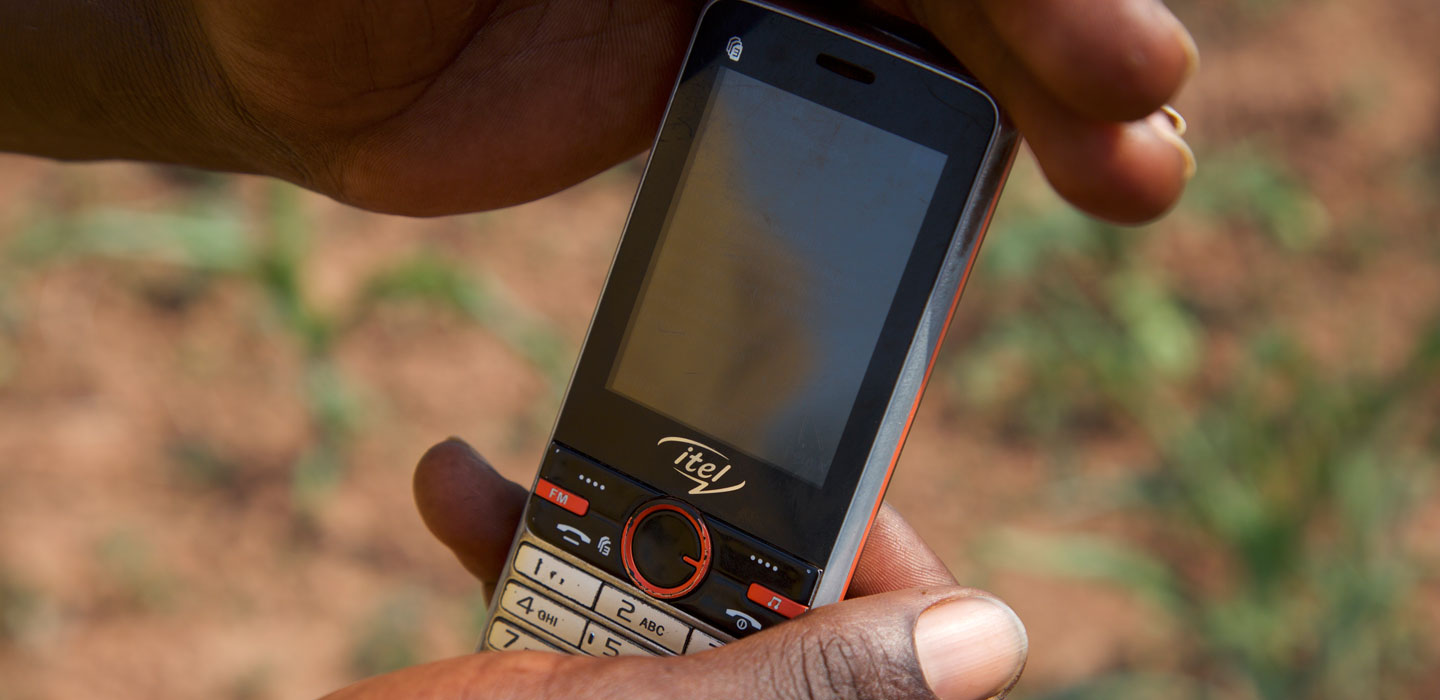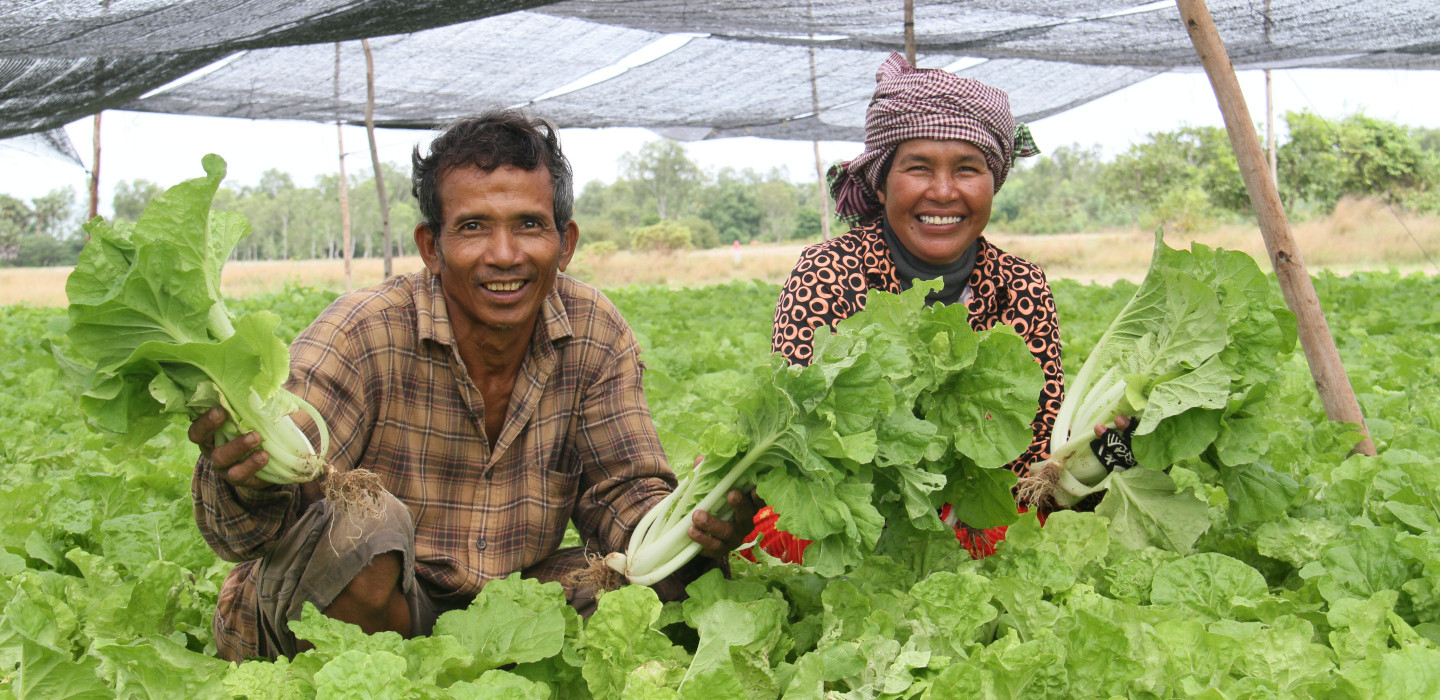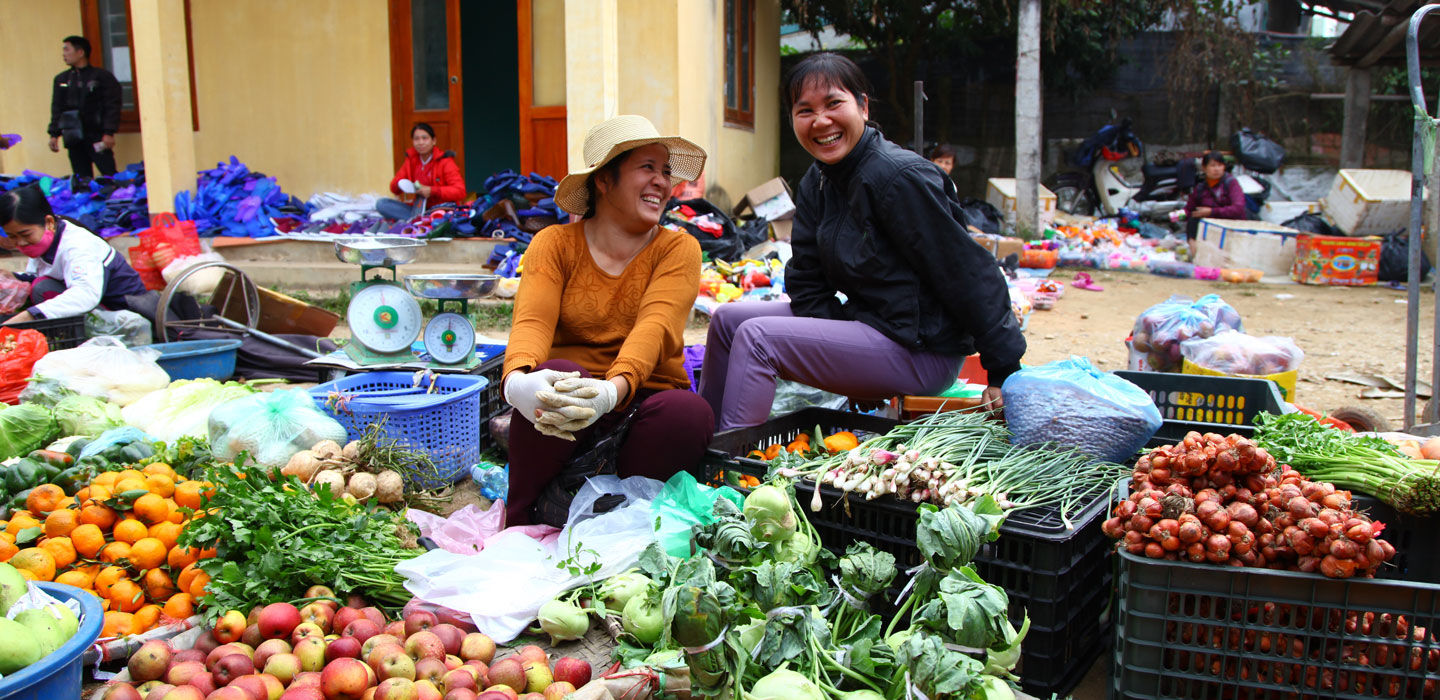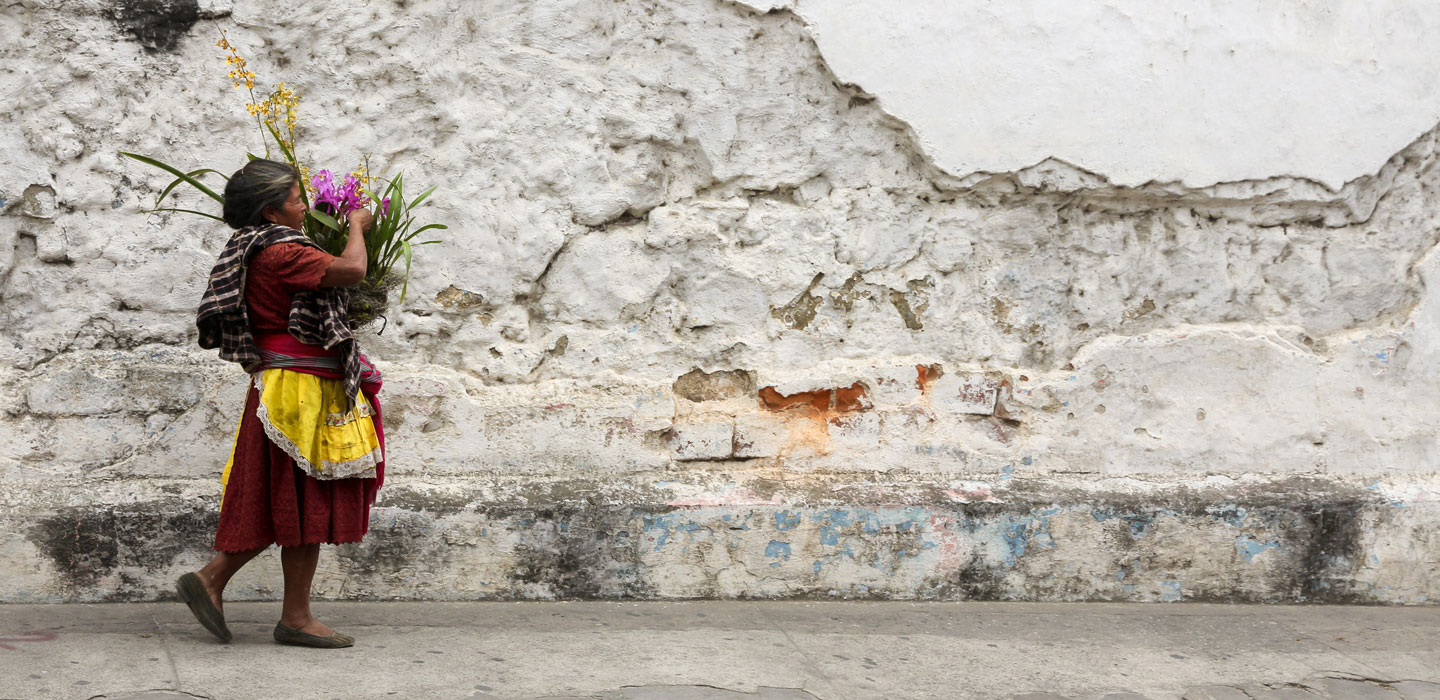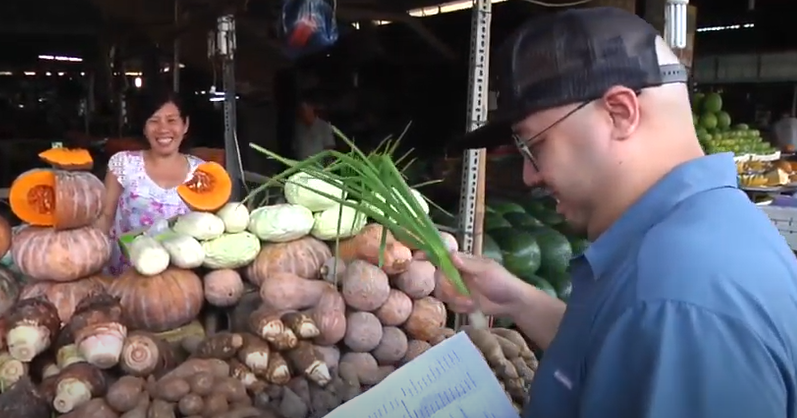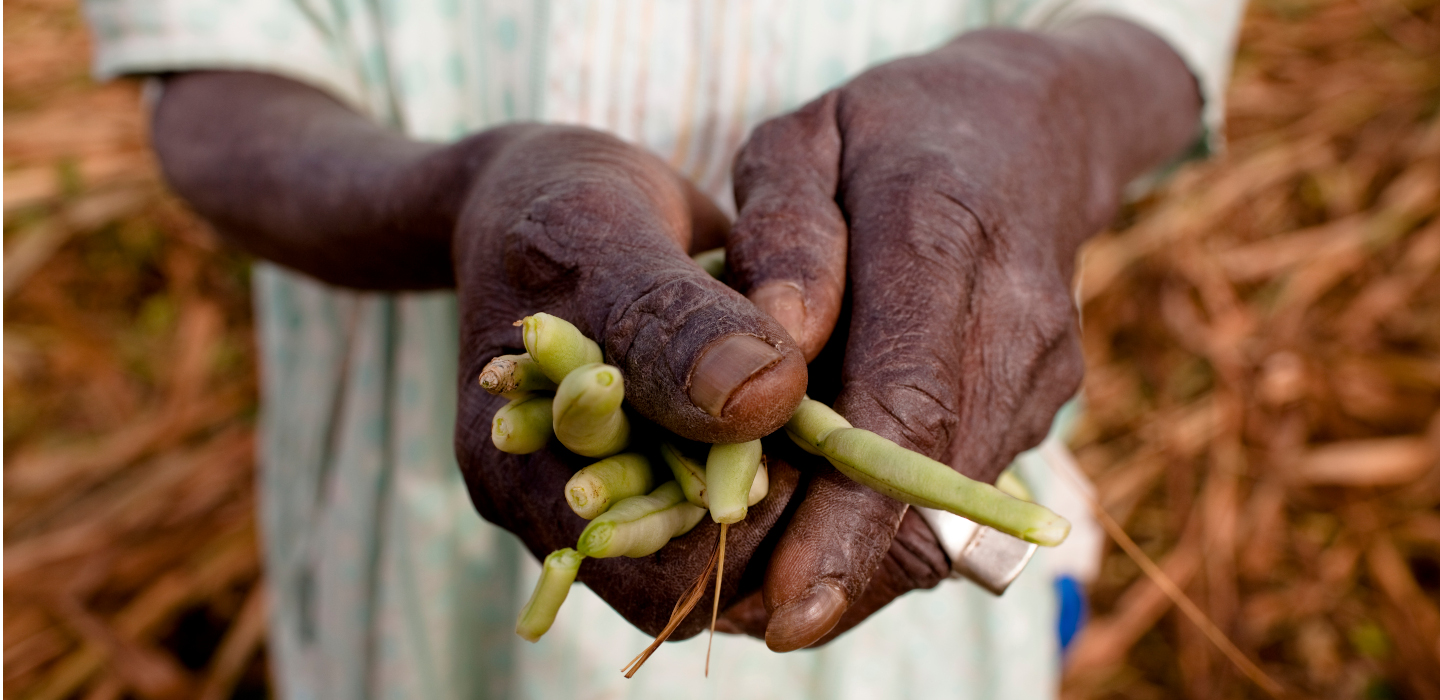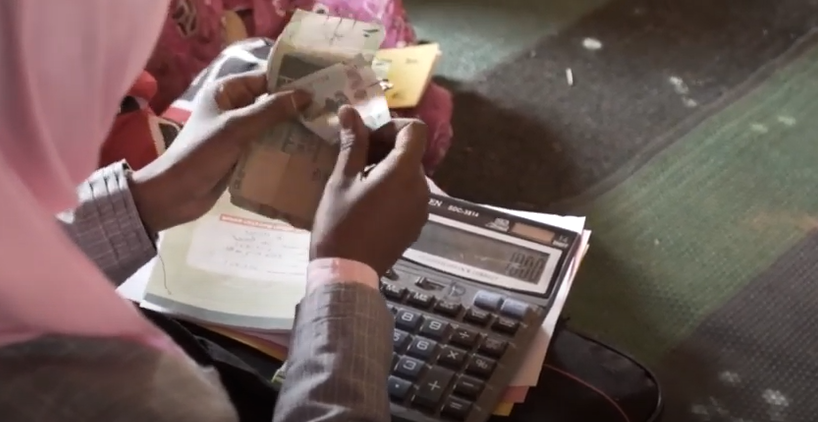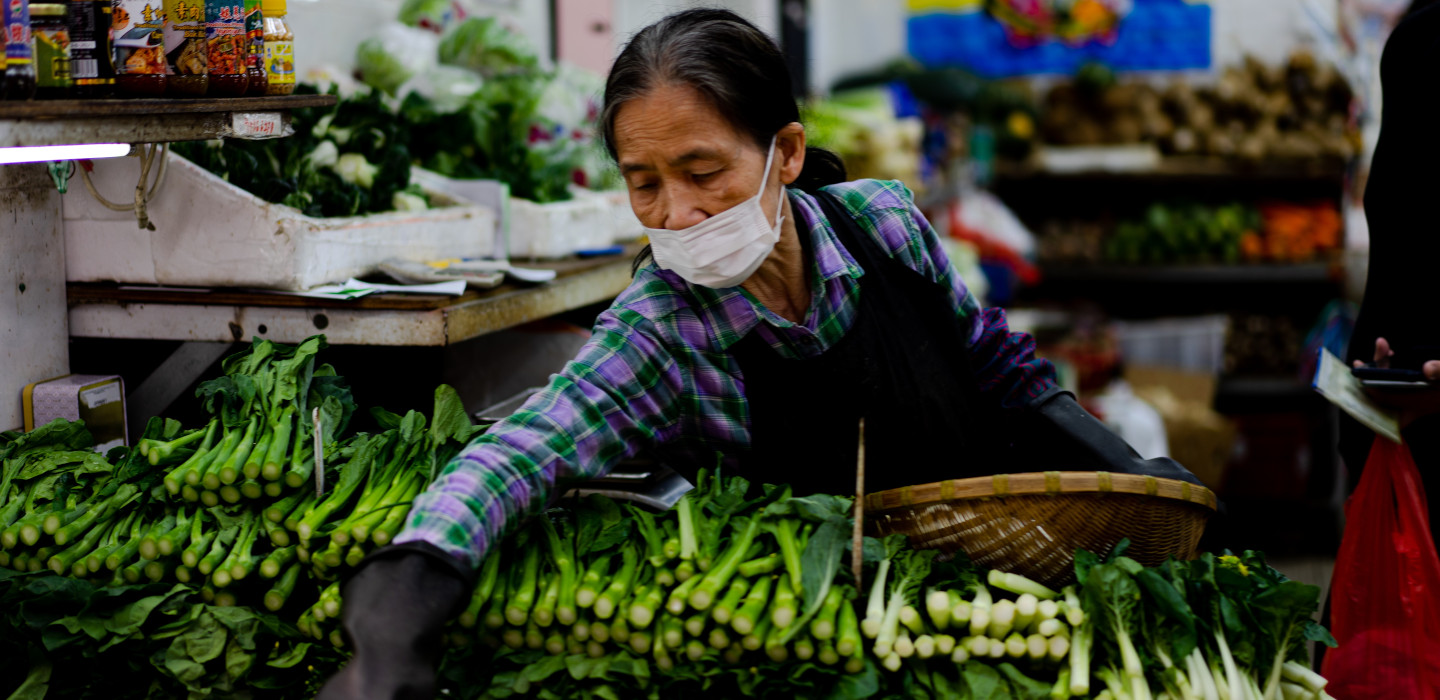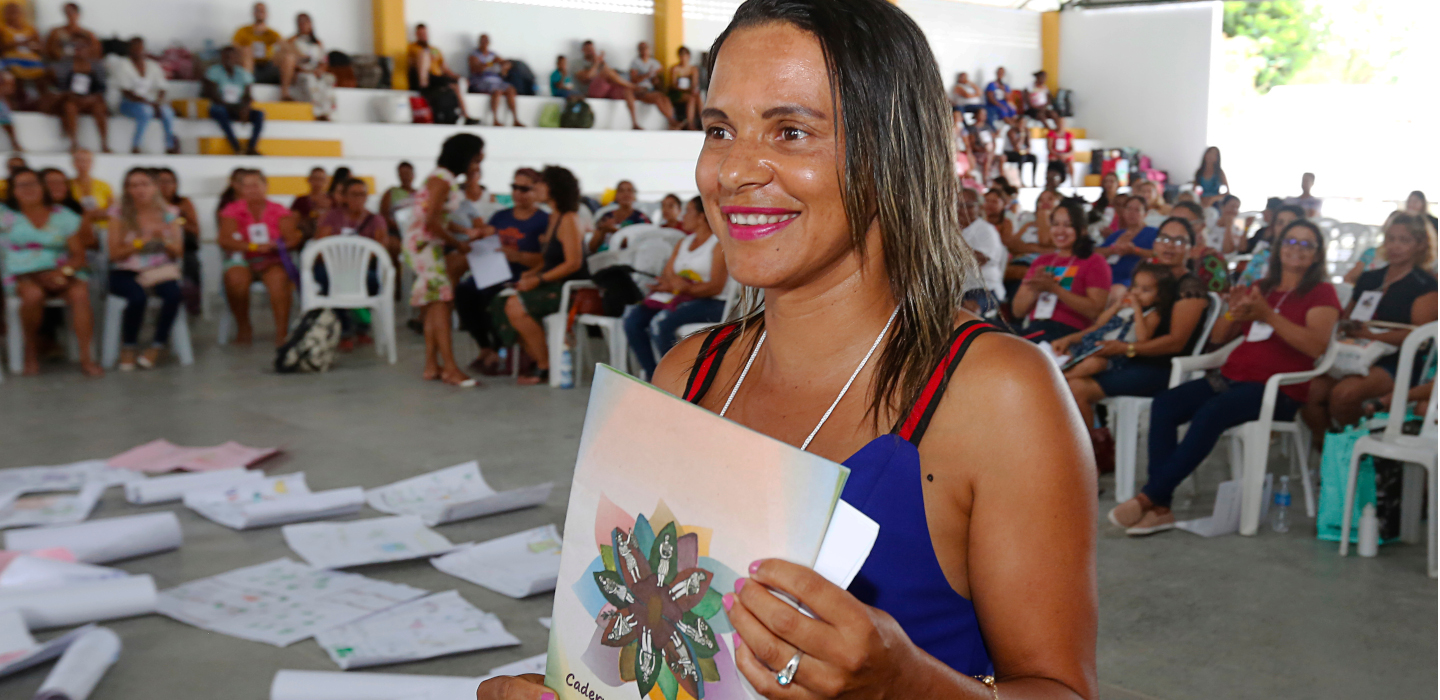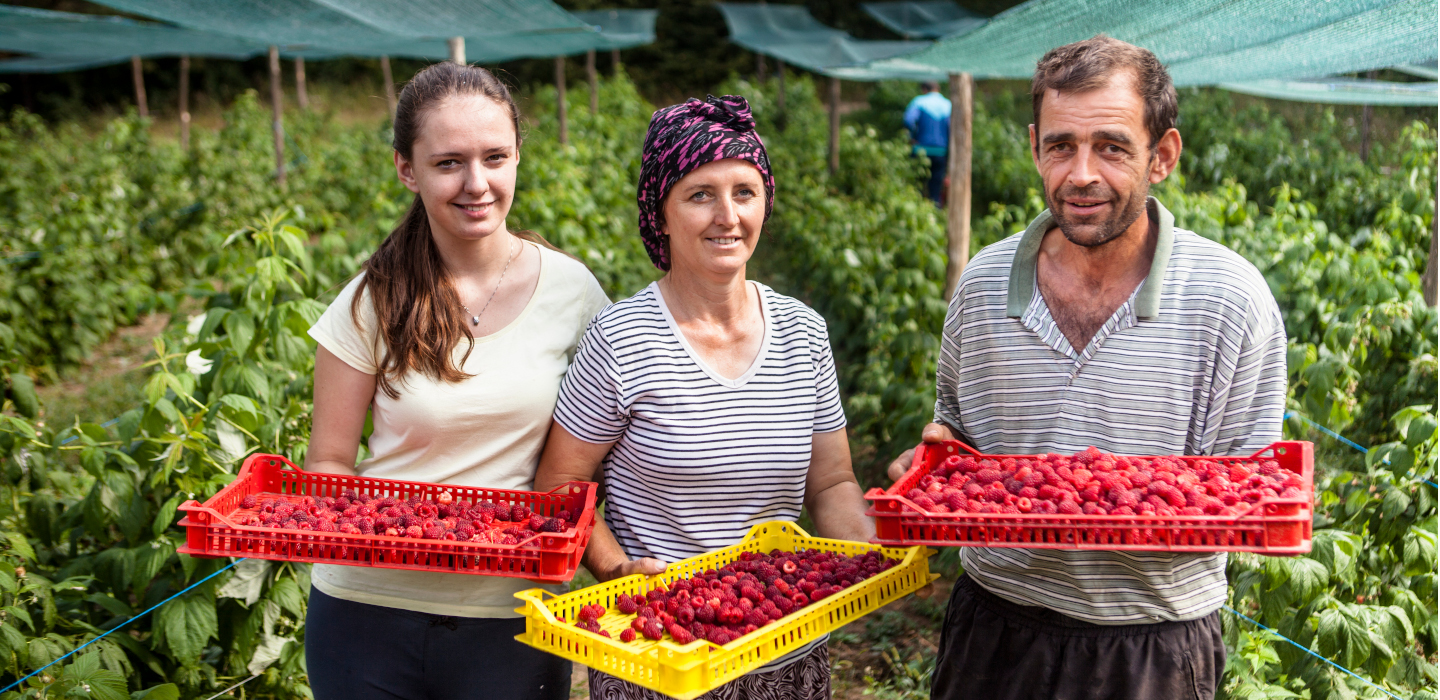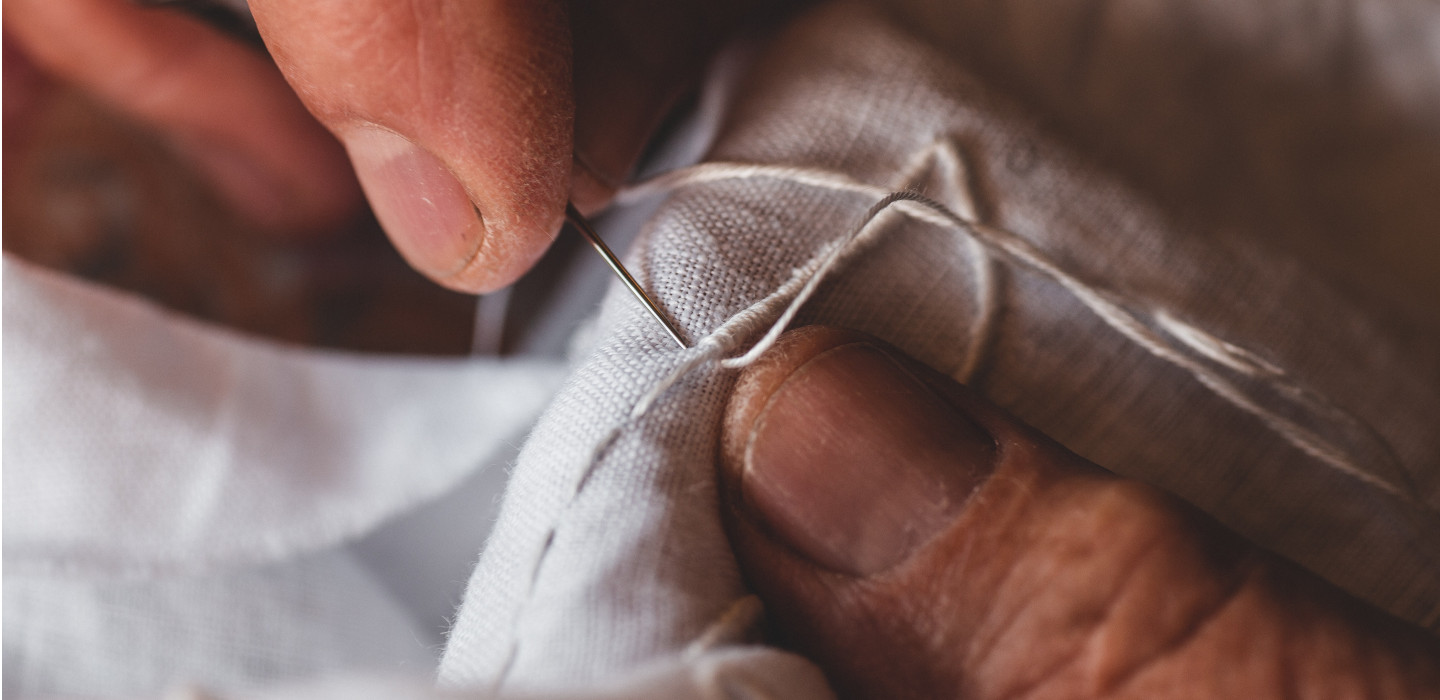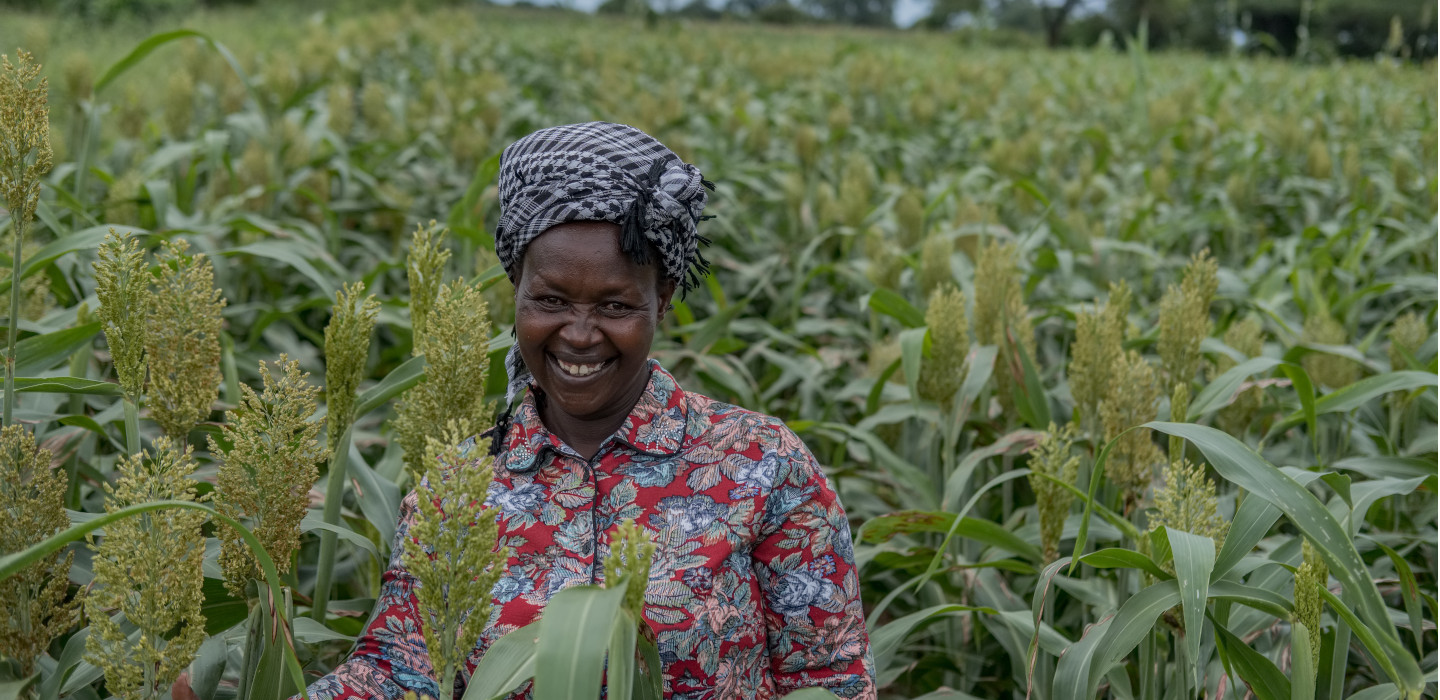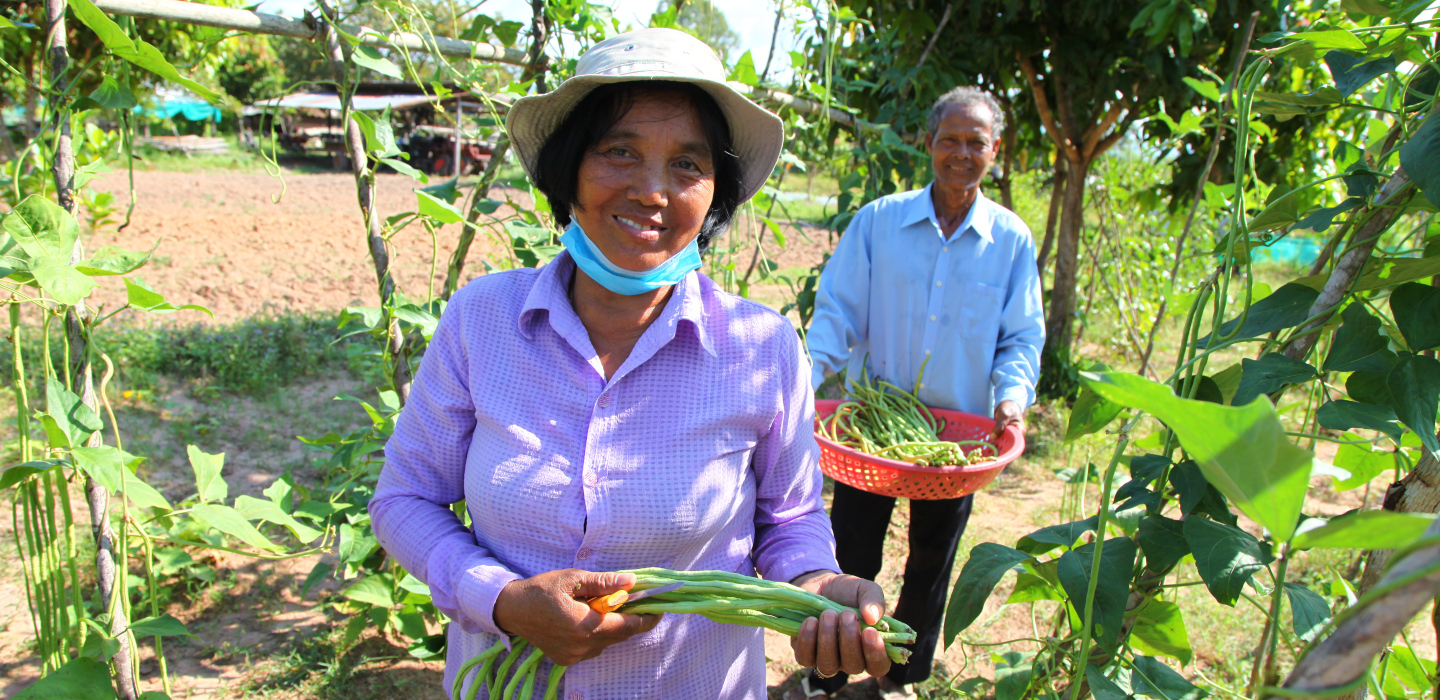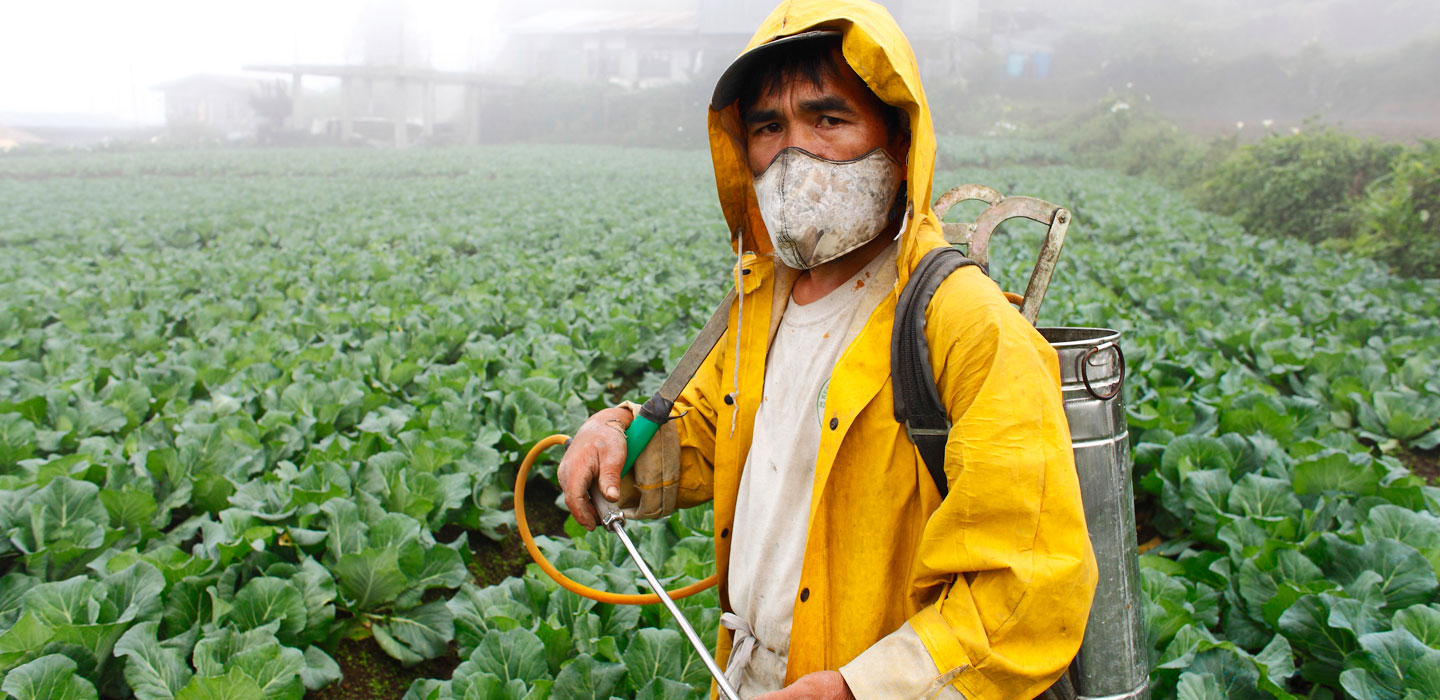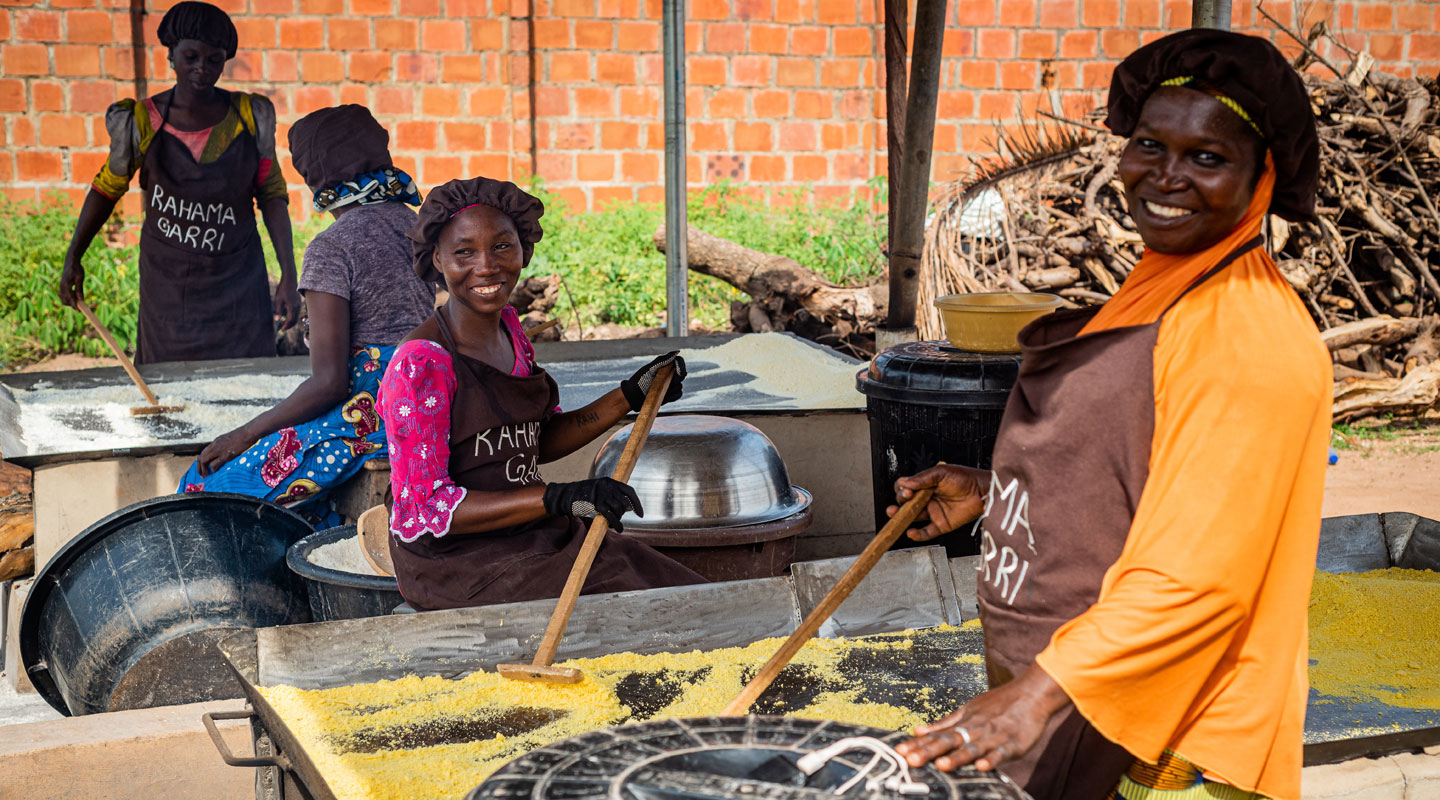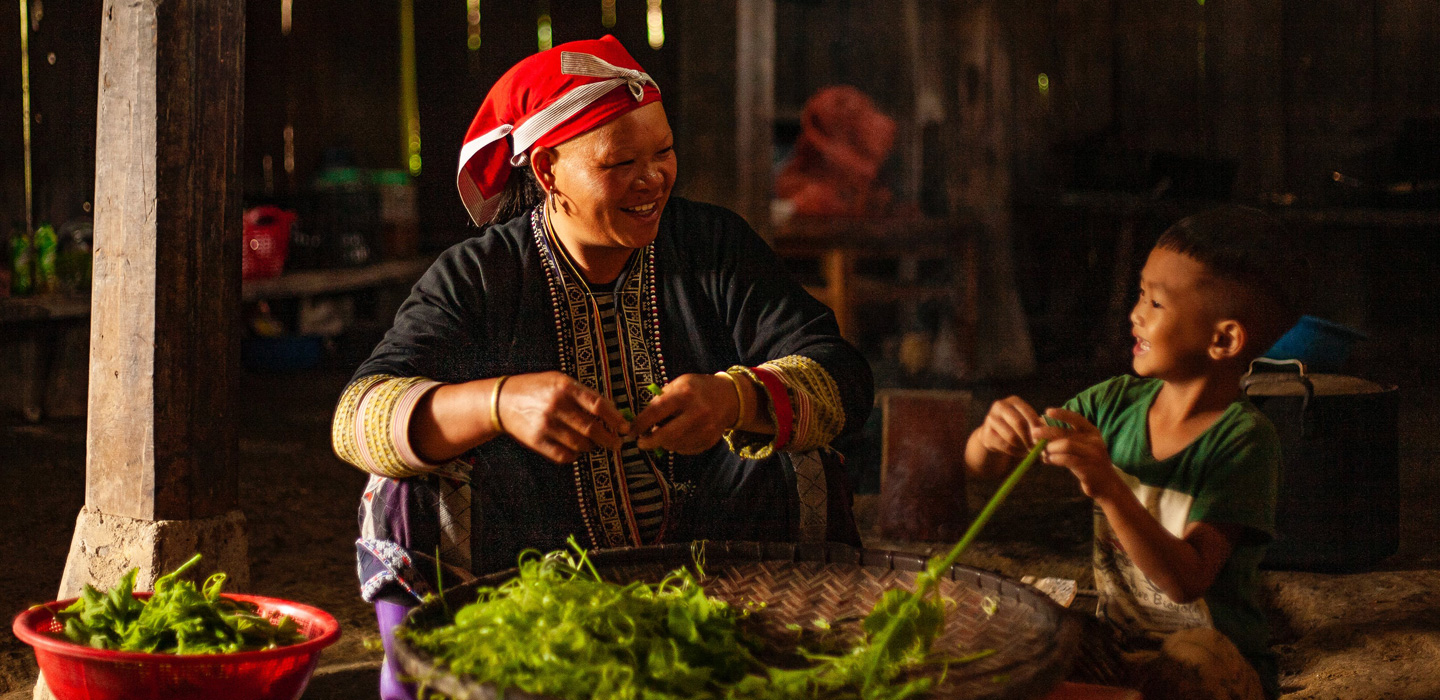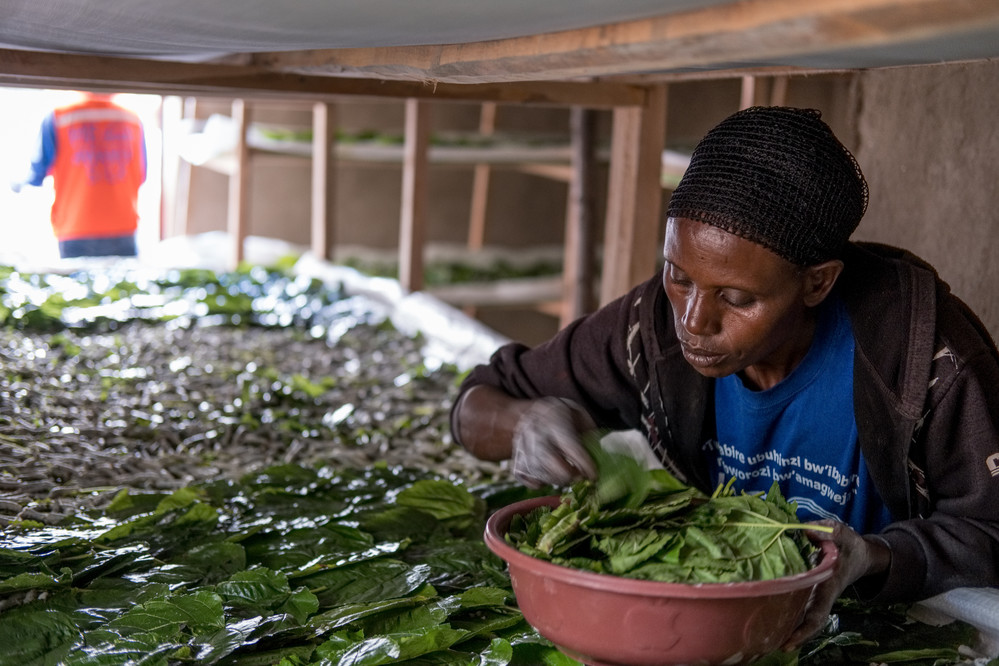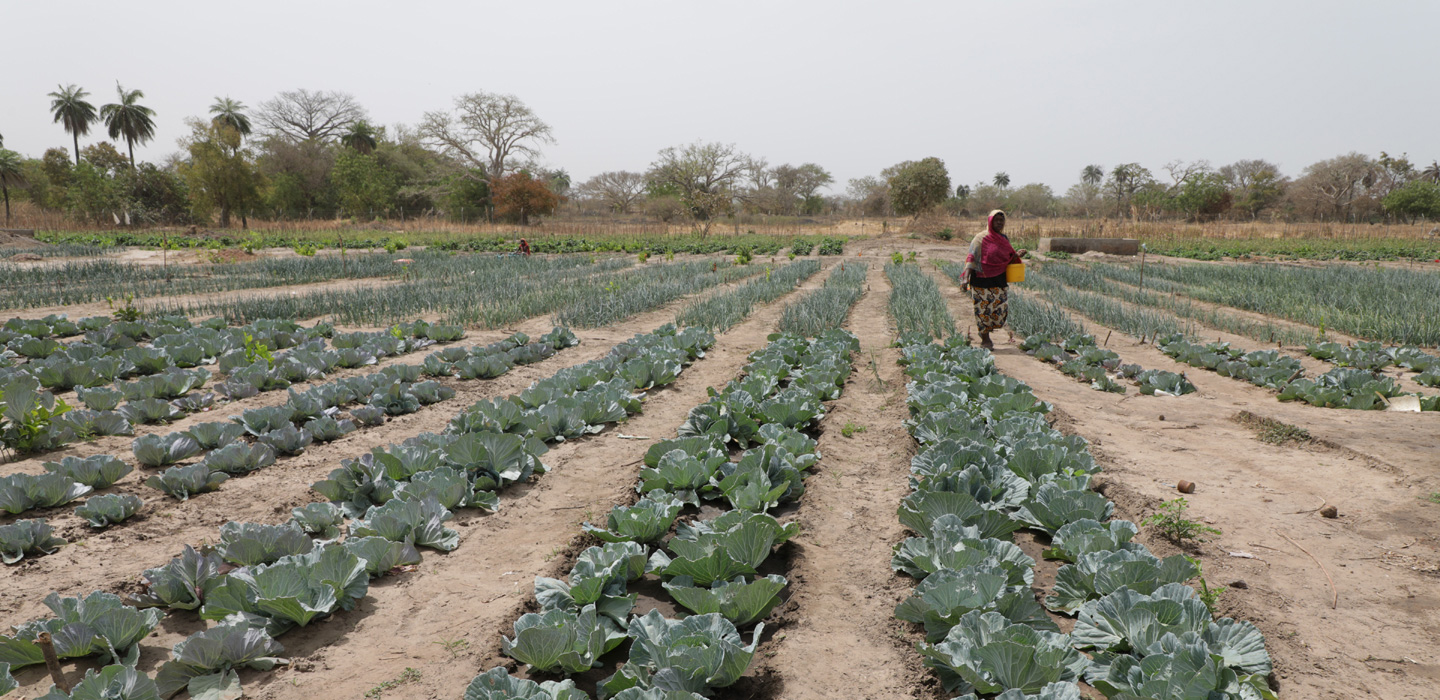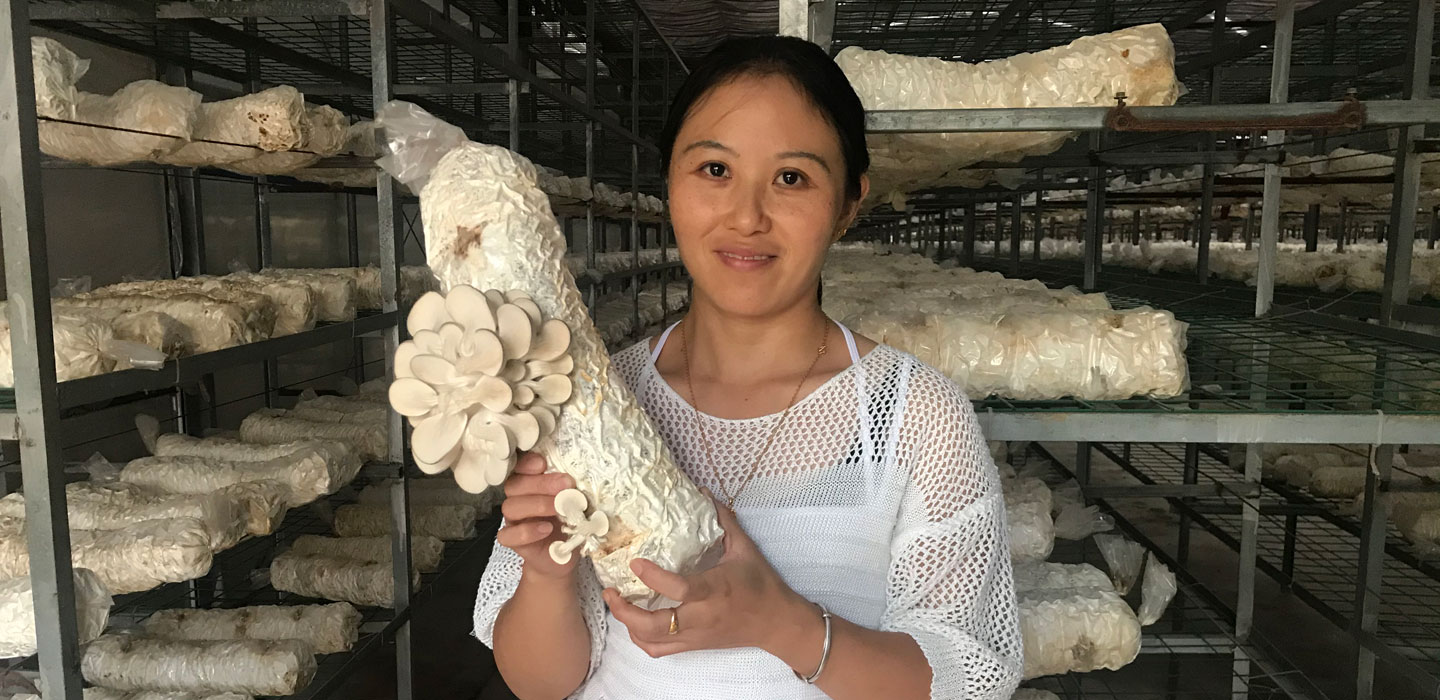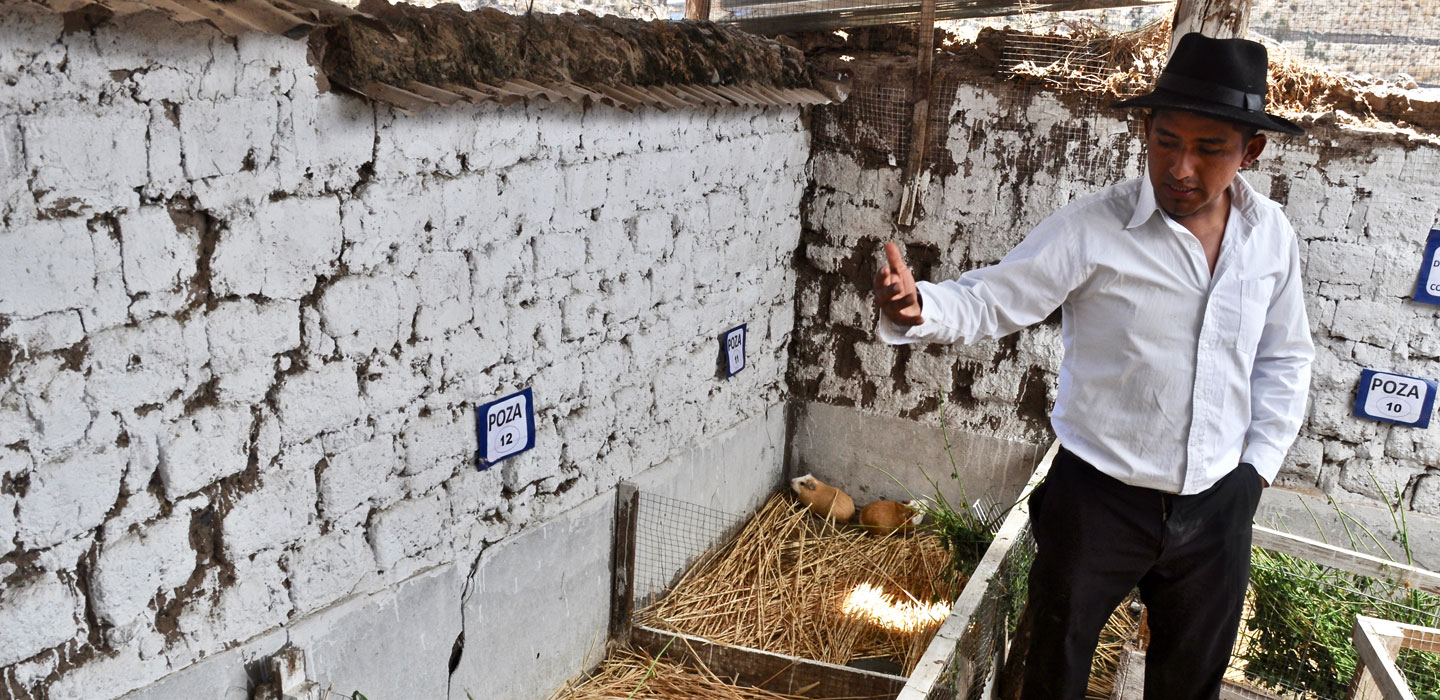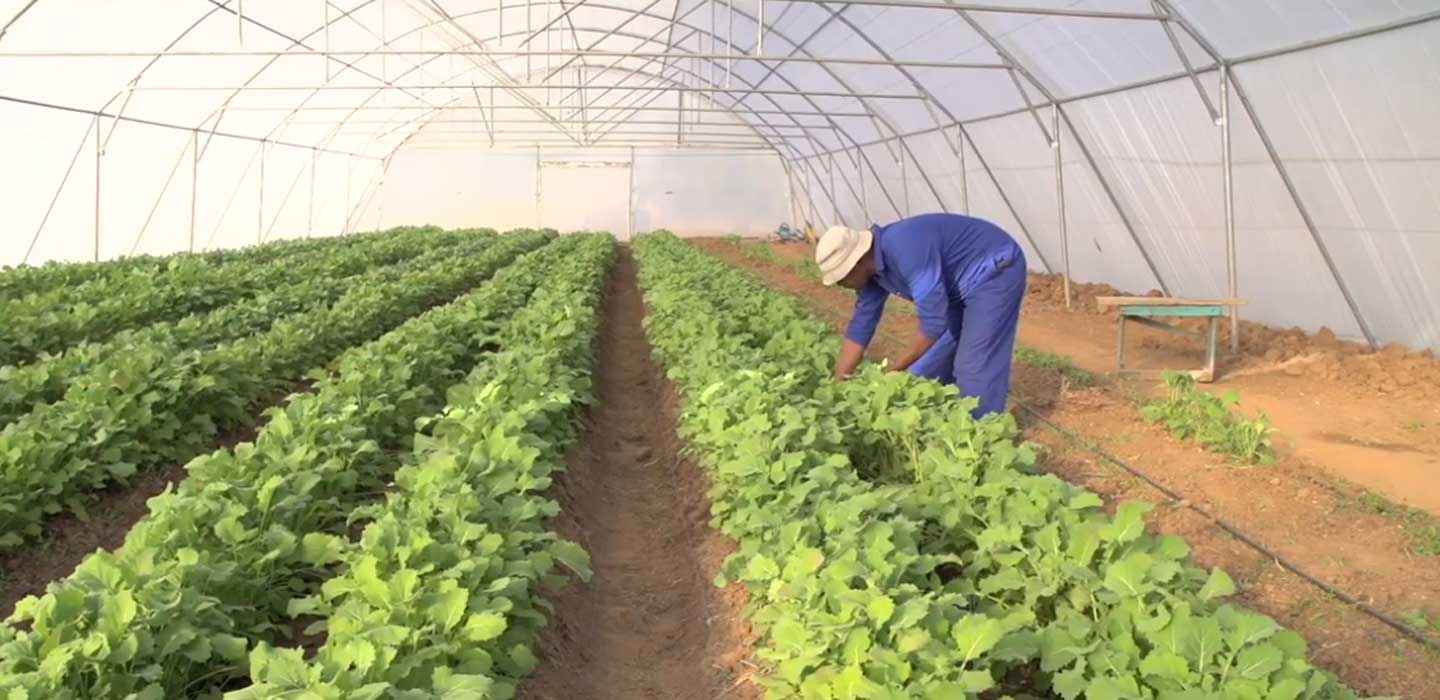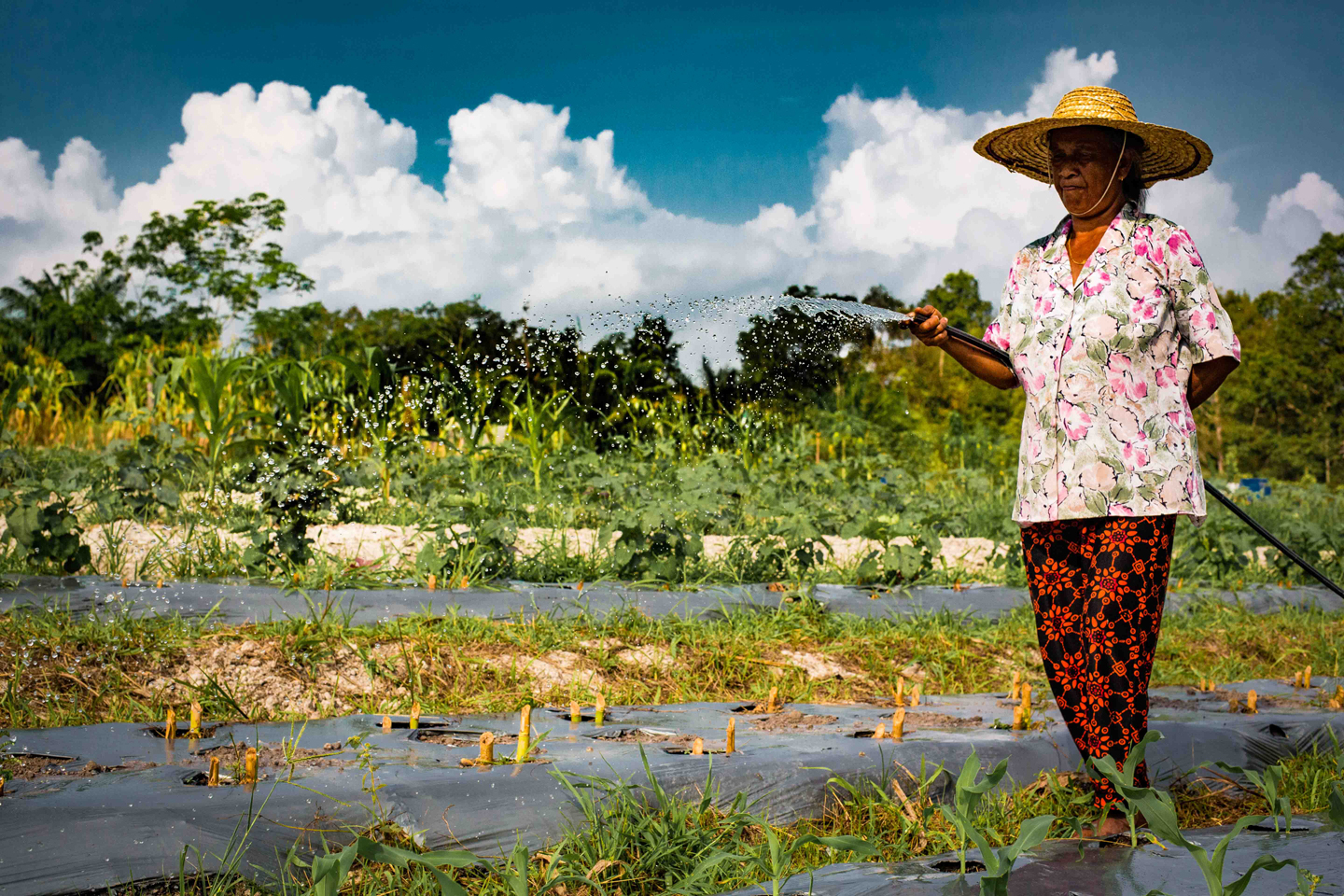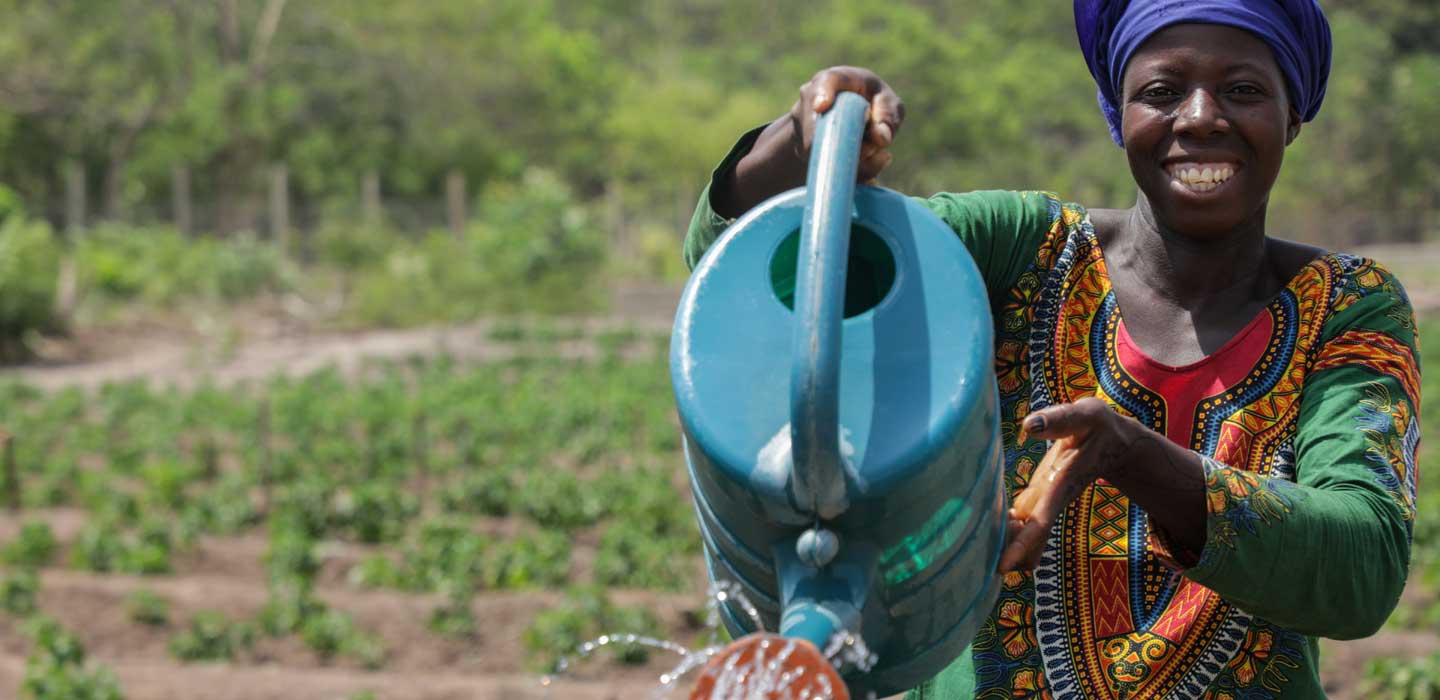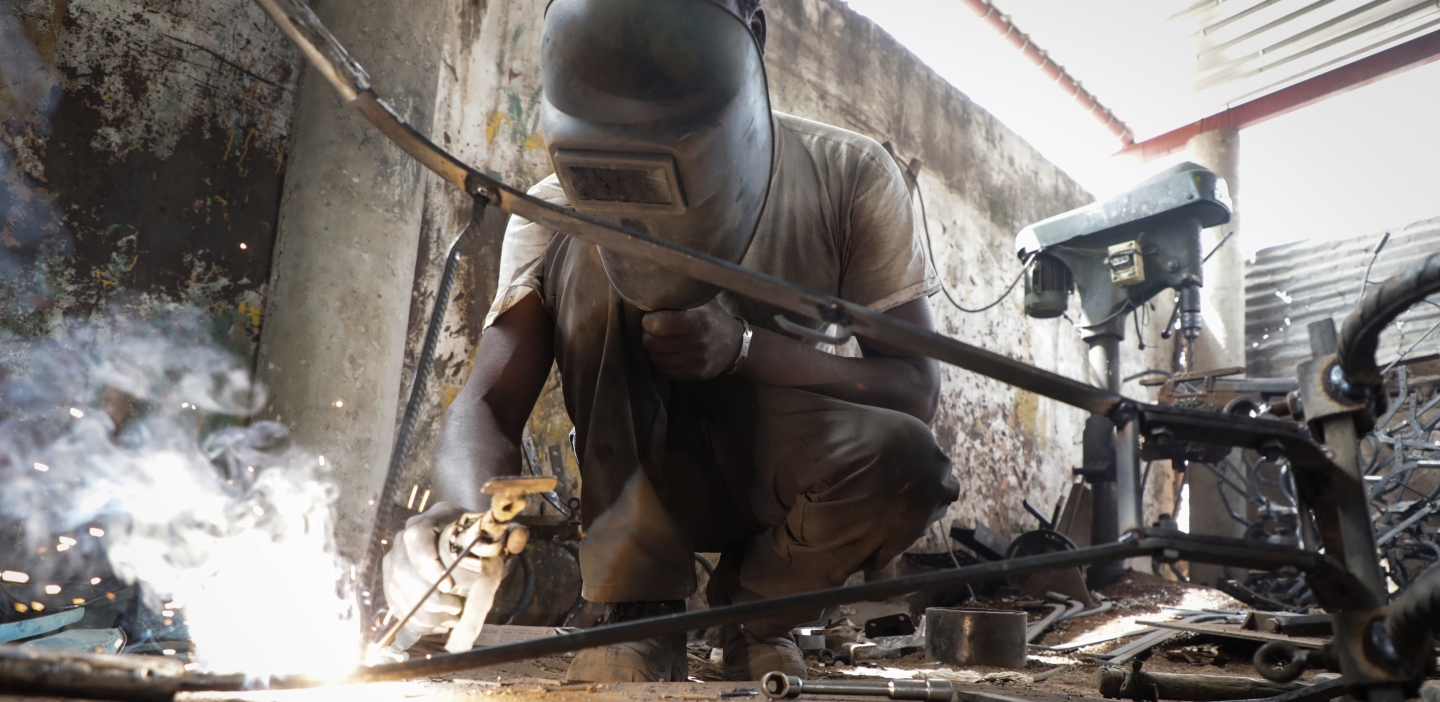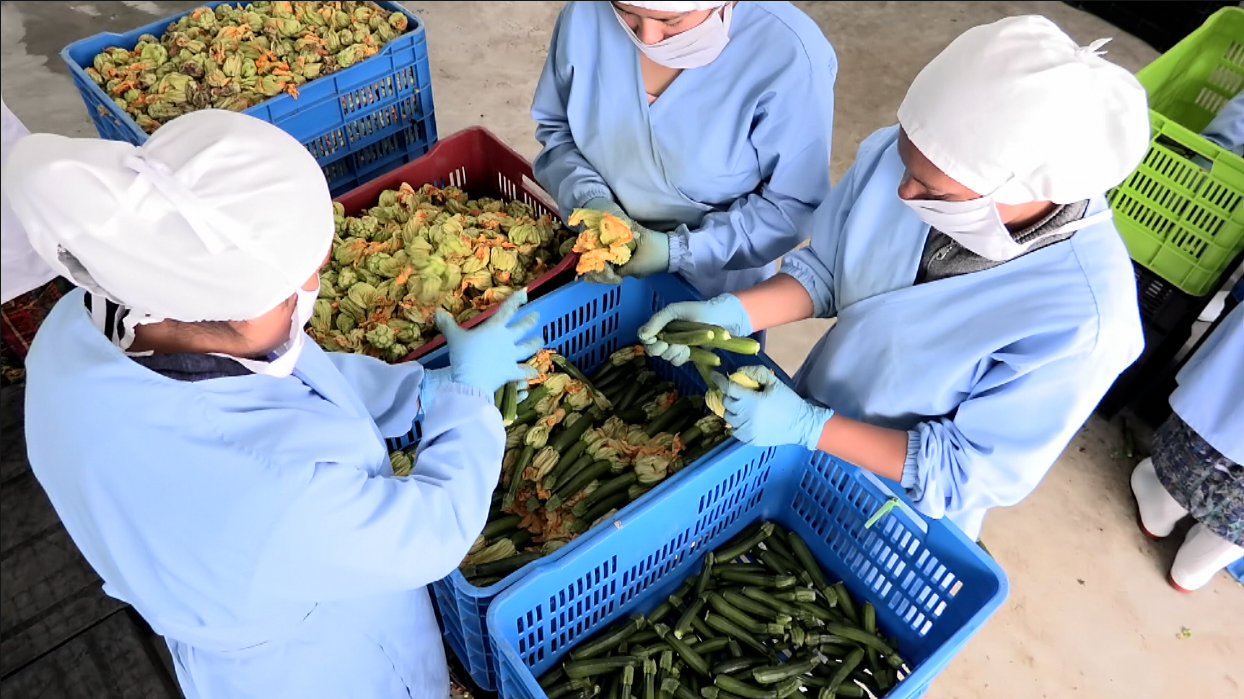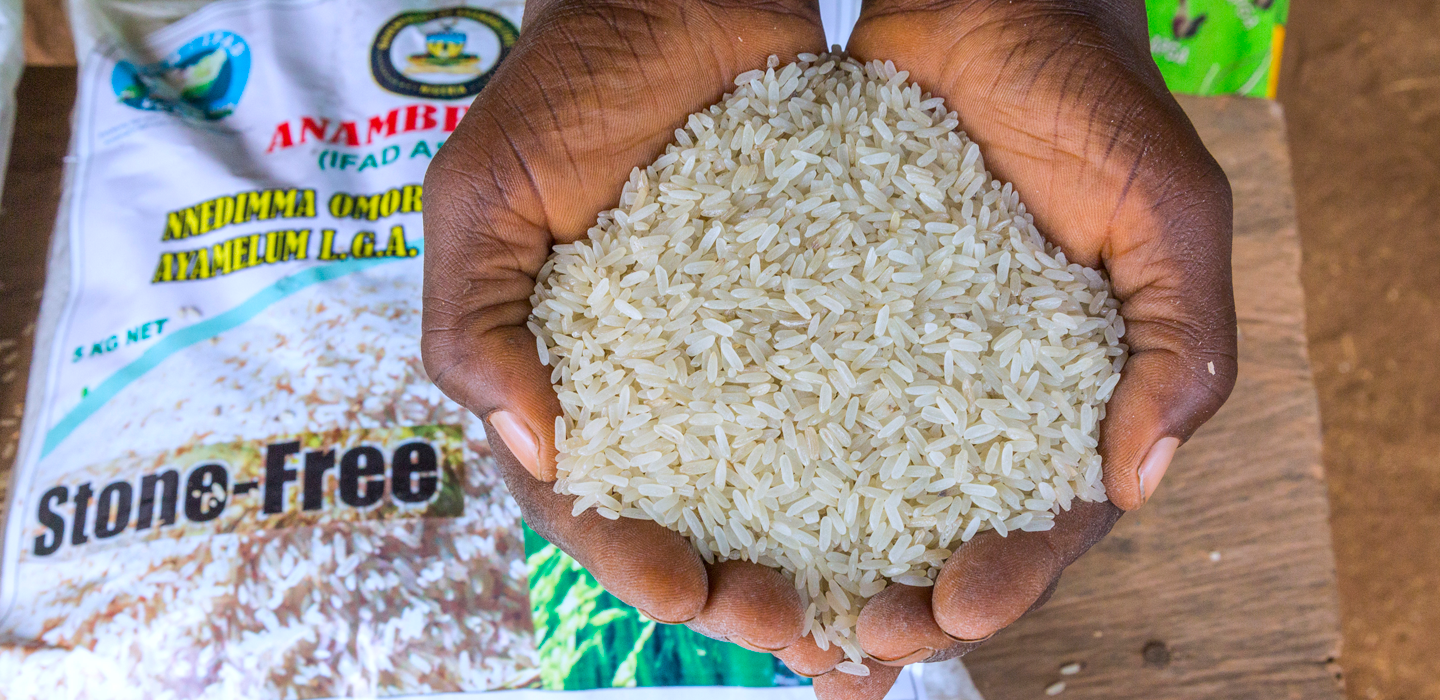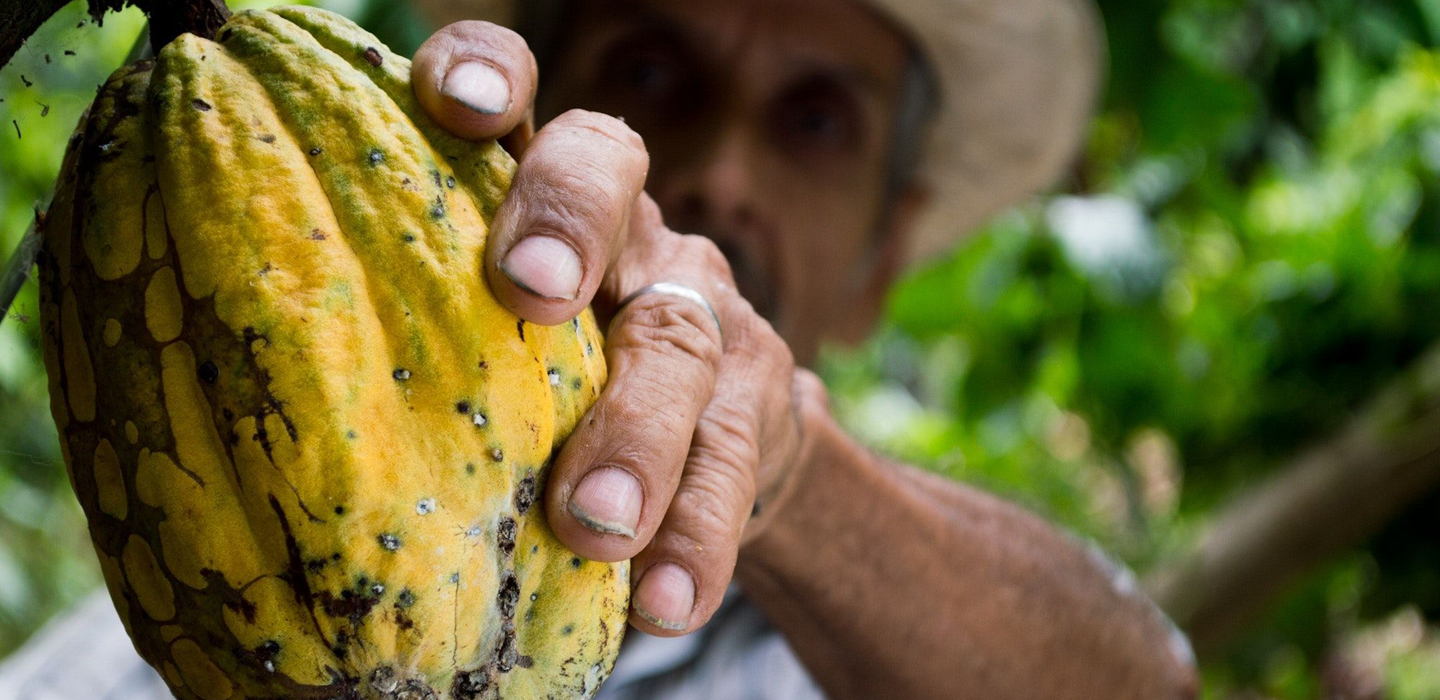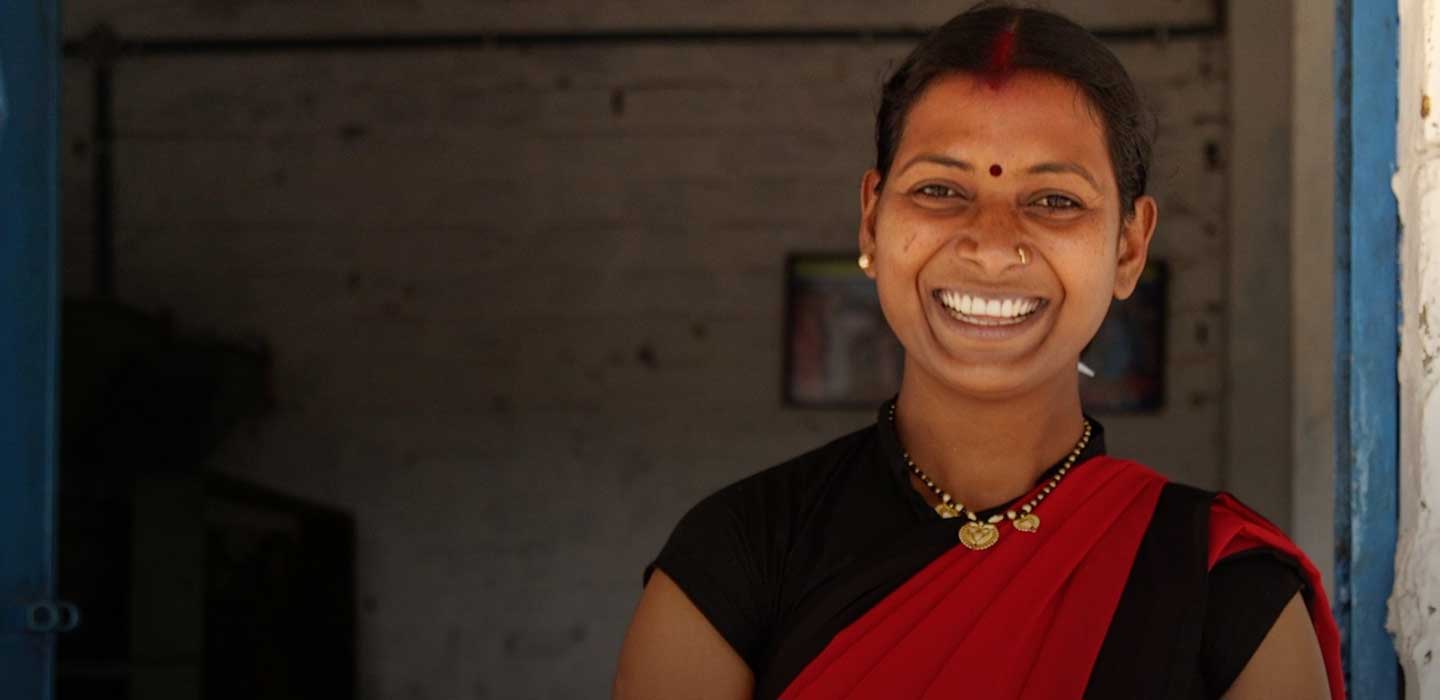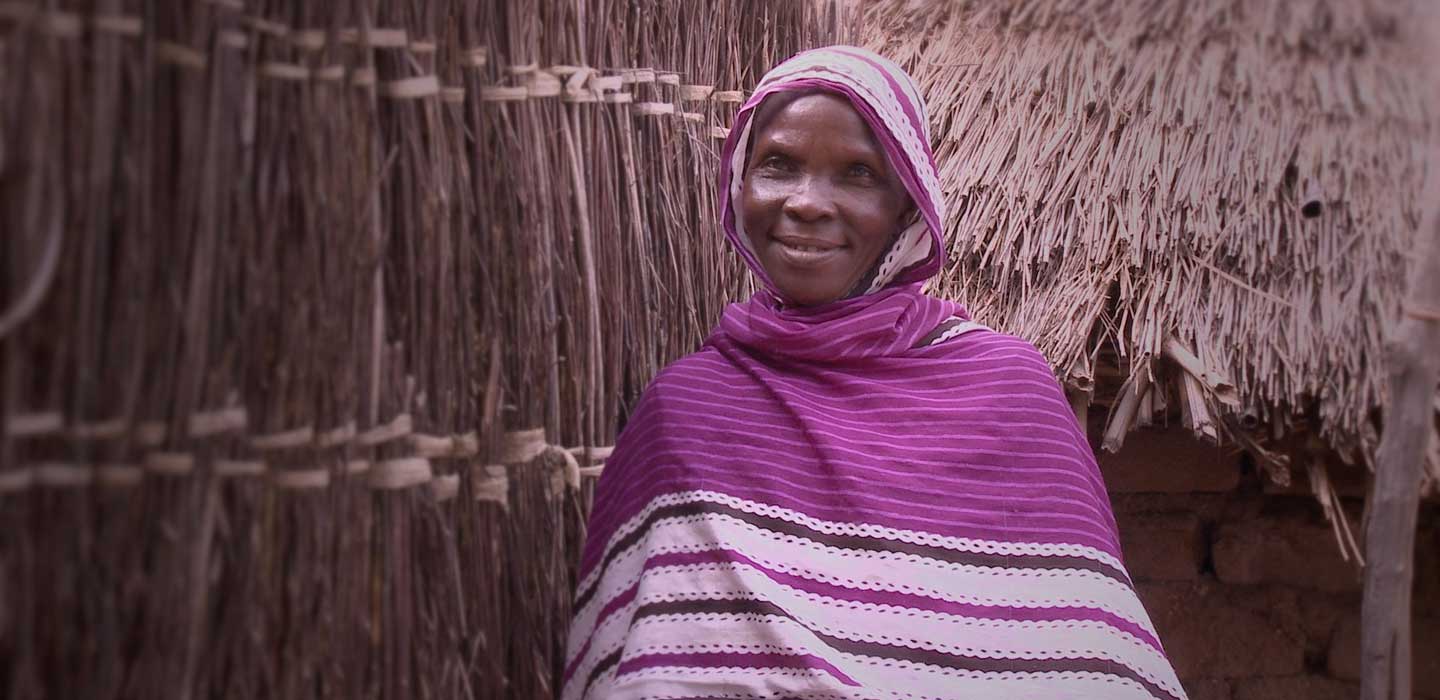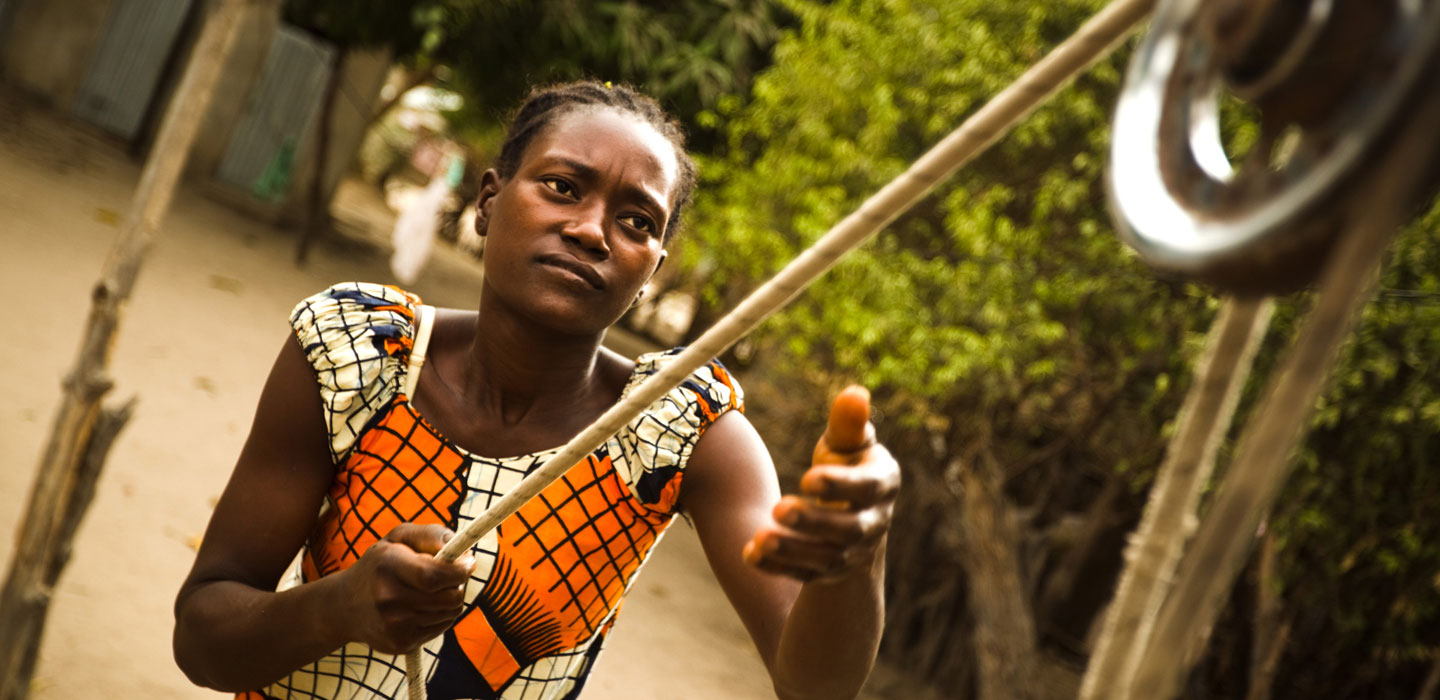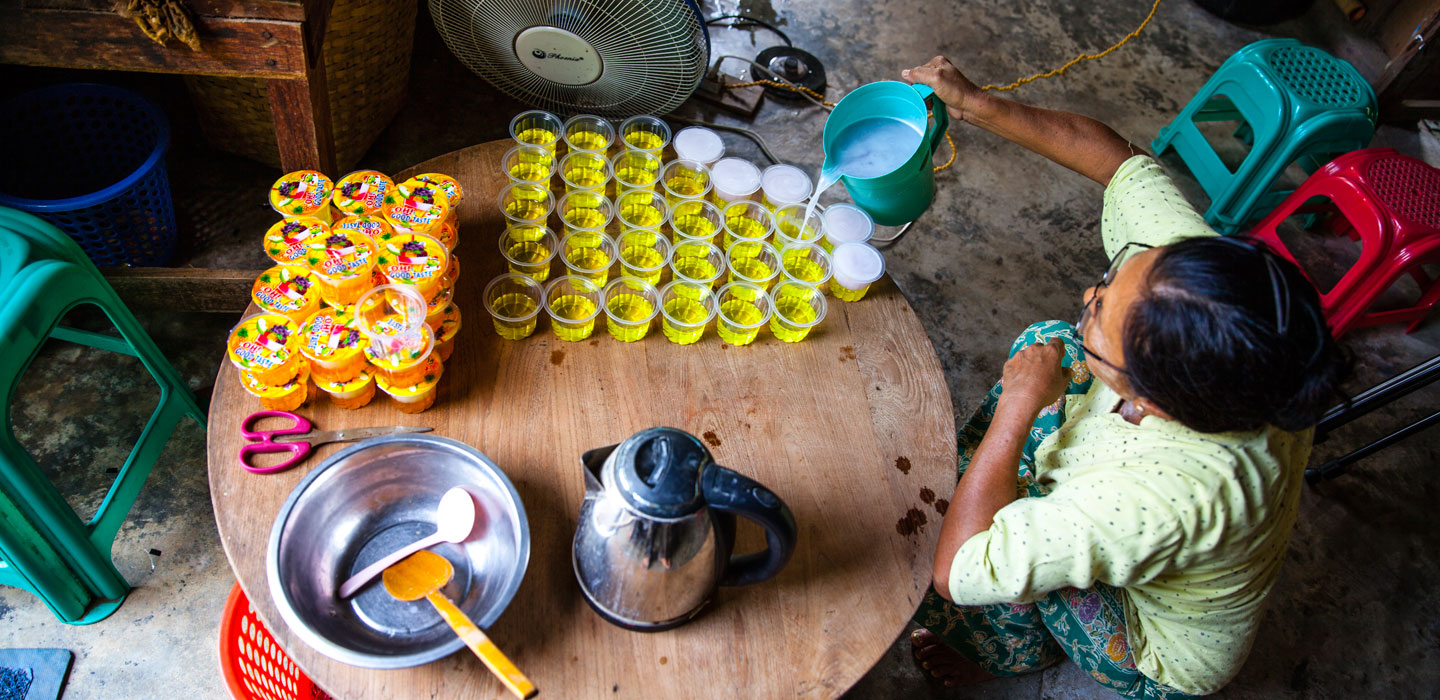Latest
Latest

Latest
Manual Submenu Topics
Search Results Filters
Search Results
In Mozambique, a boost to private sector finance is a boost to rural communities
Financial exclusion is acute in rural Mozambique, and women are disproportionately impacted. Closing the funding gap to catalyse private-sector investment in rural communities can make all the difference.
Rebuilding livelihoods in Afghanistan’s rural communities
IFAD’s Crisis Response Initiative is helping pastoralists in Herat build resilience against crises by training pastoralists in animal husbandry practices, providing veterinary units with equipment and supplying high quality feed during winter months.
Strengthening rural value chains, one link at a time
A well-oiled agricultural value chain allow small-scale farmers to make the most of their produce. That’s why IFAD works with rural communities around the world to strengthen local value chains and overcome the challenges that arise along the way.
The world is not prepared for climate change
For rural people, the climate nightmare is a reality. They urgently need support to adapt to a changing world. To do this, IFAD is issuing three calls to action – find out what they are.
It’s time we treat the transformation of food systems like the emergency that it is
Our current food systems cannot keep up with the world’s growing population – as a result, millions face hunger. Now more than ever, countries must take action to transform how food gets from farm to plate.
Agricultural programmes are key to food security and dietary diversity
Agricultural programmes are key to food security and dietary diversity in rural areas, we must continue investing in them.
Farmers in Mozambique rise to the challenge
Farmers in Mozambique face unimaginable challenges. We must continue to support them if we want to see rural communities lift themselves out of poverty and thrive. Norway's Minister of International Development, Anne Beathe Tvinnereim, shares her reflections on her recent visit to Mozambique.
From the field to our plates, rural people are transforming food systems
Our food systems need to change. Around the world, small-scale farmers, fishers and rural producers are already leading the transformation – here’s how.
Meet the young entrepreneurs fighting to preserve and restore our biodiversity
Young people the world over know that conserving our biodiversity is key to eradicating hunger and achieving a healthy and sustainable food system. Here’s how they’re fixing our broken planet.
A digital divide is holding rural women back. Here is what we can do to change this
Many rural women are excluded from digital services. What is causing the digital divide and what can we do to end it?
From tulips to tomatoes: Technology empowers women in Asia
In Pakistan and Bangladesh women are harnessing technology to connect to the world and build a business, one click at a time.
Rural people in crisis: The latest news from IFAD
Rural people are still paying the highest price for the rise in food, fertilizer and fuel costs. The Crisis Response Initiative was set up as part of IFAD's ongoing efforts to build rural people's resilience to these shocks. Here are selected highlights on the crisis from our teams in the field.
Discovering the fruits of the forests in Viet Nam—and preserving them for future generations
Vietnamese rural people need to farm to eat and make a living. But if they don’t do this sustainably, it can damage the land and degrade the forests. IFAD’s new project helps them manage their forests sustainably, while earning a decent living.
Take a 360° tour of a small, thriving pig farm in the green hills of Lao PDR
In the tiny village of Manh, nestled in the green uplands of Lao, agricultural production groups are coming together to develop their businesses and learn new techniques. For Boun Tham, groups like these made all the difference for his pig farm.
Against the backdrop of conflict and COVID-19, IFAD is helping farmers grow in Yemen
Years of conflict in Yemen have taken their toll – and among all of the devastation that’s been wrought, the country’s agricultural sector is one of the hardest hit. Now, an IFAD-supported initiative is helping Yemeni farmers get back on their feet.
Our planet is losing its biodiversity. Here are five ways IFAD and rural people are protecting it
Biodiversity is the key to all the essential benefits we get from nature: from clean air to our ability to regulate the climate. At IFAD, we integrate protecting biodiversity into everything we do.
Lending a hand – and finance – to young agricultural entrepreneurs in East Africa
We know a thing or two about connecting youth with the financial services they need to start a business – but there’s always more to learn. Here, we reflect on some of our “lessons learned” as part of a recent grant programme in East Africa.
From biotechnologist to artisanal cheesemaker
Ibtissèm’s career in the pharmaceutical industry was off to a strong start, but she put it on hold when her mother fell ill. Back in her hometown in central Tunisia, she needed a new way to support herself and her mother – and then she realized that her skills would serve her well in her town’s bustling dairy industry.
IFAD and UN Women join hands for rural women’s empowerment in China
IFAD and UN Women were each working in rural China, helping women access new opportunities and gain an equal say in their communities. Then the two agencies decided to collaborate, opening up new ways to fulfil their respective mandates – rural development on one hand, and women’s empowerment on the other.
In The Gambia, targeted COVID-19 support helps small businesses flourish
Back in early 2020, when the first waves of COVID-19 were spreading around the world, IFAD launched the RPSF as a multi-donor initiative to sustain rural people around the world during the pandemic. With the RPSF’s help, many were able to start small businesses – and today, those businesses are sustaining local economies and building resilience.
IFAD-funded project to develop technological solutions to help smallholder farmers overcome COVID-19 impact in Latin America and the Caribbean
IFAD launched the Innovatech project today, which aims to develop agricultural (AgriTech) and financial (FinTech) digital solutions to facilitate small famers’ access to markets and to financial and non-financial services in Bolivia, El Salvador, Guatemala, Haiti, Honduras and Mexico.
In rural China, new opportunities for persons with disabilities
Job opportunities in the agricultural sector can be very limited for people with disabilities. In rural China, therefore, initiatives dedicated to including people with disabilities in their local economies – including IFAD-supported projects – have been central to national efforts to eliminate extreme poverty.
Forging new connections through the “tree of life”
Brejo is not easy to reach: the only way in or out is a 12-kilometre dirt road running through a swamp, which most vehicles can’t manage. And with no way to sell their most important crop – burití (Mauritia flexuosa), a native palm tree – the 200 families living there frequently felt forgotten by the outside world.
Meet the rural women helping Paraguay’s communities and food systems flourish
Ten years ago, in Paraguay’s Capiíbary district, a group of women came together to form an association of market-sellers. Today, with the support of an IFAD-financed project, they’re thriving – and their association is now integral to local food systems.
The labour market dynamics of COVID-19
Over a year and a half into the COVID-19 pandemic, there’s still a lot to learn about how the labour market in developing countries is reshaping itself – especially in terms of gender dynamics. Our latest study tracks employment trends in Nigeria with both pre- and post-pandemic data.
Black jelly brings a more resilient future for rural Viet Nam
Light and refreshing, with a mild, earthy flavour, Vietnamese black jelly is the perfect end-of-summer treat. It’s already popular throughout Viet Nam and its neighbouring countries – and thanks to the work of local growers and an IFAD-supported project, it’s now destined for wider audiences.
In Rwanda, public-private partnerships benefit small-scale cassava farmers
Cassava is one of Rwanda’s most important staple crops, but market access remains a challenge. The Ingabo Syndicate, an organization of cooperatives, has been helping its cassava producers find markets for over two decades – most recently, through public-private partnerships.
New horizons for the Ingobor Youth Group
Meet Ingobor, a group of 20 former bus drivers and conductors who pooled their resources and established a successful dairy business.
In Moldova, new frontiers for the honeybee business
Thanks to an IFAD-supported grant, Ecaterina’s honey business is taking off – and now she and her fellow entrepreneurs have a bigger market reach than ever before.
Taking stock of IFAD’s digital agriculture efforts in the Asia-Pacific region
Digital agriculture is an indispensable part of strengthening food systems. IFAD’s recent stocktake of our ICT interventions in the Asia-Pacific region has revealed over 50 active solutions and some critical gaps to address.
Grass funds: Tradition meets ingenuity in Brazil’s sertão
Too many people assume Brazil’s fundo de pasto communities are relics of the past. Today, they’re at work uniting centuries-old traditions with contemporary food systems.
The community bakery empowering Egypt’s rural women
In a country where artisanal bread is the rule rather than the exception, the Qena community bakery stands out among the rest – and it’s run entirely by rural women.
New operational guidelines for Pro-Poor Value Chain Development help IFAD reach the poorest
In Ghana, the value chain model has helped build solid relationships, showing that even the poorest can be brought into commercial value chains if extra support is provided.
In Kyrgyzstan, new technology preserves age-old pastures
Urmatbek Omurbekov remembers a time when grazing his livestock was a purely offline affair. Every spring, herders like him would bring their animals to the foothills of the majestic Tian Shah Mountains to let them fatten up for the next winter.
The promises the olive grove holds: Fadieh’s story
Growing olive trees in Jordan, one of the driest countries in the world, isn’t easy. Every day, Fadieh and her family spend hours tilling the soil and tending to the trees, but the most demanding task is keeping the trees hydrated.
Digital information service helps small-scale farmers respond to COVID-19
The Kenya National Farmers’ Federation is implementing a mobile information platform to serve its members and other Kenyan farmers.
New investment in digital solutions will connect Latin American farmers to markets and banking services in response to COVID-19 restrictions
More than 10,000 family farmers in Latin America will soon have access to digital solutions to overcome the obstacles they face in accessing markets and financing due to the consequences of the COVID-19 pandemic.
Pioneering development in rural Uzbekistan
Starting over is never easy, whether you’re an individual person or an entire nation. Nevertheless, the economy of Uzbekistan has made incredible progress in recent years.
Bringing home the bacon: Digitalization helps Chinese pig farmers scale up
Zhenba County, nestled in the mountains of China’s Shaanxi province, has long been known for its traditional bacon, expertly smoked and cured to produce an unmatched flavor.
Three ways we’re using digital technologies to fight rural poverty in the NEN region
Digital technologies have become our constant companions over the last few decades. Devices like smartphones and laptops have become even more relevant after the COVID-19 outbreak, helping us stay in touch even in times of physical distance.
Linking small-scale producers to markets in Lebanon
Apple season in Lebanon is much like apple season in many other parts of the world. But in Lebanon, apple growers – along with small-scale farmers of all kinds – face a number of constraints on their ability to efficiently grow and sell their crops.
Green jobs for youth: What works and what’s missing?
Rural young people are increasingly concerned about the environment. Many of them work in sectors that are threatened by climate change, and they’re well aware that their industry and food systems will need to become more resilient and sustainable than ever before.
“Cashroots” movement builds community resilience in the Solomon Islands
Simon Chottu works hard and plays hard. An events manager by trade, he’s spent the last few years hosting hip-hop parties and organizing music events and competitions across the South Pacific.
Nourishing a sustainable cocoa trade in the Solomon Islands
On a dusty side street in Auki, a seaside market town on the island of Malaita, Arania Enterprises is bustling.
Towards zero food waste in Indonesia’s fishing communities
Along Indonesia’s coastal communities, many small-scale fishers struggle to make a living. Indonesia is the world’s third largest producer of fish, but many of these communities have historically lacked access to the technology and resources they needed to preserve their catch until it reaches the markets, which are usually far from their rural coastal inlets.
Rome-based agencies establish SSTC collaboration to benefit cassava production in the Congo
In dozens of homes across Bouenza, the volunteers gathered around their kitchen tables, ready to taste-test a new variety of flour.
A second chance for Sri Lankan tea
I grew up knowing that Sri Lankan tea was truly something special. People all across my native Egypt competed with each other to bring home those packages with the trademark “Ceylon Tea” stamped on the side.
Reaping the rewards: Infrastructure brings opportunities for rural Chinese livestock farmers
The villages of Naihe and Zhaowa, nestled in the hilly Liupanshan area of China’s Ningxia Hui Autonomous Region, are surrounded by world-famous rugged beauty.
Holding on: IFAD-supported programme sustains assets – and rural livelihoods
The restrictions put in place to contain the spread of COVID-19 in Pakistan were designed to keep the population safe and healthy, but have spelled severe losses for many rural businesses.
Social media helps young rural Kenyan entrepreneurs battle the COVID-19 shutdown
Until COVID-19 hit in March, the G-Star Youth Group’s banana processing factory was buzzing with activity.
The Rural Youth Innovation Award honours young people who care about biodiversity, market access and the preservation of traditions
Rossana Polastri, Director of the Latin America and the Caribbean Division of the International Fund for Agricultural Development (IFAD), has announced the winners of the Rural Youth Innovation Award. This prize has been created by IFAD to strengthen and build the capacities of young people and to promote opportunities being created by young people who are already changing the rural landscape of the region.
One small step: Empowering micro-, small and medium businesses across South Asia
It is something of a paradox that, while there is broad agreement that micro-, small and medium enterprises (MSMEs) are an integral part of the economy in developing countries, they remain underserved.
Stepping up rural finance to support smallholder farmers in Zambia
The COVID-19 pandemic is creating disruption - but sometimes offers opportunities for innovative solutions for rural farmers.
Never let a good crisis go to waste
Small-scale farmers face multiple challenges in Cambodia - with limited access to credit and vulnerability to climate change.
Why do wet markets matter?
Since the COVID-19 virus outbreak, much information and misinformation has been circulated about wet markets and an international rallying cry has been made for wet markets to be better regulated or even closed down.
Building up family farmers’ resilience through nature-based solutions in Latin America and the Caribbean
Resilience has become the talk of the town in the development community.
Sauli Hurri talks about rural finance, markets and value chains
Sauli Hurri, senior regional technical specialist, talks about rural finance, markets and value chains
Michael Hamp talks about rural finance, markets and value chains
Michael Hamp, lead technical specialist talks about rural finance, markets and value chains
Mitigating the impact of COVID-19 on small-scale agriculture in The Gambia
The COVID-19 pandemic has shown us just how vulnerable agricultural value chains are to external shocks – and how much more we need to do to build the sector’s resilience.
Jonathan Agwe talks about rural finance, markets and enterprises
Jonathan Agwe, lead regional technical specialist talks about rural finance, markets and enterprises
Protecting health and protecting livelihoods: a delicate balance in the era of COVID-19
Development encompasses a wide range of actions that enables people, communities and nations to thrive even after projects have ended.
In Brazil, a “quiet revolution” for rural women makes the invisible visible
In north-eastern Brazil, as in so many other places, rural women's work is often invisible. But a revolution is taking place – and IFAD is a part of it.
Fast and flexible: IFAD’s first successful project restructuring protects smallholders in Bosnia and Herzegovina
The COVID-19 outbreak has disrupted agricultural and food systems around the world, along with the livelihoods and food security of the poorest rural communities – precisely the groups of people whom IFAD concentrates its efforts on.
The making of a turning point: A rural Chinese women’s cooperative joins the COVID-19 fight
In 2016, the IFAD-funded YARIP project had partnered with the Qujing Zhanyi District Women’s Federation to transform traditional embroidery art into a new source of income and employment. Qujing, located in the ethnically diverse Yunnan province, is home to the Yi, an ethnic group with a population of about 300,000.
Before and during COVID-19, an e-voucher initiative makes a difference for Kenyan farmers
Victoria Muteti, a 44-year old farmer living in Kenya’s Makueni County, has many reasons to be satisfied. In January 2020, she was able to harvest more than 2,500 kilograms of sorghum from her 2.5-acre farm – far more than the 1,000 kg she harvested in 2019.
Small-scale farmers can help build resilient food systems in a post–COVID-19 world
Before the COVID-19 pandemic, more than 820 million people were living in hunger. Tens of millions more will join them if we do not take the right actions, and quickly.
How do shocks affect project impacts?
Past experience tells us that quick, tailored support is required to ensure that the impacts of our projects are protected from the effects of the COVID-19 crisis.
Shaping a holistic response to COVID-19: Protecting food systems and rural producers
It is easy to lose sight of the big picture when called upon to act quickly in response to the human tragedy caused by COVID-19.
Six ways investing in rural communities makes people healthier
Malnutrition causes health problems and losses in economic productivity. Over the course of their lifetimes, malnourished individuals can earn 10 per cent less than those who are well-nourished.
Rwandan silkworm farmers weave links to global markets
Forty-seven-year-old Rwandan farmer Pierre Kanyarwanda is enthusiastic. For the last five months, he has brought additional money home by applying his newly acquired skills in sericulture (silkworm rearing).
Community gardens pave the way for climate-resilient agriculture in Gambia
Climate change is affecting global food systems in such a way that those who already suffer from hunger and undernutrition are also the most vulnerable to the added threats from climate change.
Specialised production secures better income for rural households in China
The rapid economic growth in China has brought numerous benefits, but also many challenges. Rapid urbanization, environmental vulnerability, an aging population and internal migration of young men is putting pressure on rural agricultural production systems.
Women and youth lead change in Lima's highlands and high rainforest
The resilience of smallholder farmers, coupled with the support of development projects is allowing Peru’s rural people to progress towards better living standards. Women and youth are very often on the frontline of that effort.
A day in the life of a vegetable farmer in Lesotho
Thabo Lefatle owns and runs a small vegetable farm in Lesotho’s Mafeteng district, south of the capital Maseru. He is one of 55,000 smallholder farmers in Lesotho who applied for and won public grants.
Indigenous communities in Malaysia building capacity for resilience through IPAF
The Jakun people is the largest group of the Orang Asli Indigenous Peoples of Malaysia. They have an amazing partnership between people and the forest - looking after it and using only what they need to live. But their traditional livelihoods are at risk.
From farm to market: improving the food value chain through women empowerment in Guinea
Saran Condé is a 30-year-old smallholder farmer in Guinea's Faranah region. She has improved her farming skills and increased her productivity since joining an IFAD supported community garden.
Forging tools to catalyse food production in Senegal
In 1992, Khadim Thiam established a tiny workshop in Tambacounda, Senegal, to produce agricultural equipment, such as hoes, seed drills, ploughs and animal-traction carts.
Guatemala: Leveling the playing field
A group of courageous Guatemalan women set off in 2010 to form their own farming cooperative, "4Pinos" after facing discrimination in the men's cooperative.
The impact of a value chain approach in Nigeria
The IFAD-funded Value Chain Development Programme in Nigeria assists cassava and rice smallholder farmers through a value chain approach to enhance productivity, promote agro-processing and increased access to markets. The programme aims to transform the agricultural sector of rural Nigeria by achieving food security, increasing incomes and creating new employment opportunities.
The illusion of choice
Consumers increasingly want to know whether the food and beverage brands they buy from are doing social and environmental good, including doing right by the smallholder farmers in global food supply chains.
The Real Groundbreakers: Rekha from India
More school children are eating well because of Rekha, a business innovator in India who through a women’s cooperative is making nutrition bars with local rice.
The Real Groundbreakers: Halimé Djimet, Chad
Halimé Djimet is leading a collective of women in Chad to produce and market their sesame seed oil successfully.
Building bridges between smallholders and financial markets
One of the major challenges facing smallholders is getting adequate and cost-efficient protection against price volatility and climate-related impacts on production.
The sweet smell of success in Myanmar
As part of the FARM project, local facilities called Knowledge Centres are being established at the community level in several villages in Myanmar.
